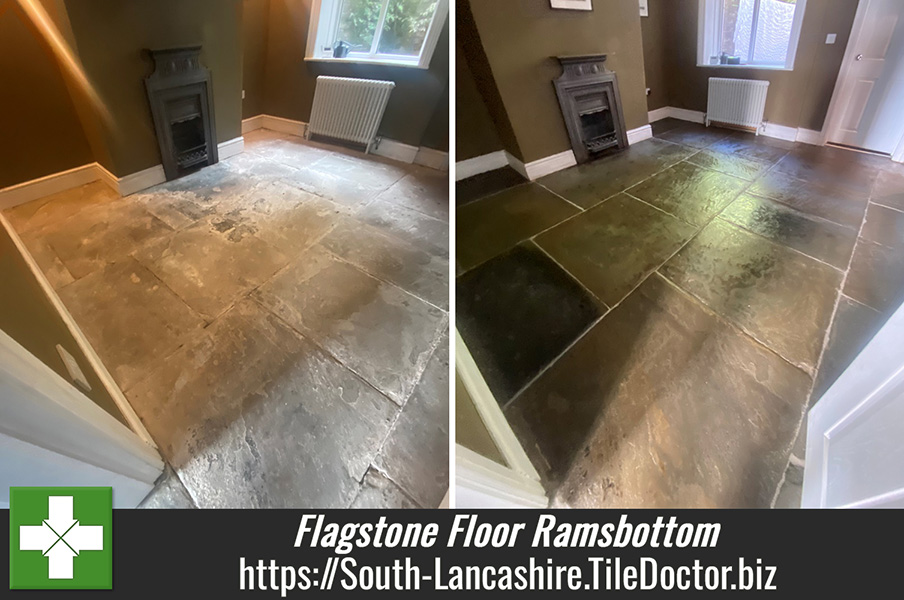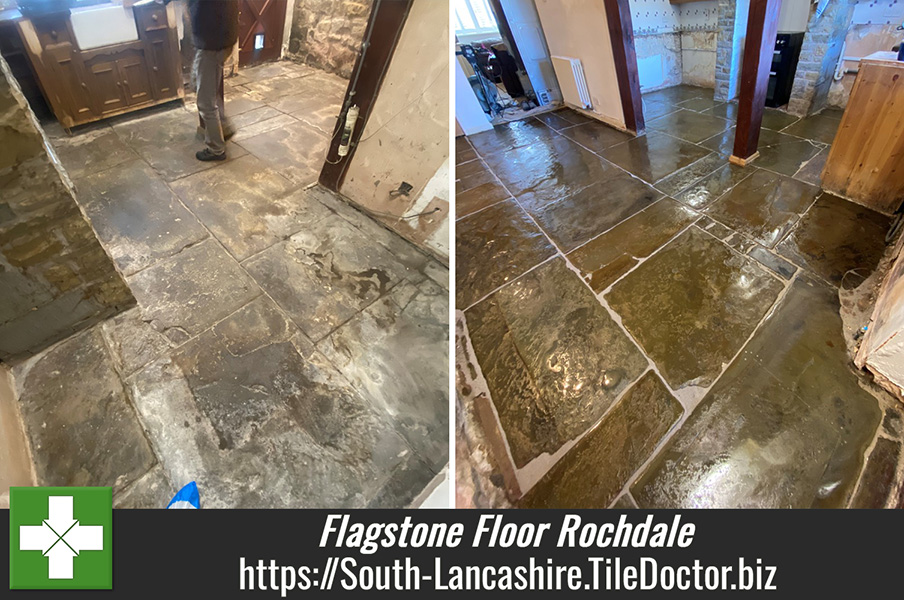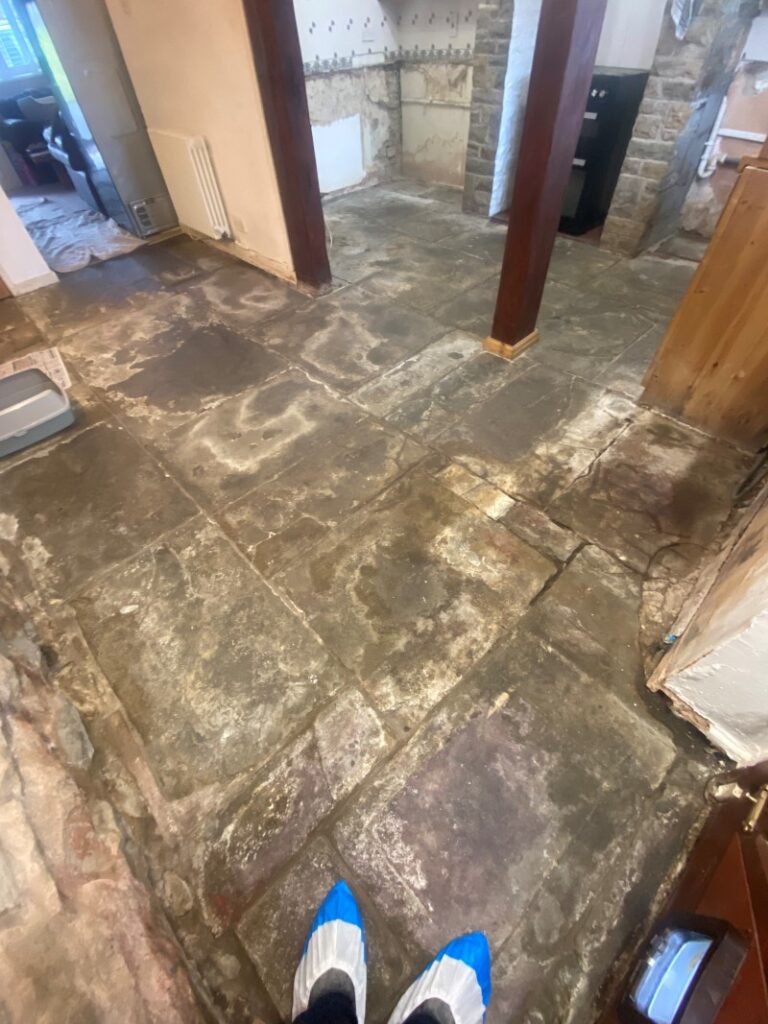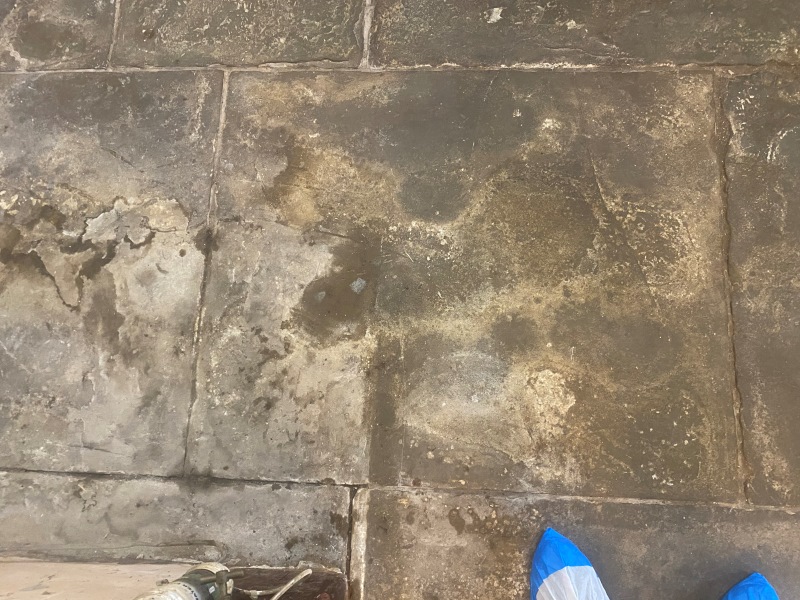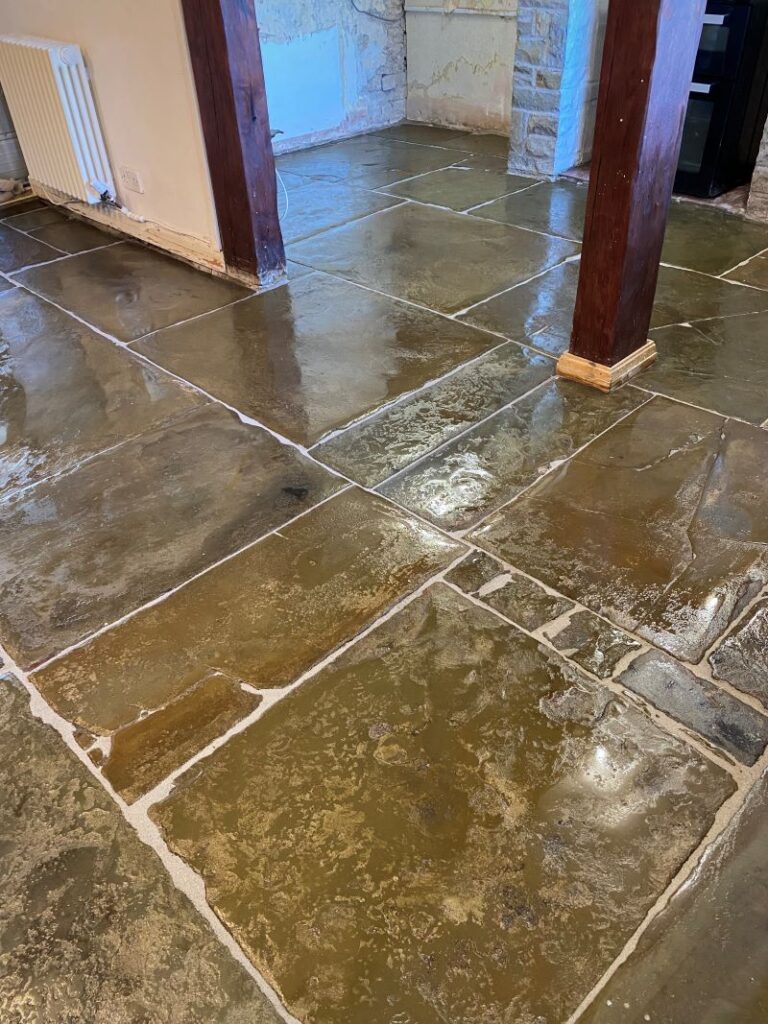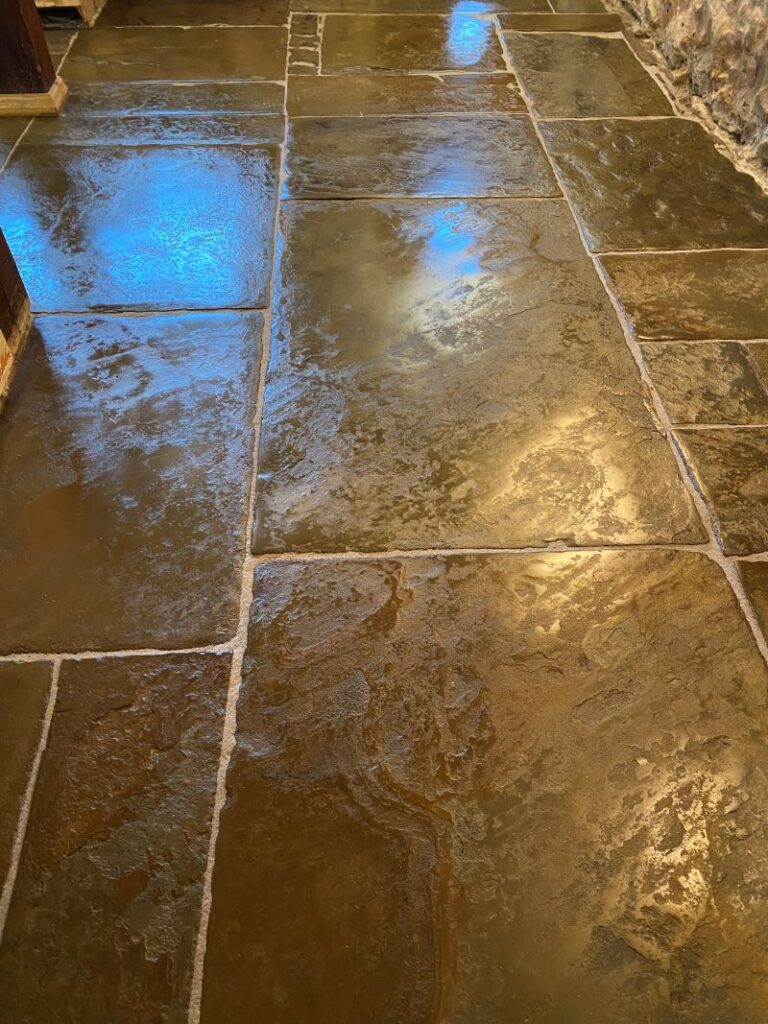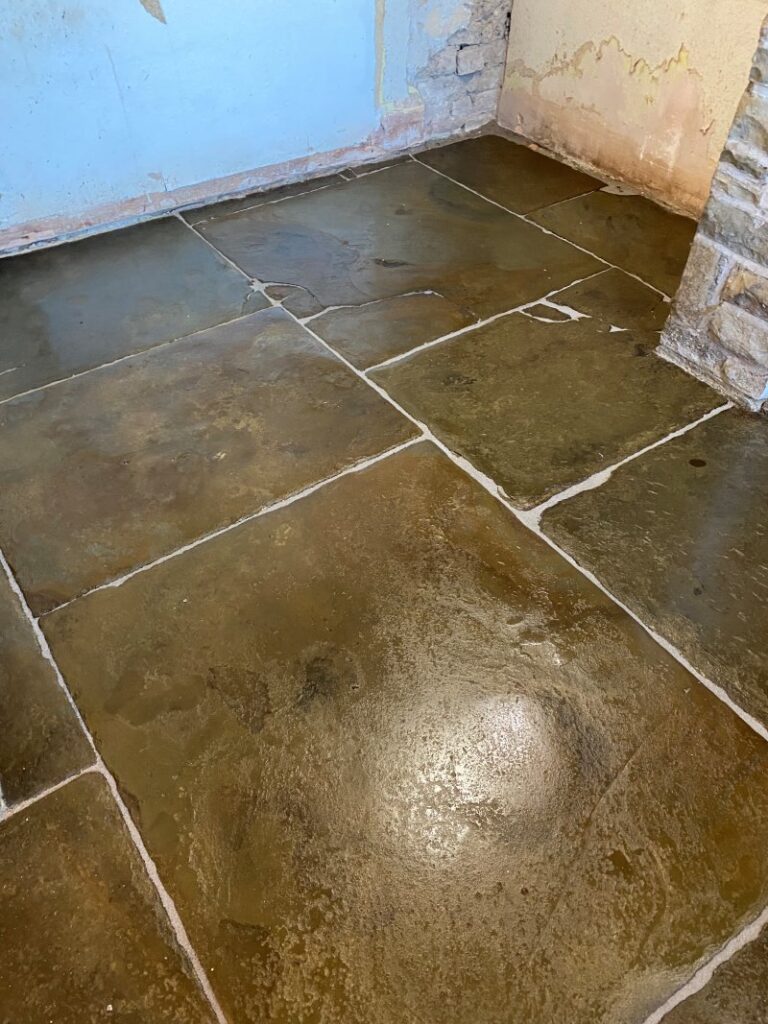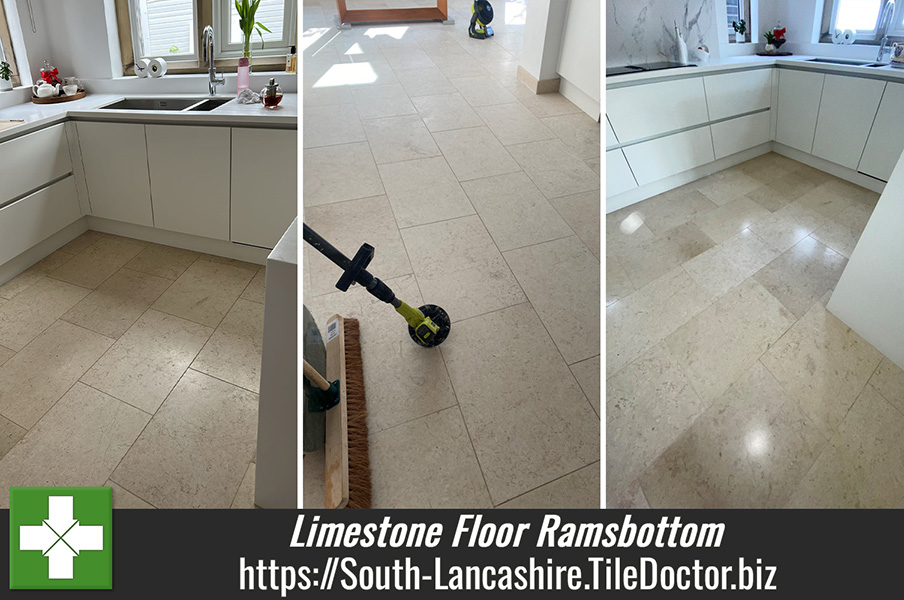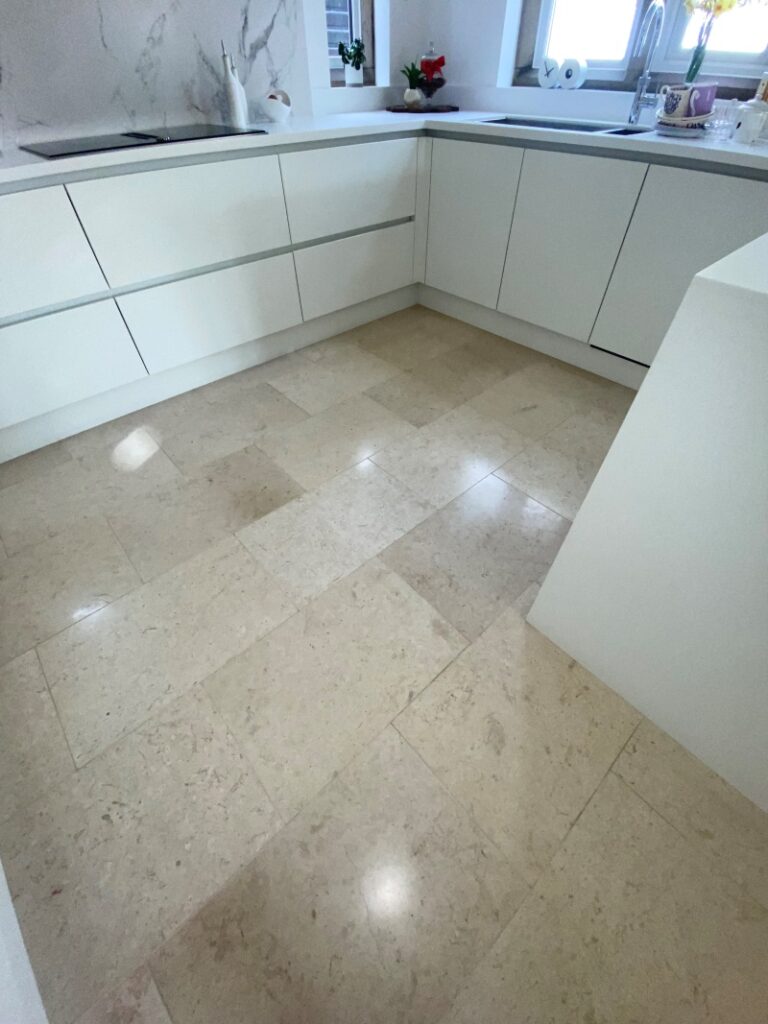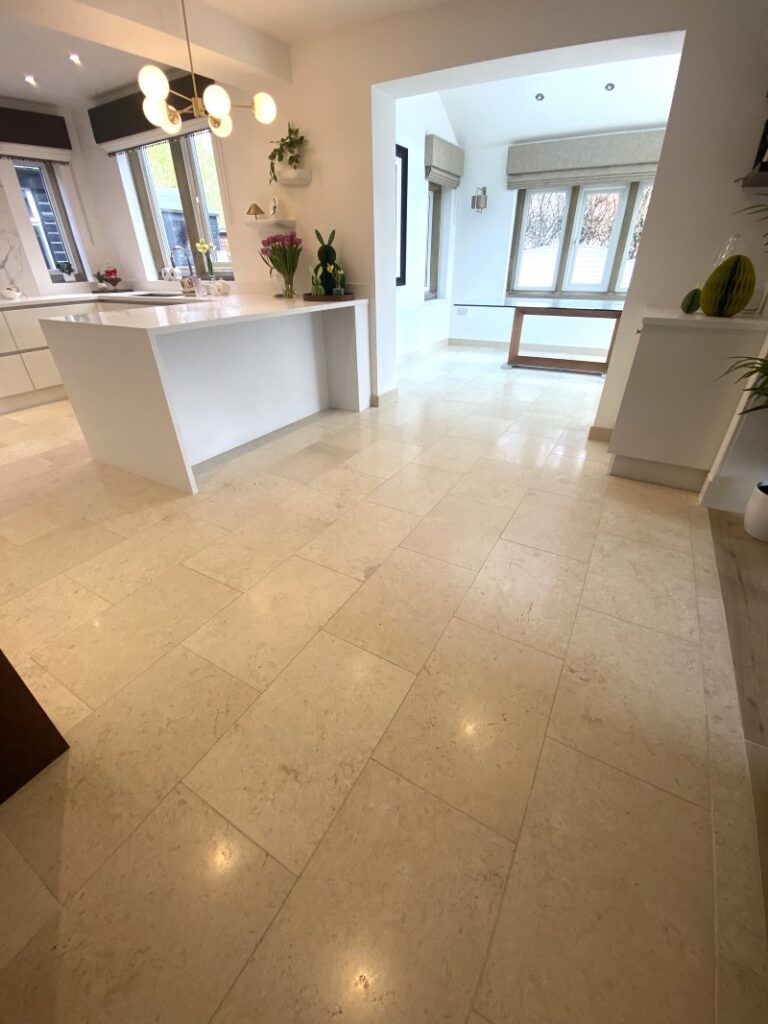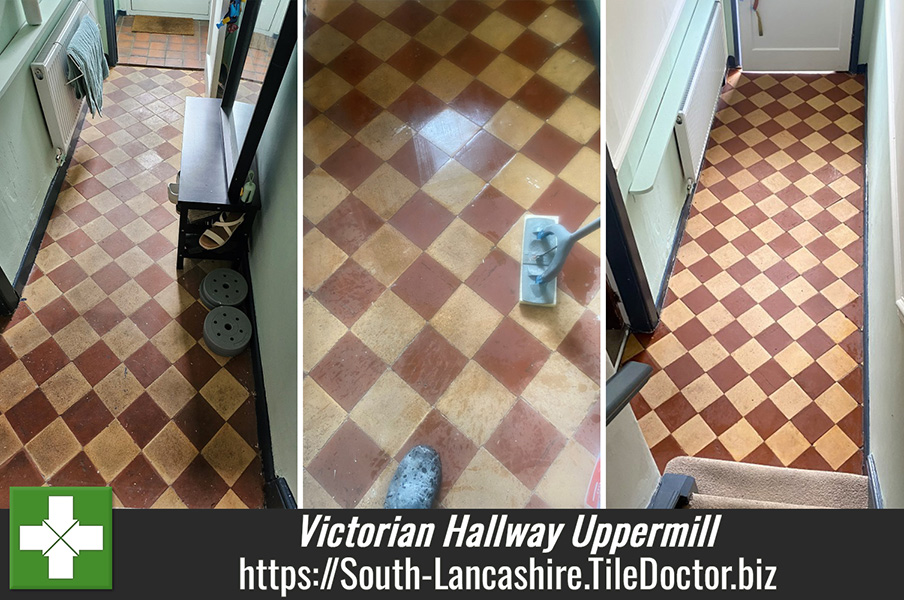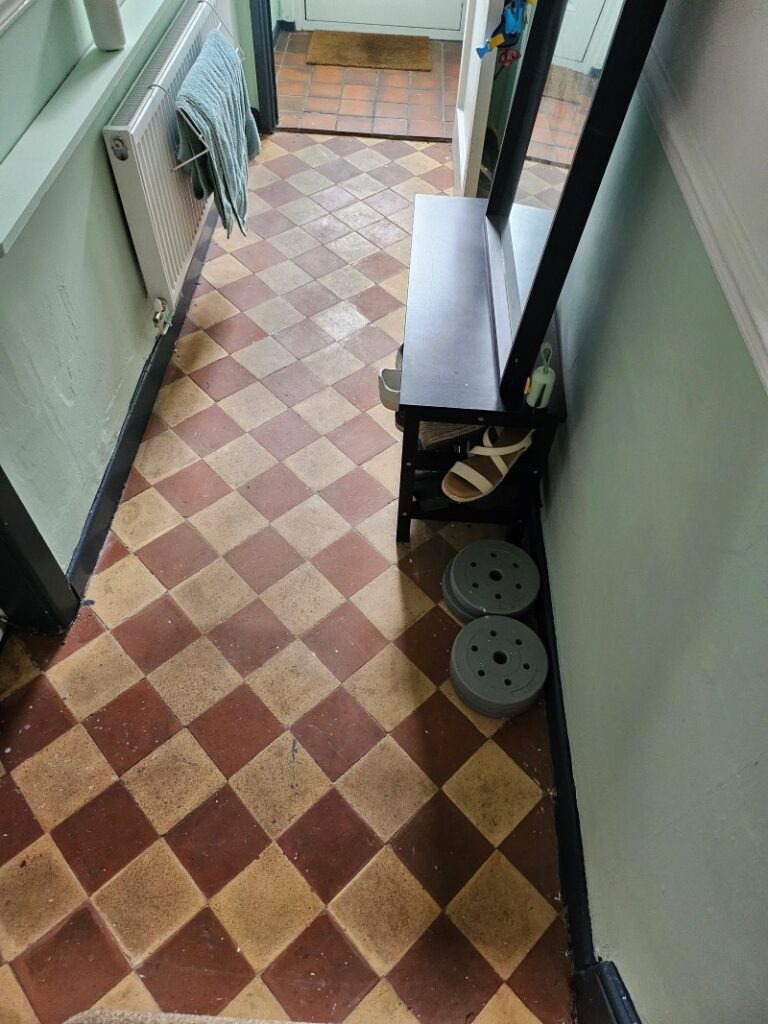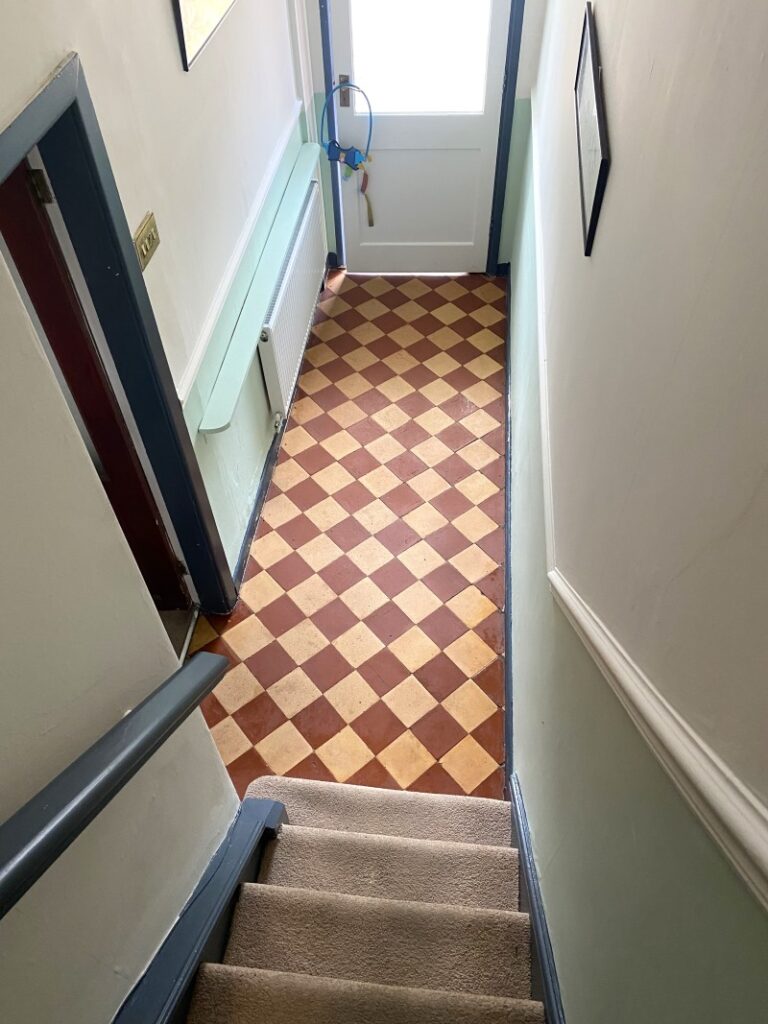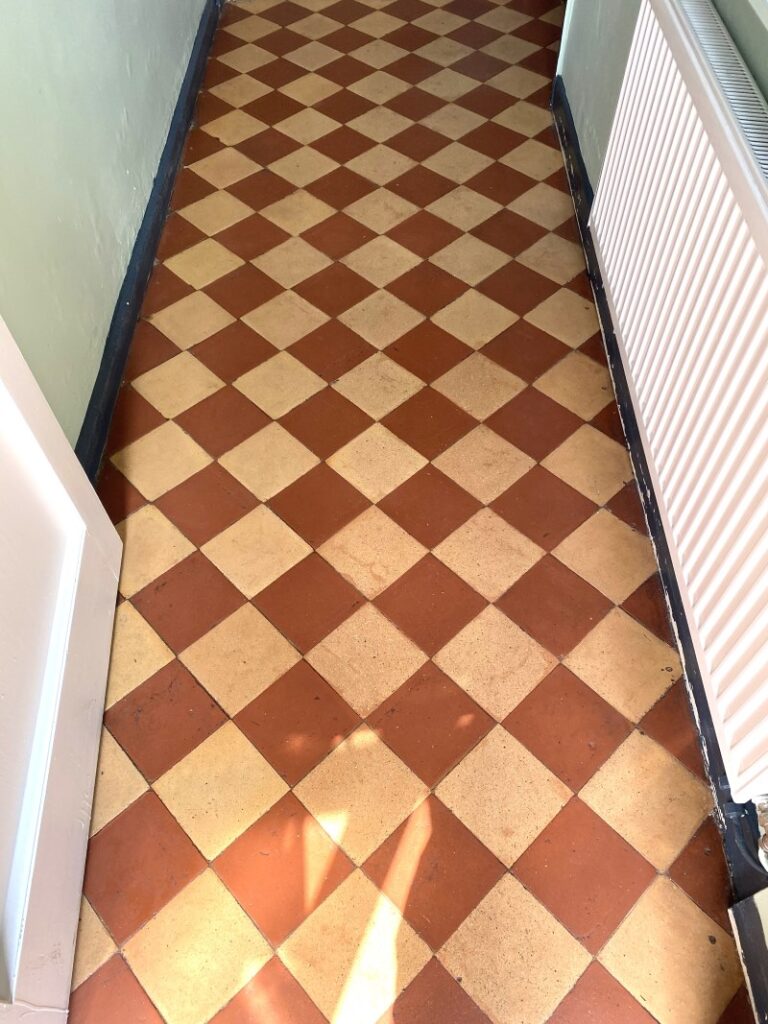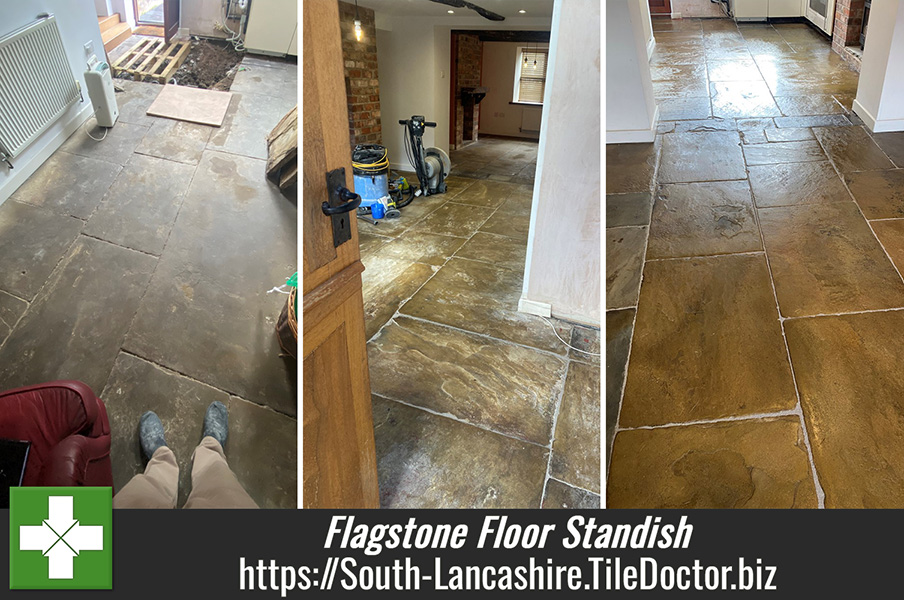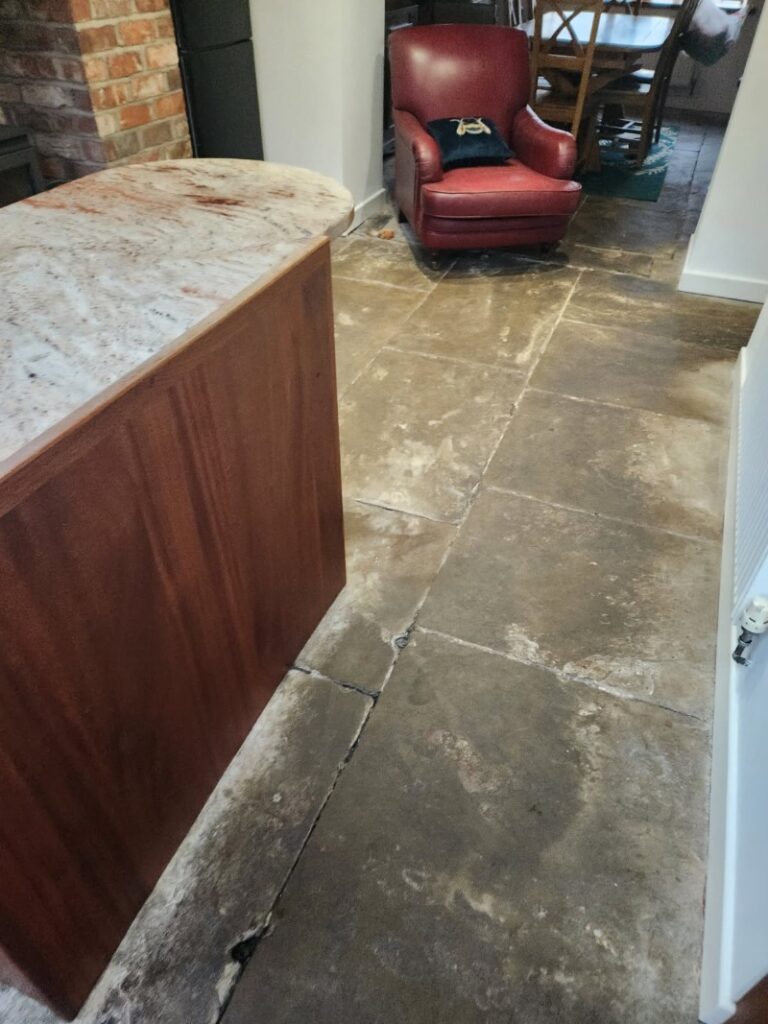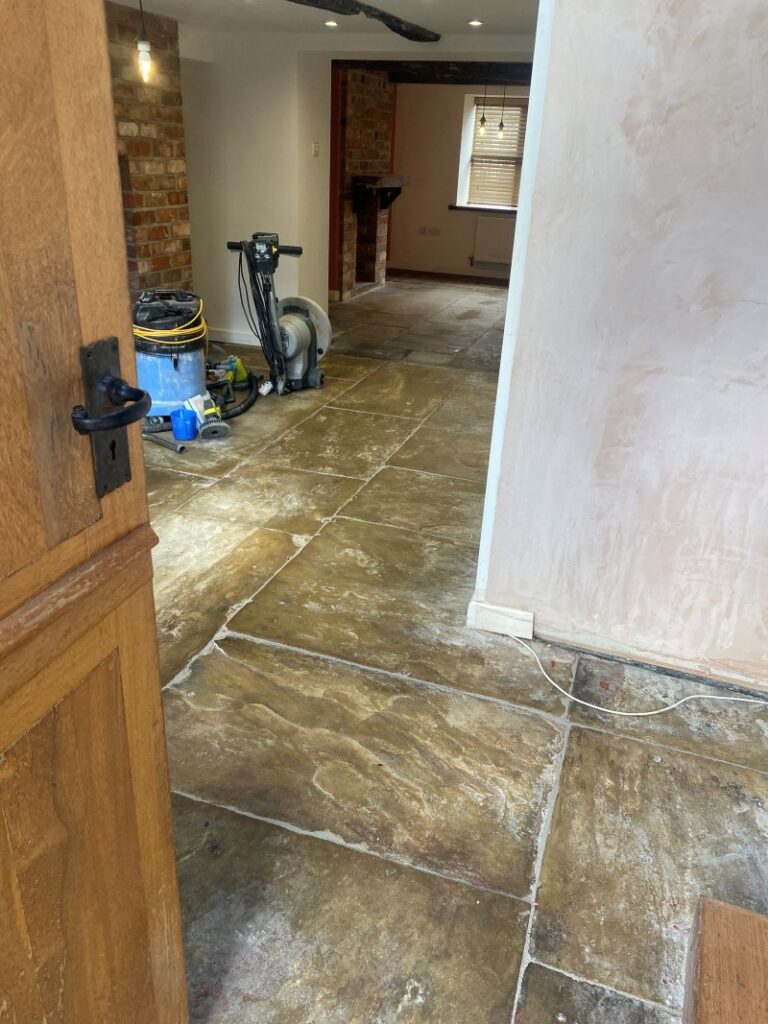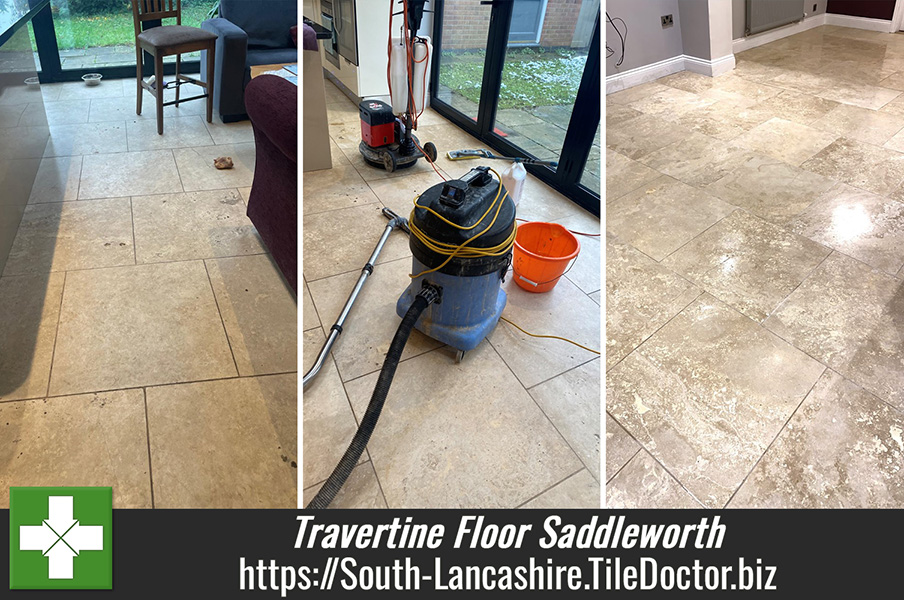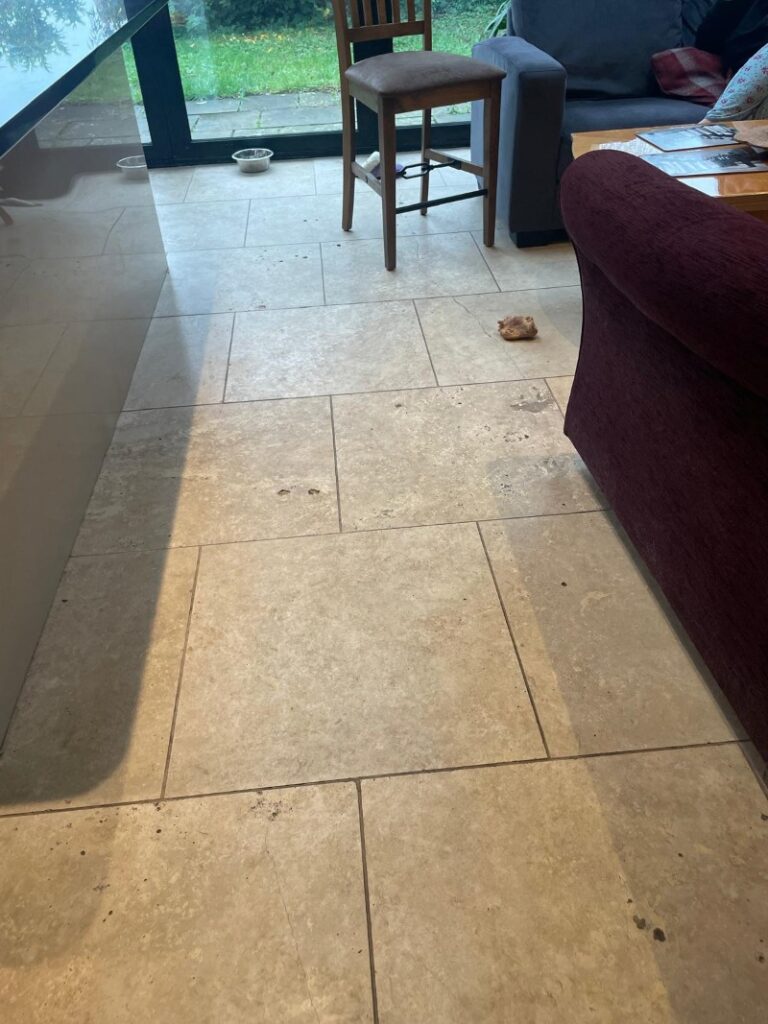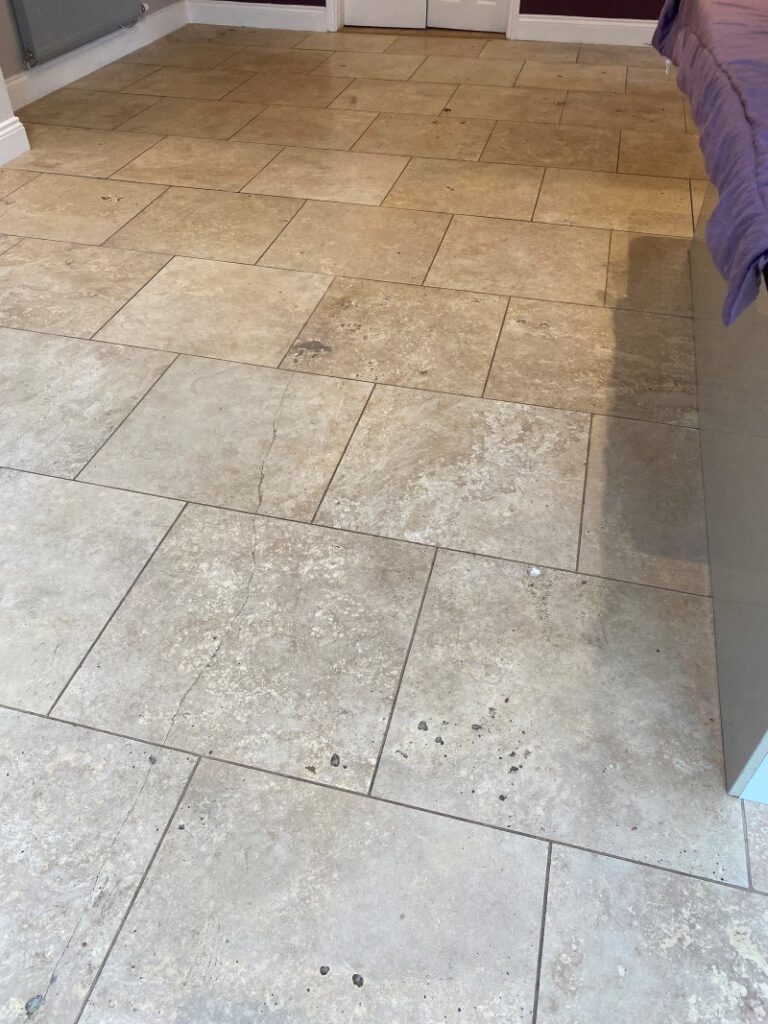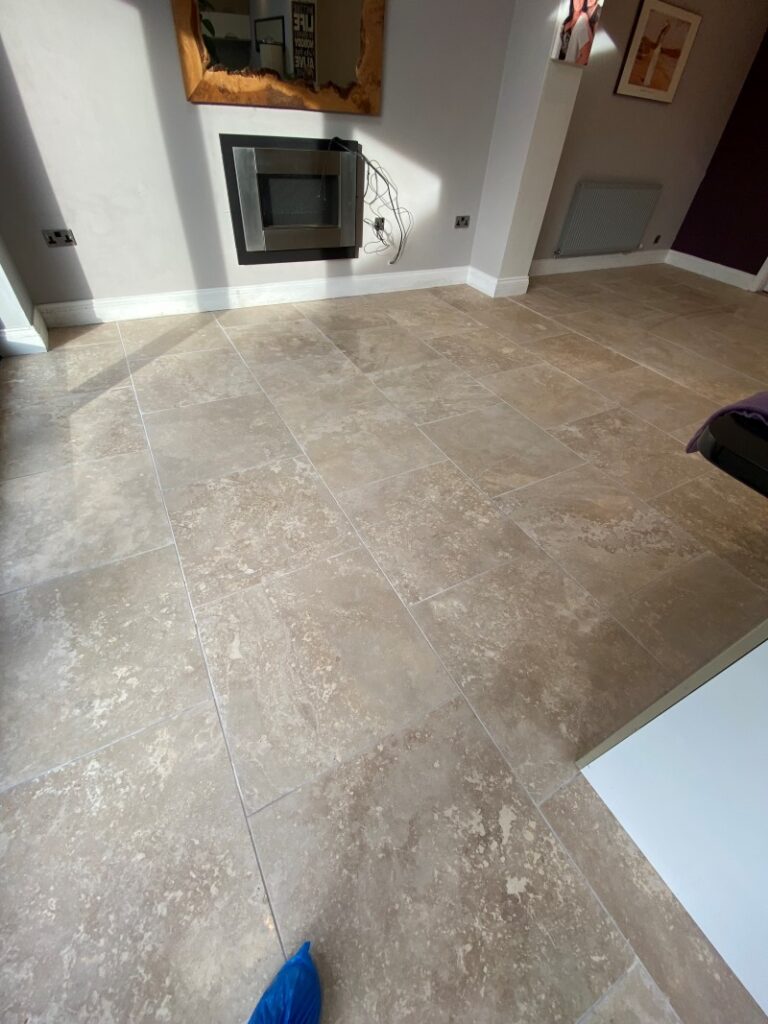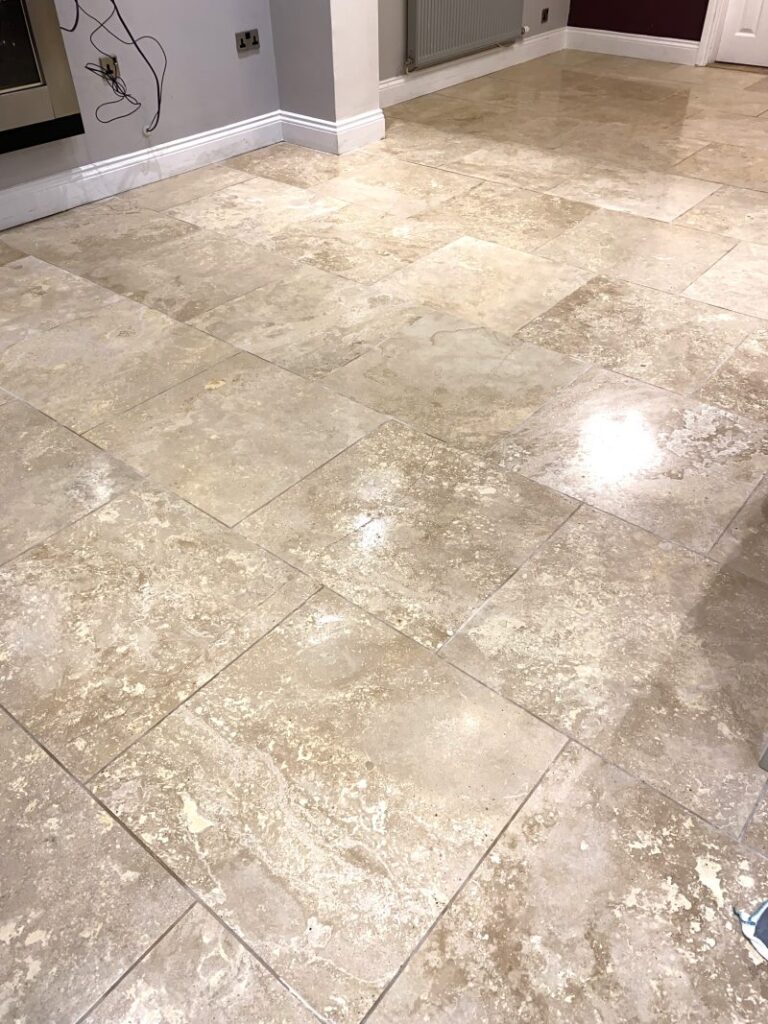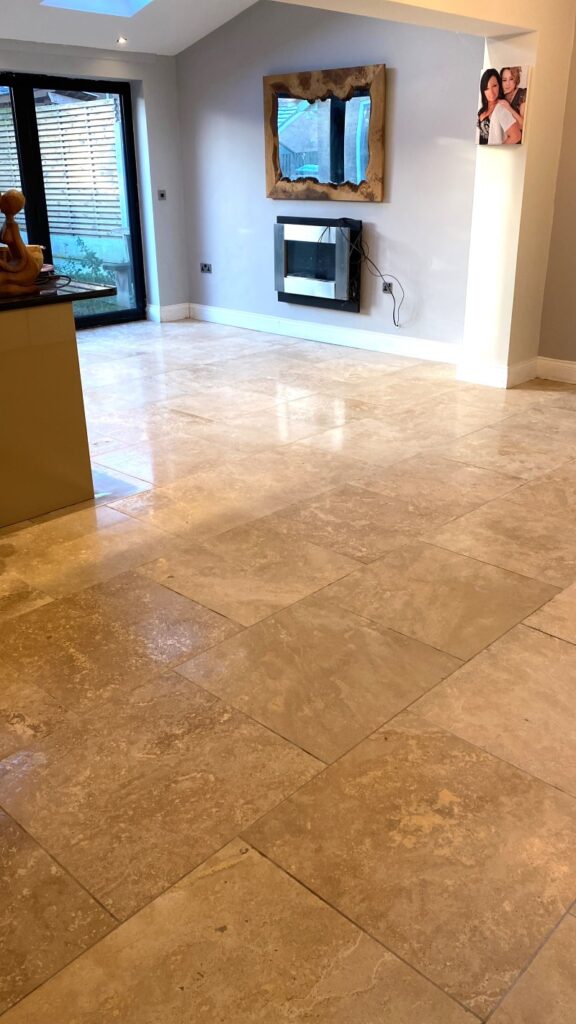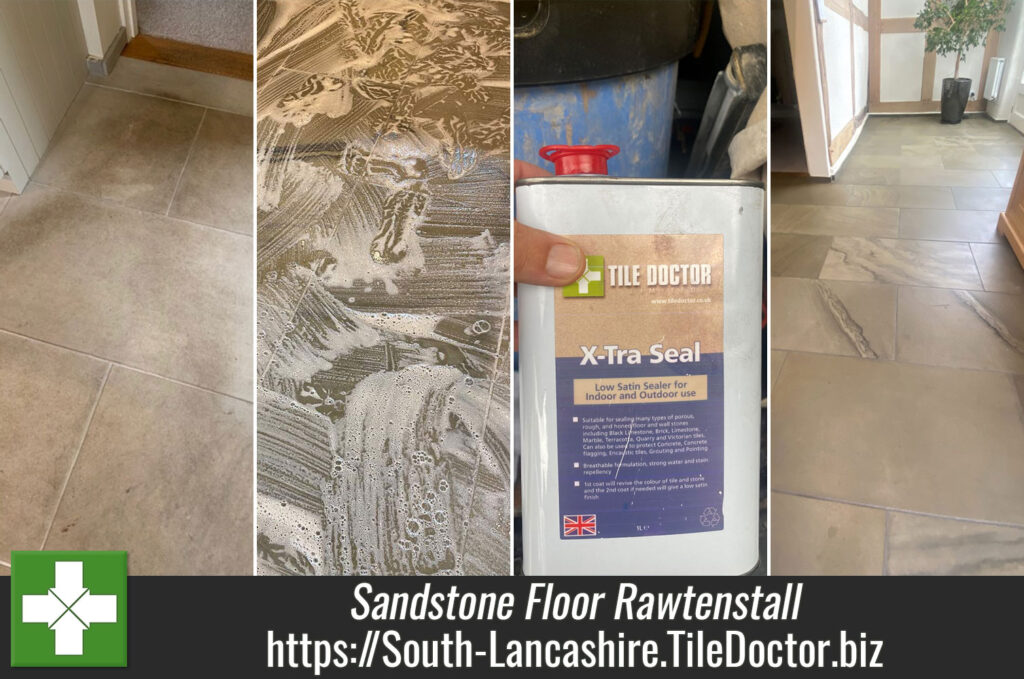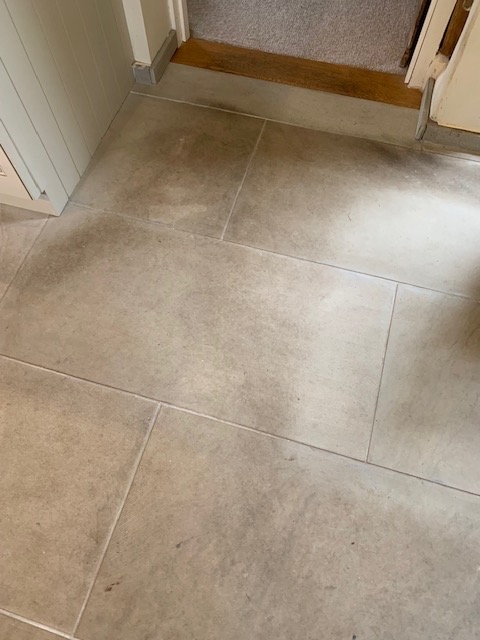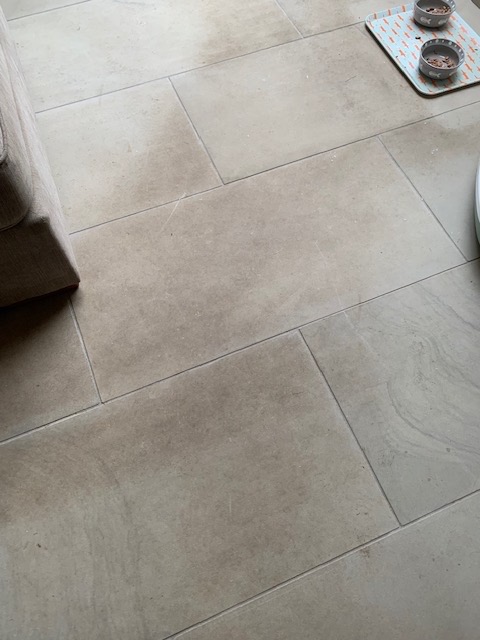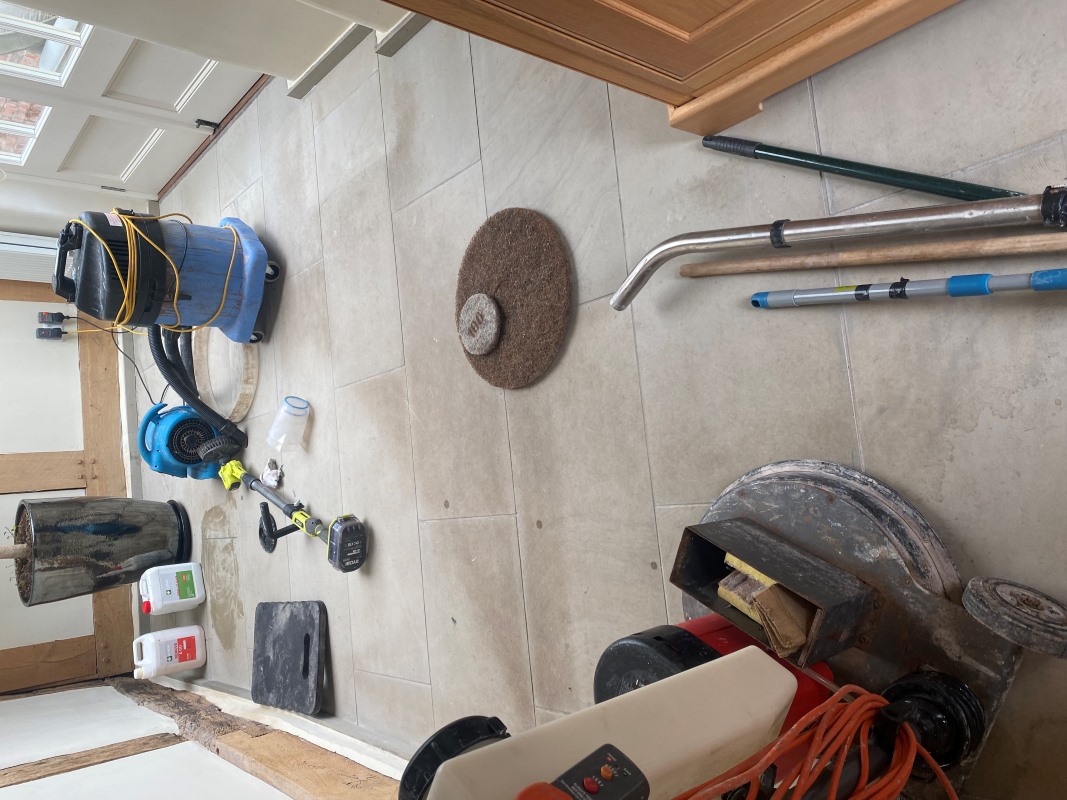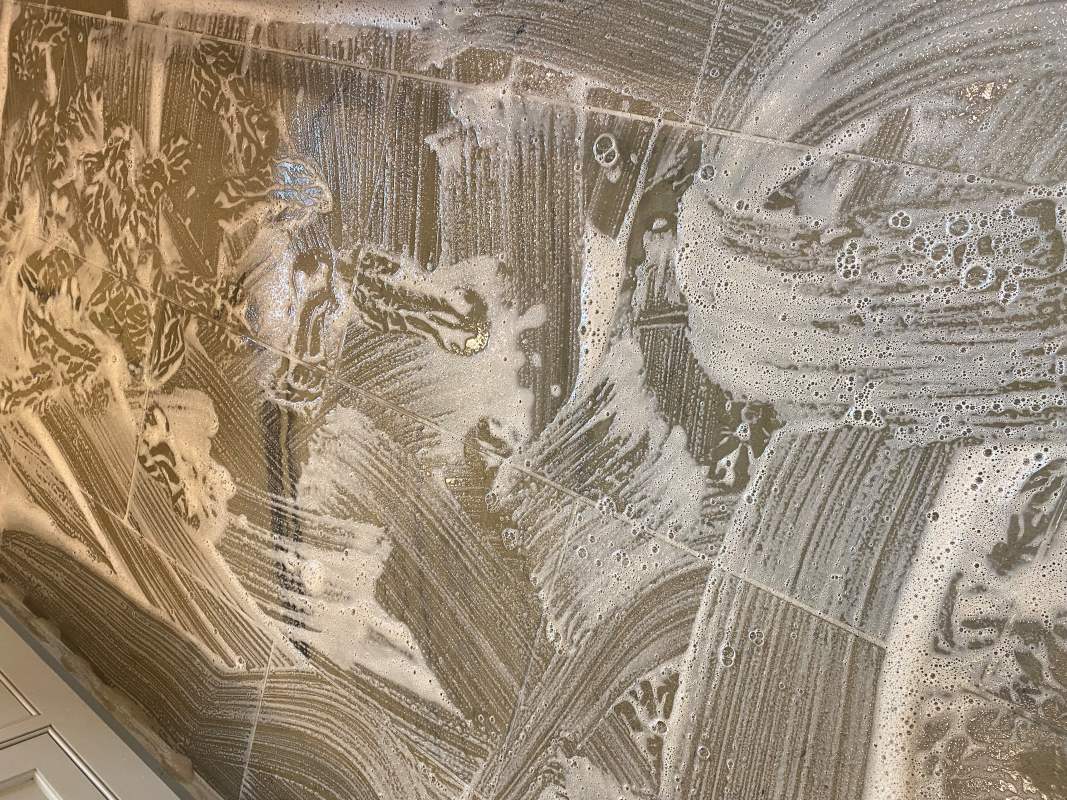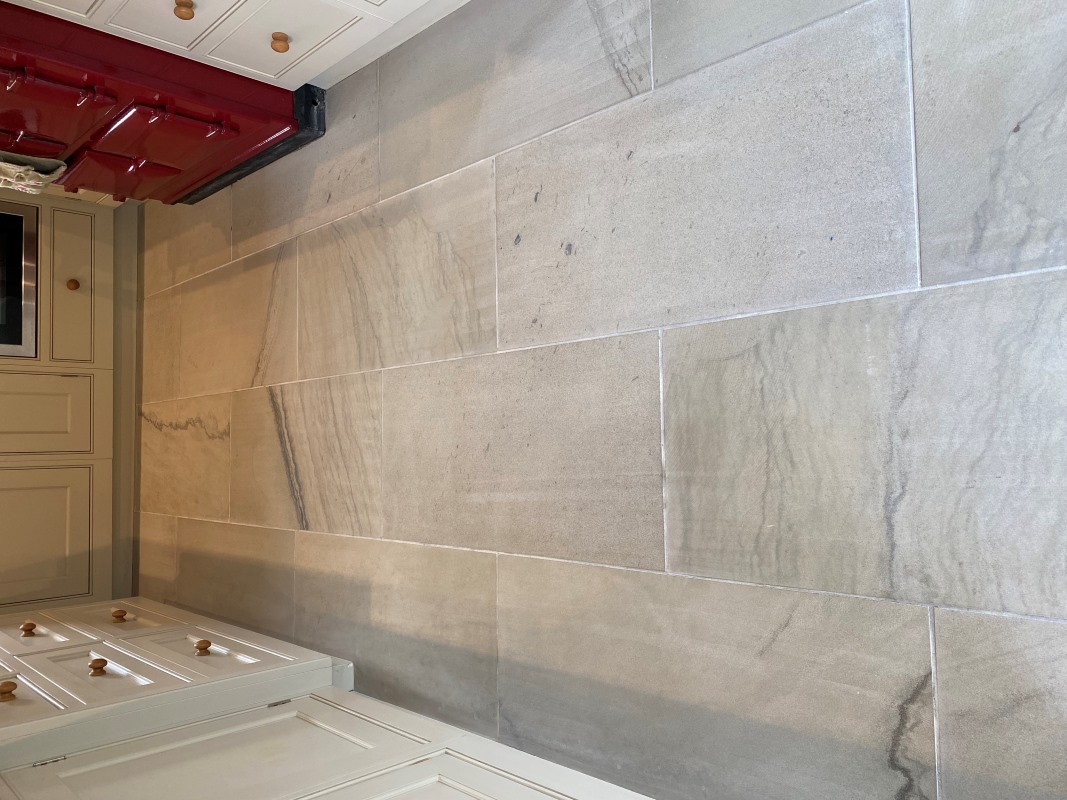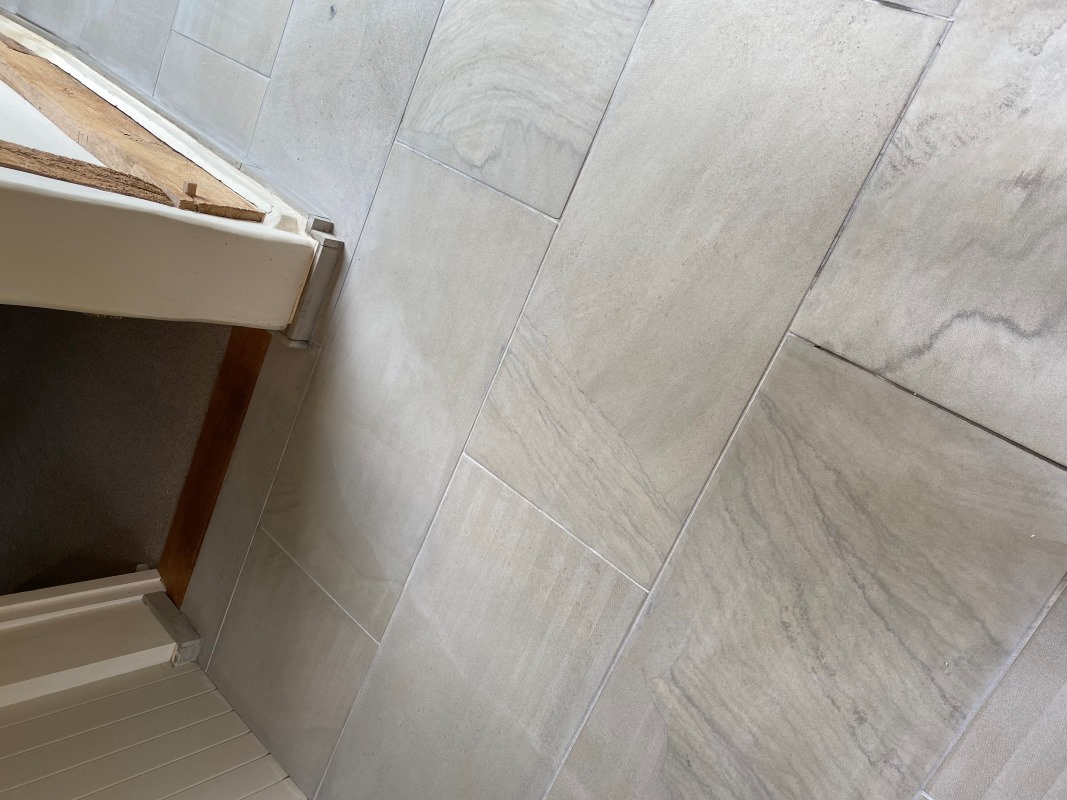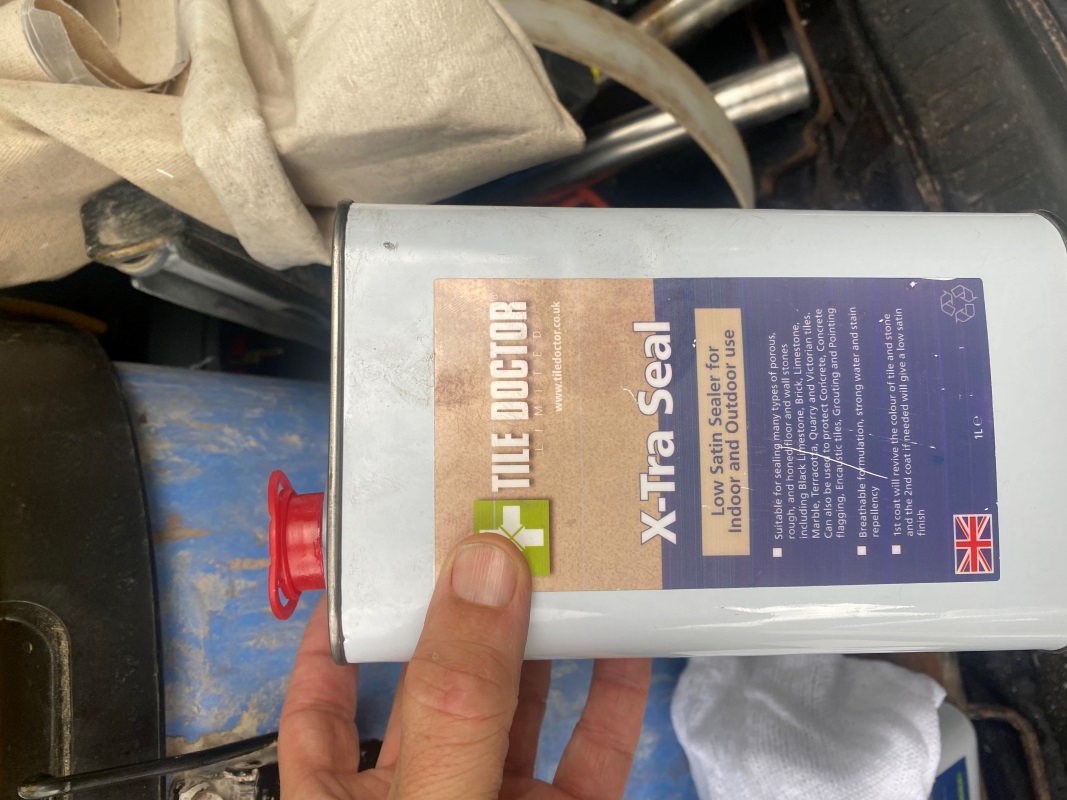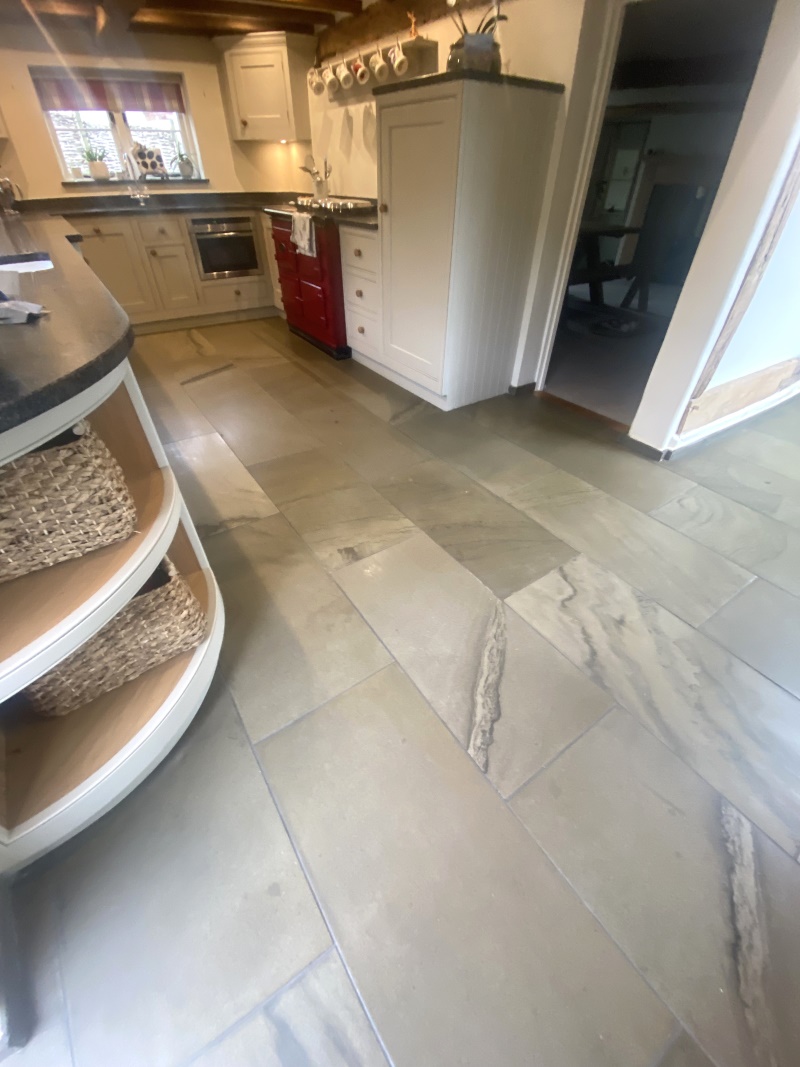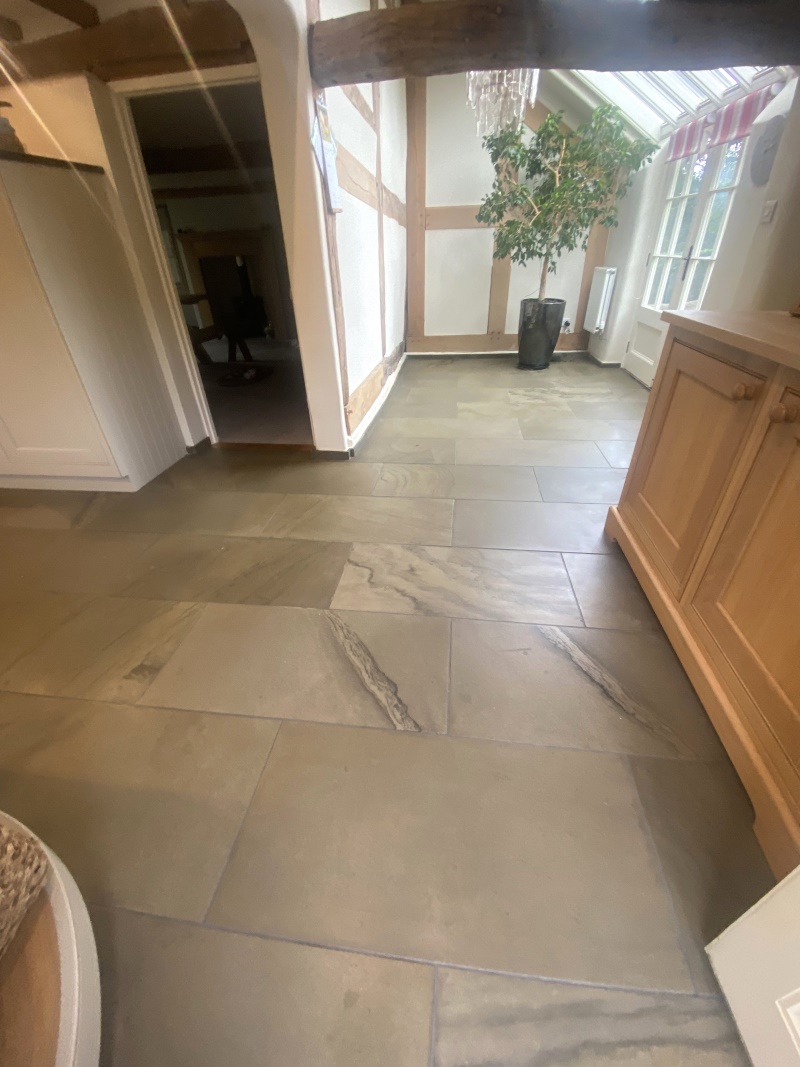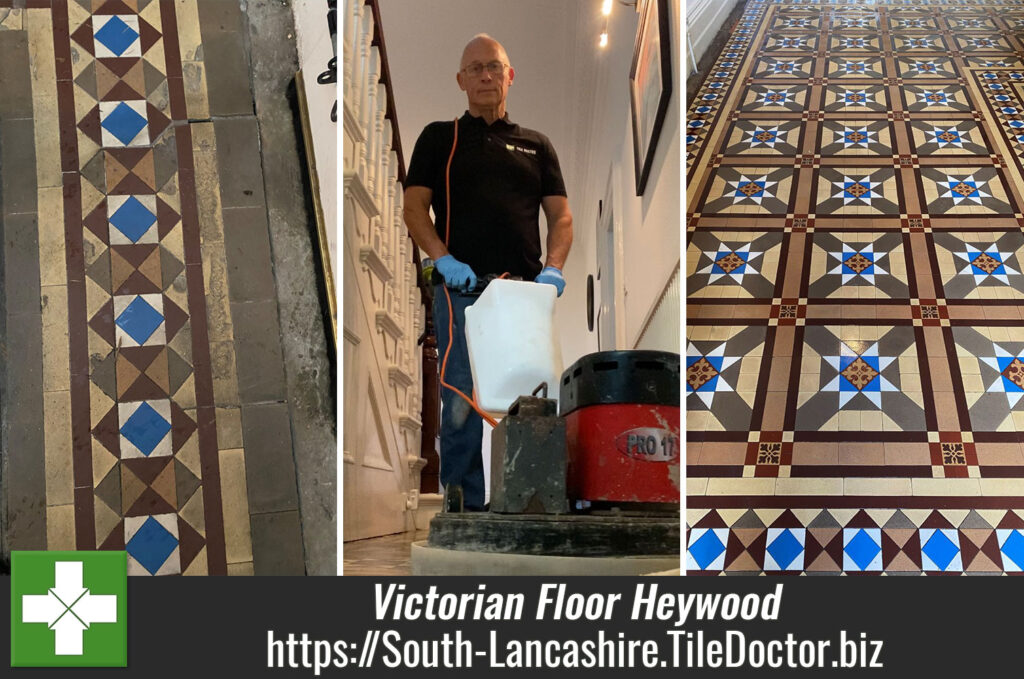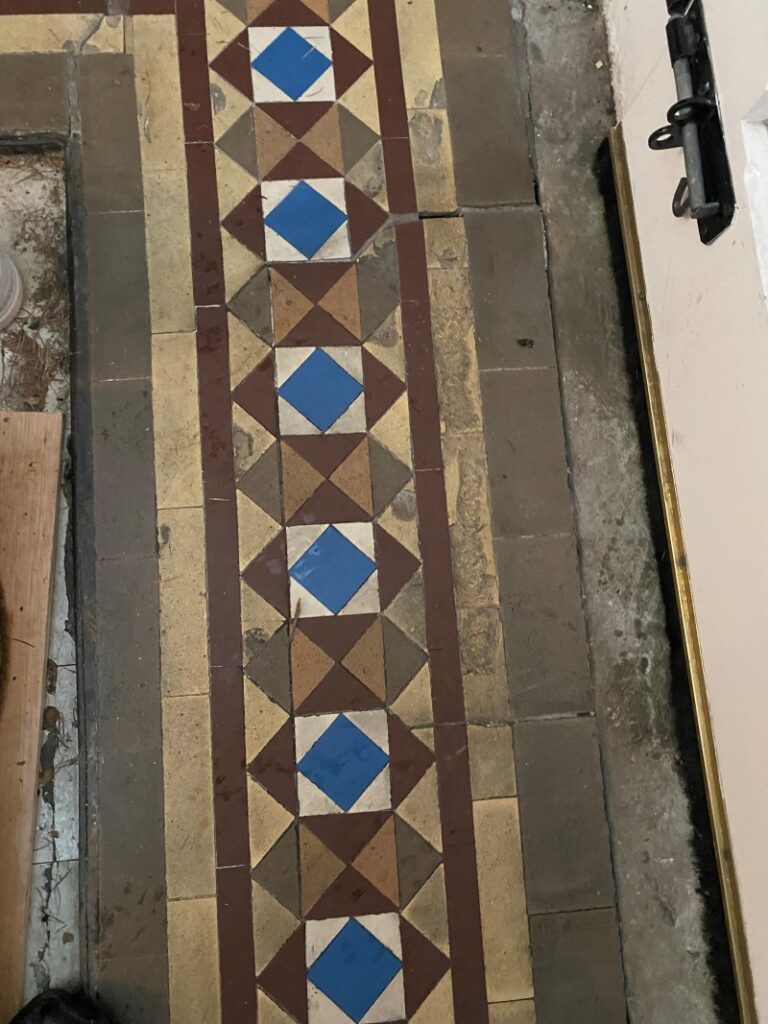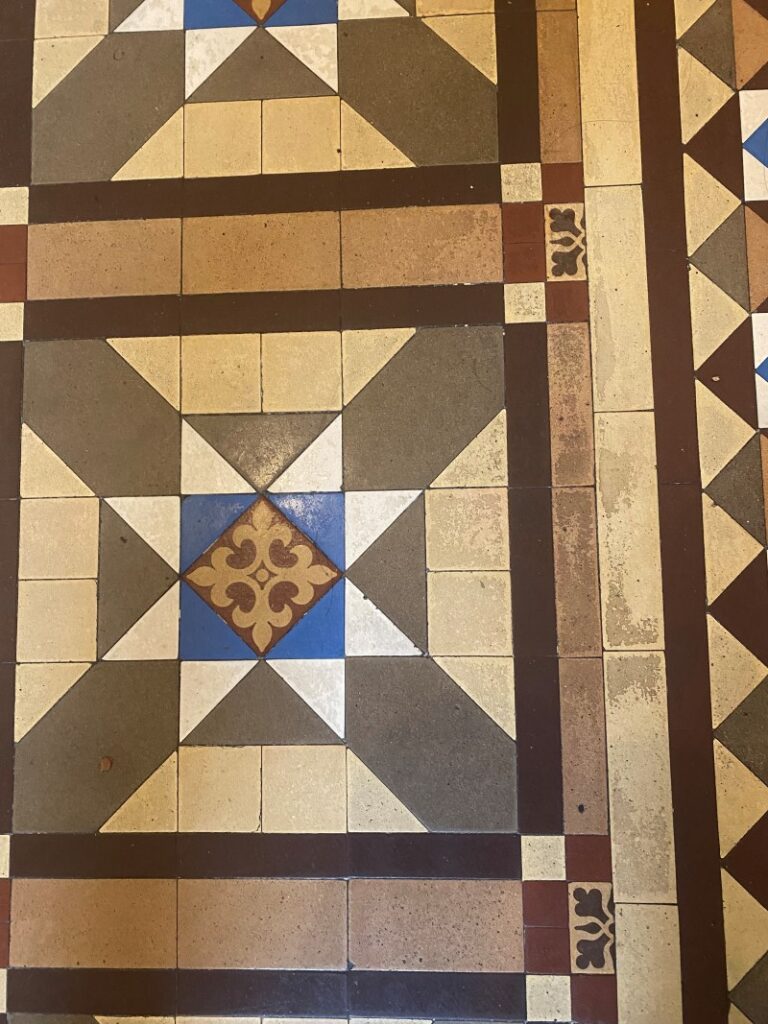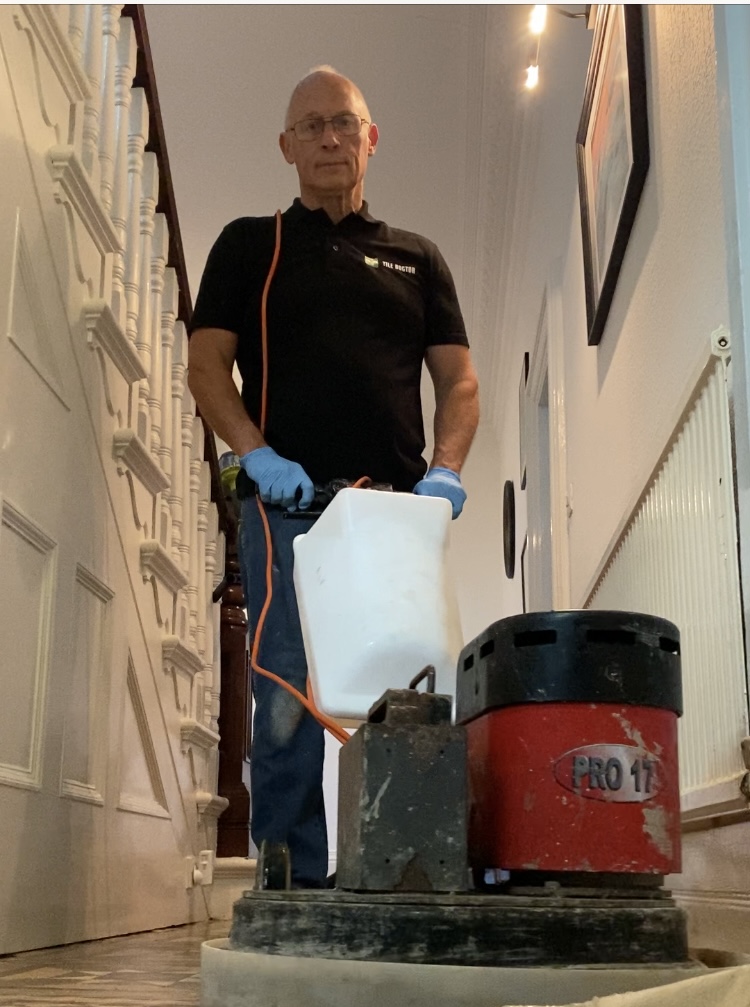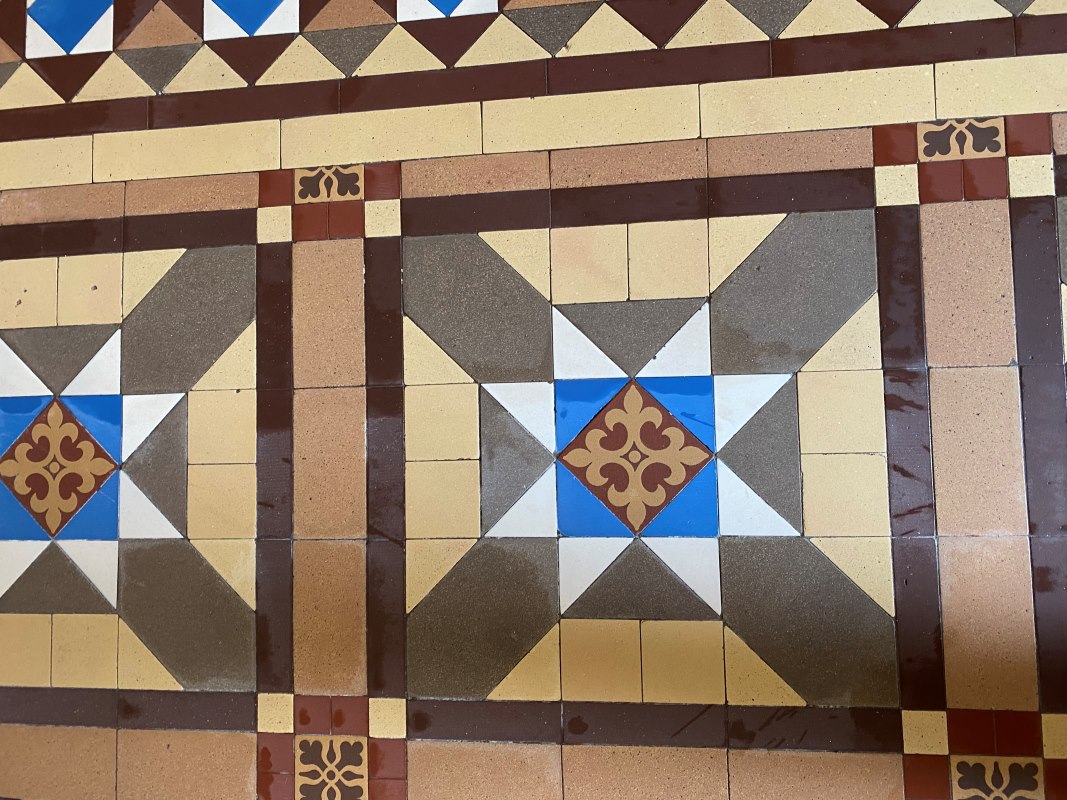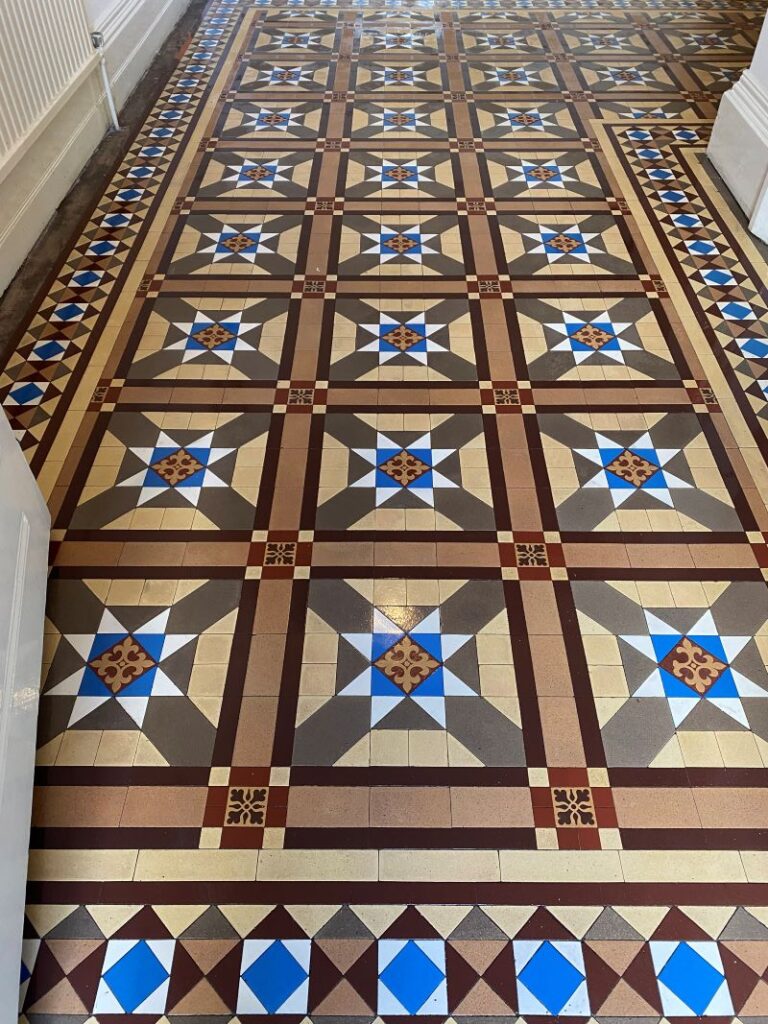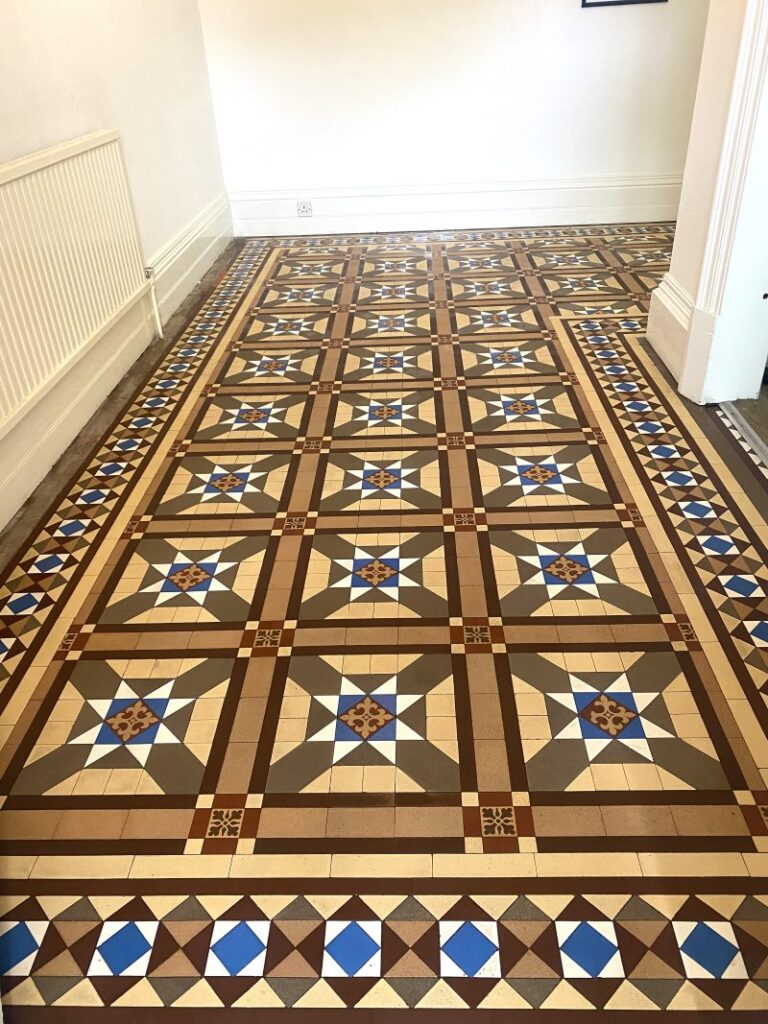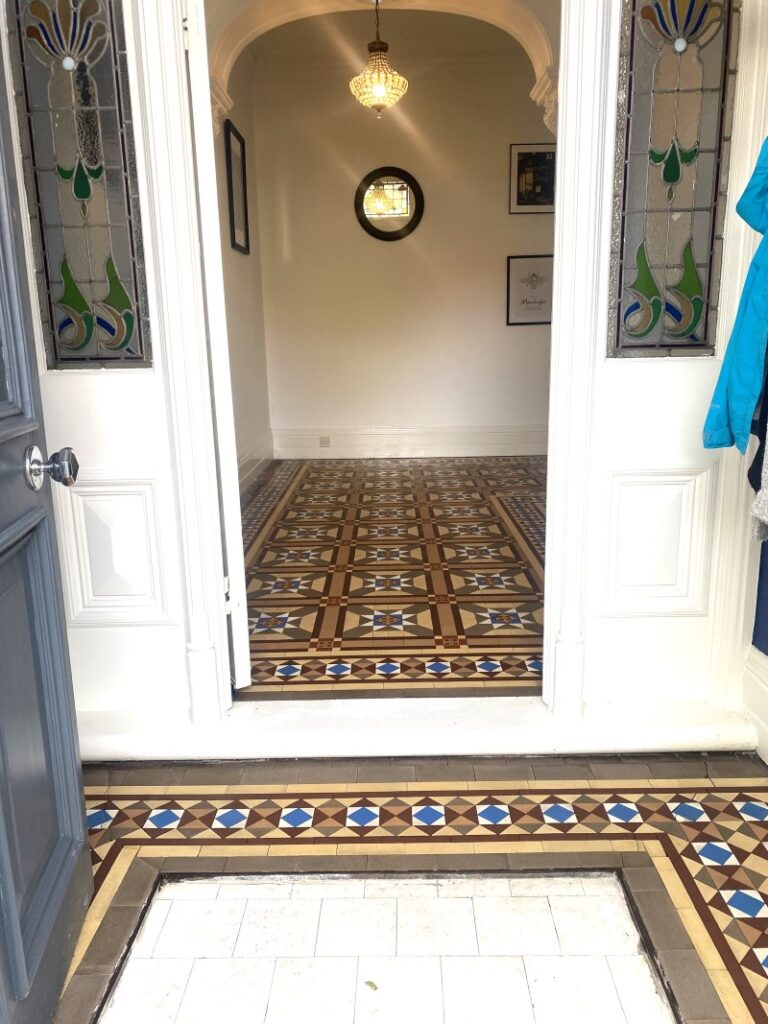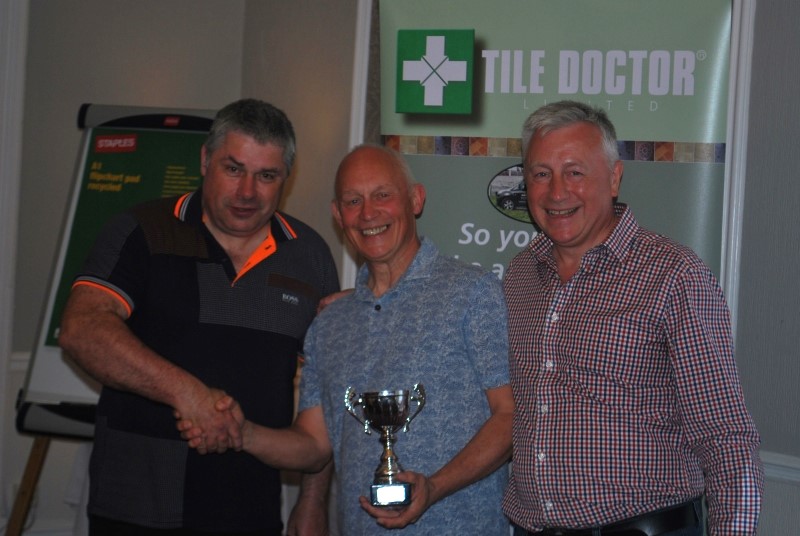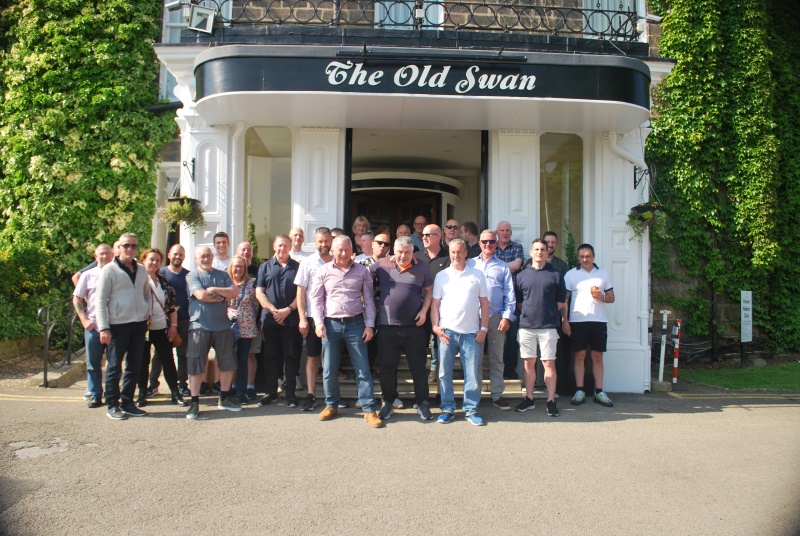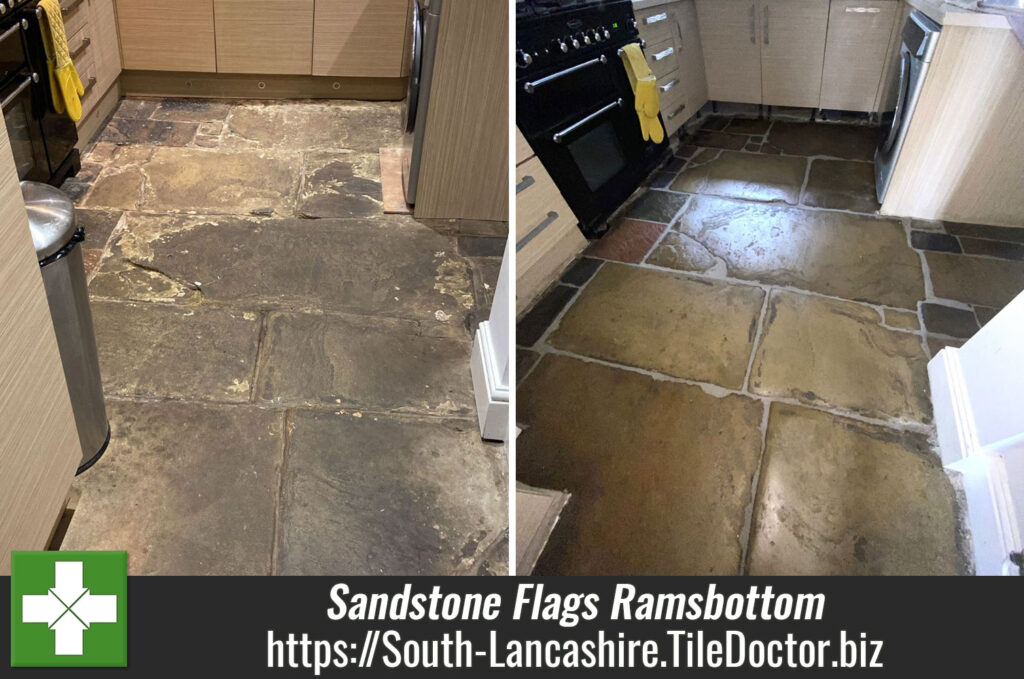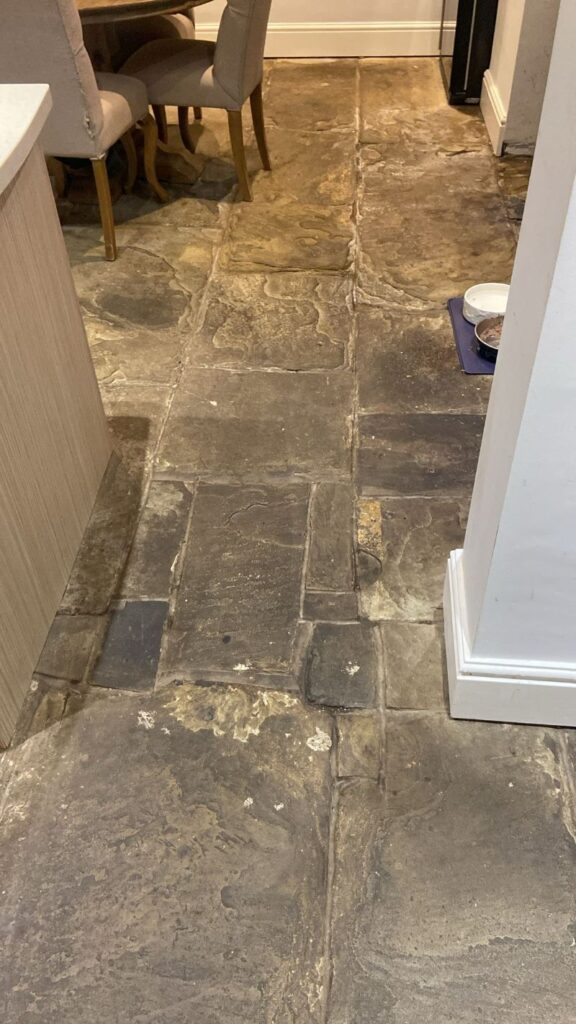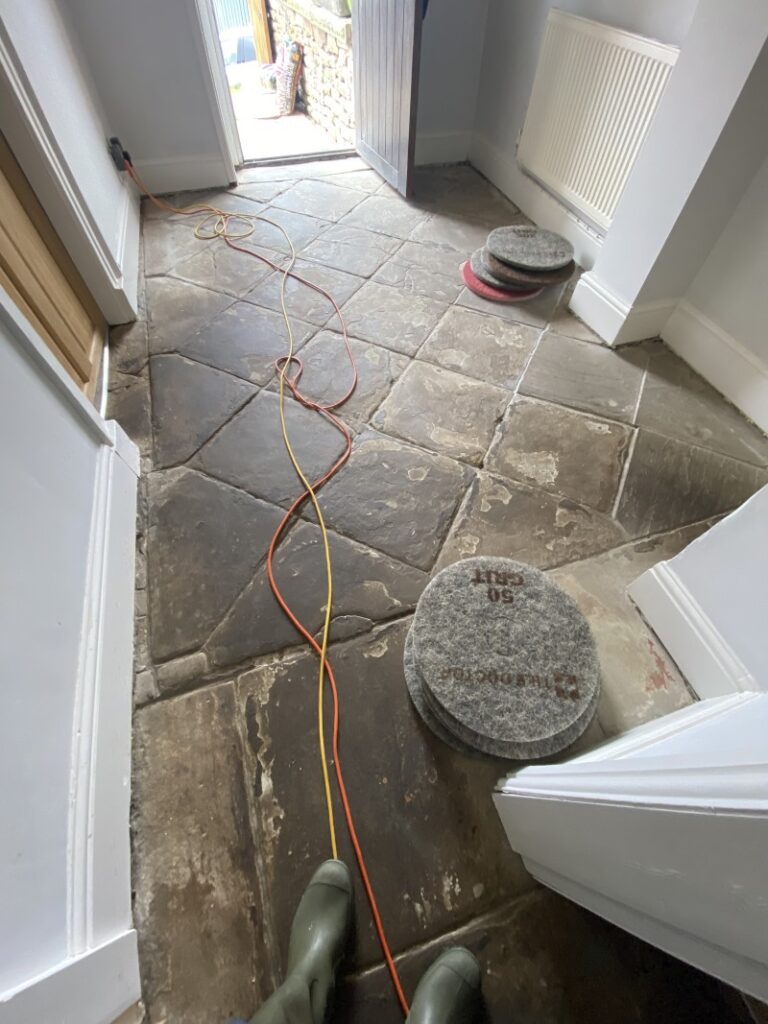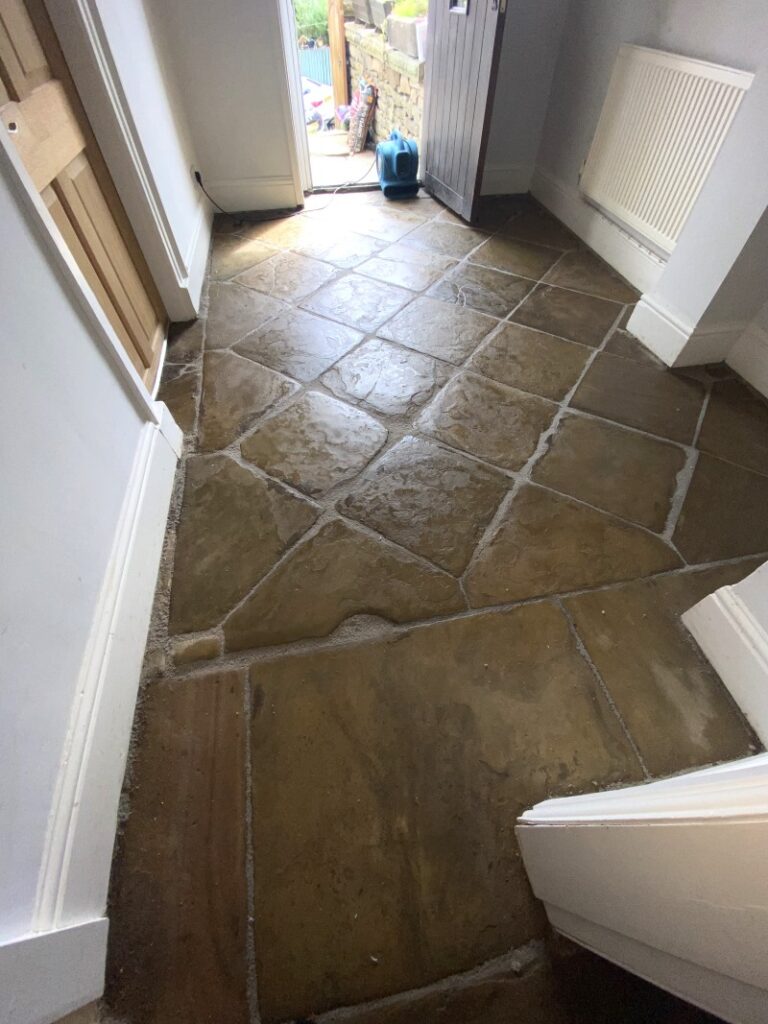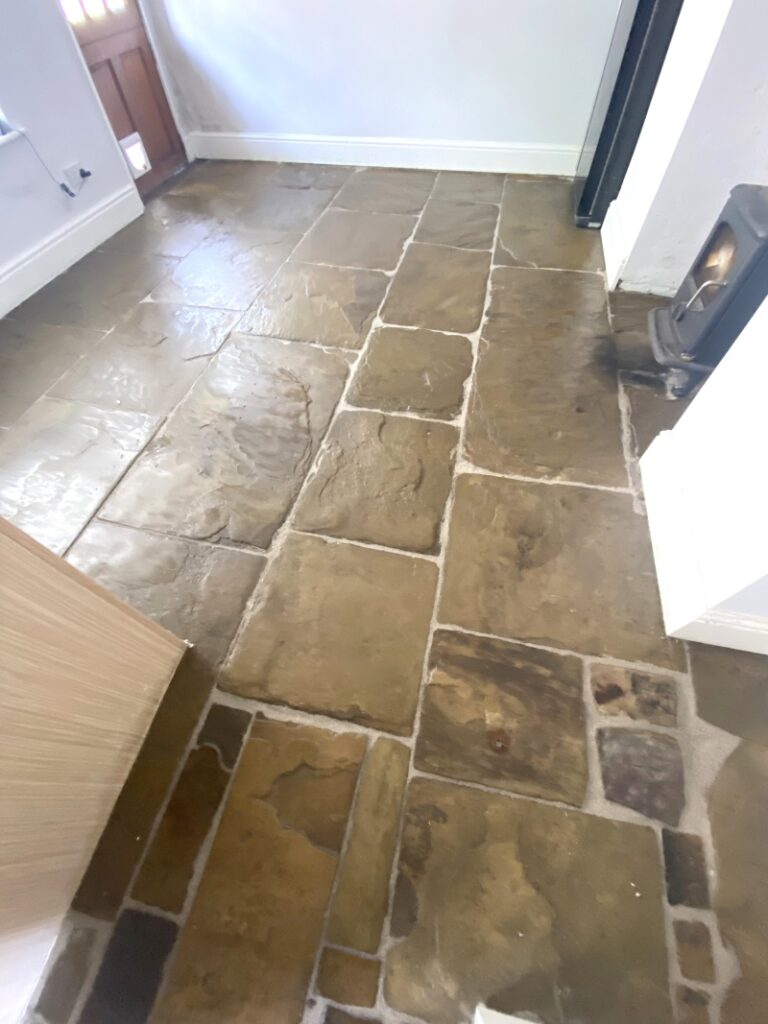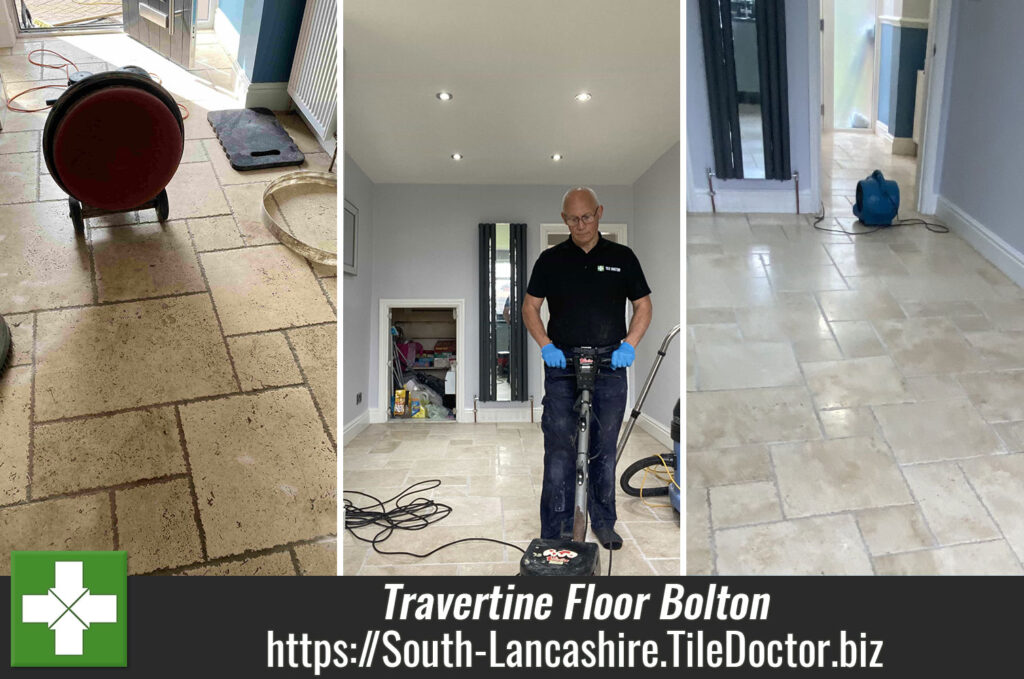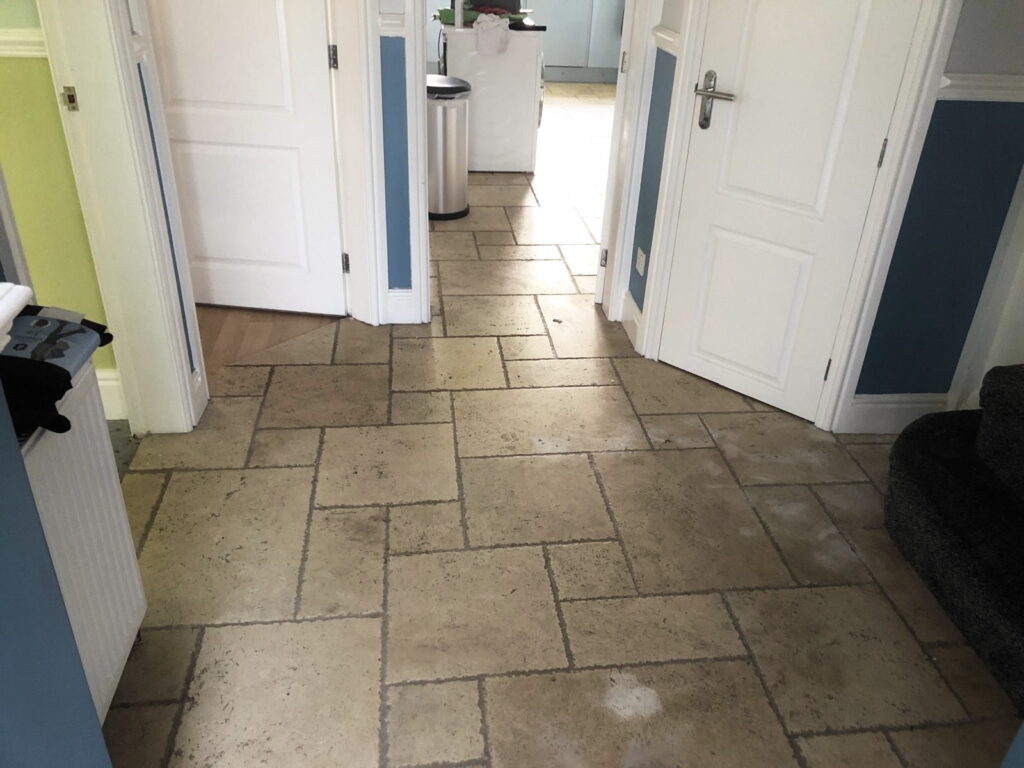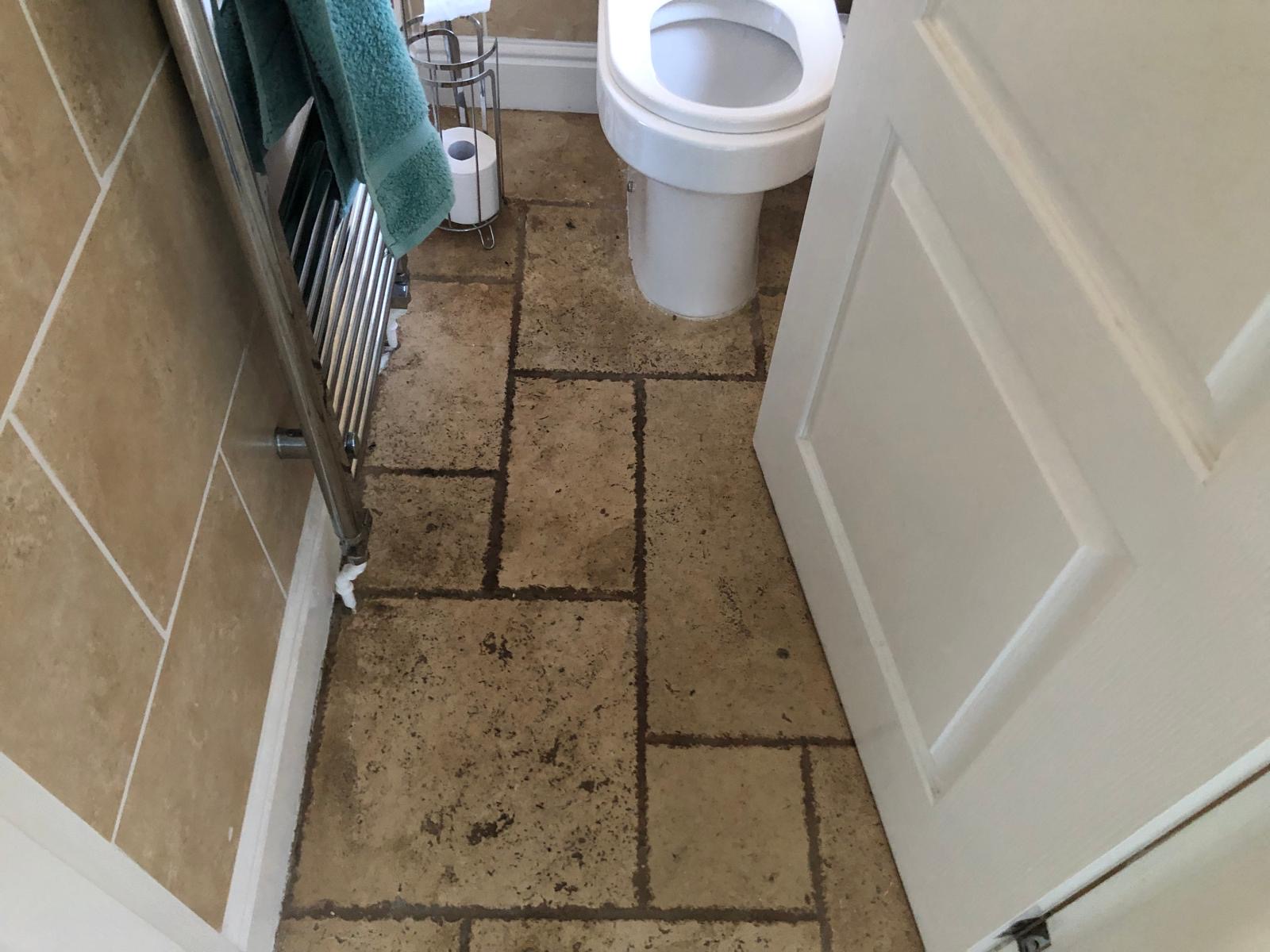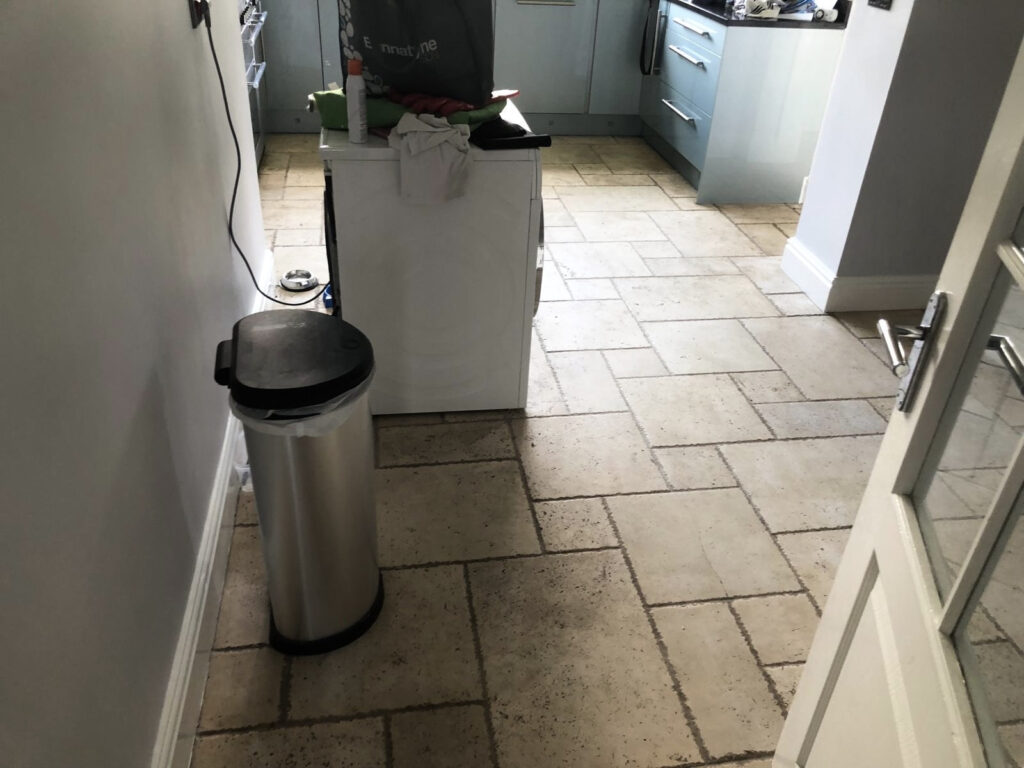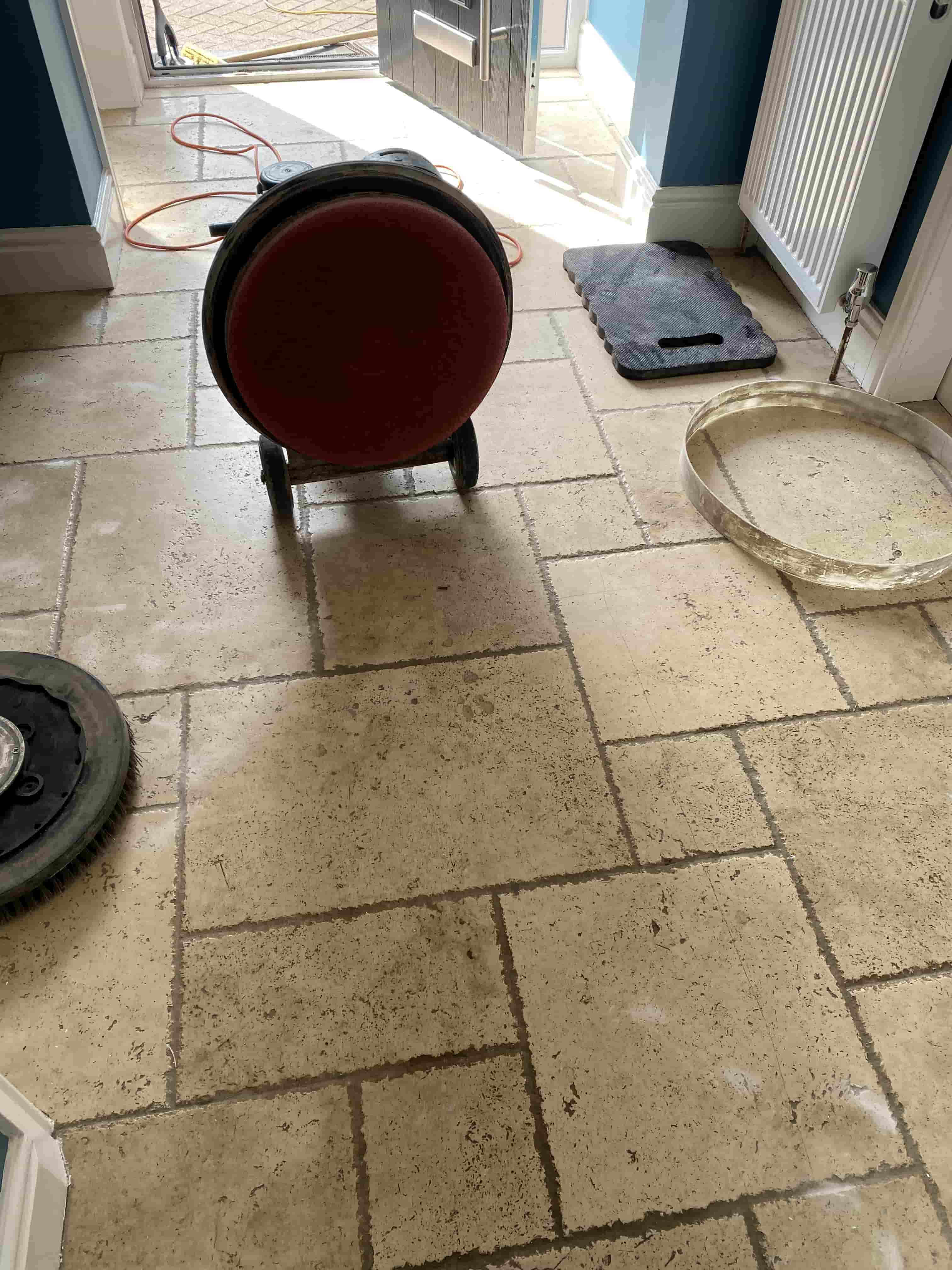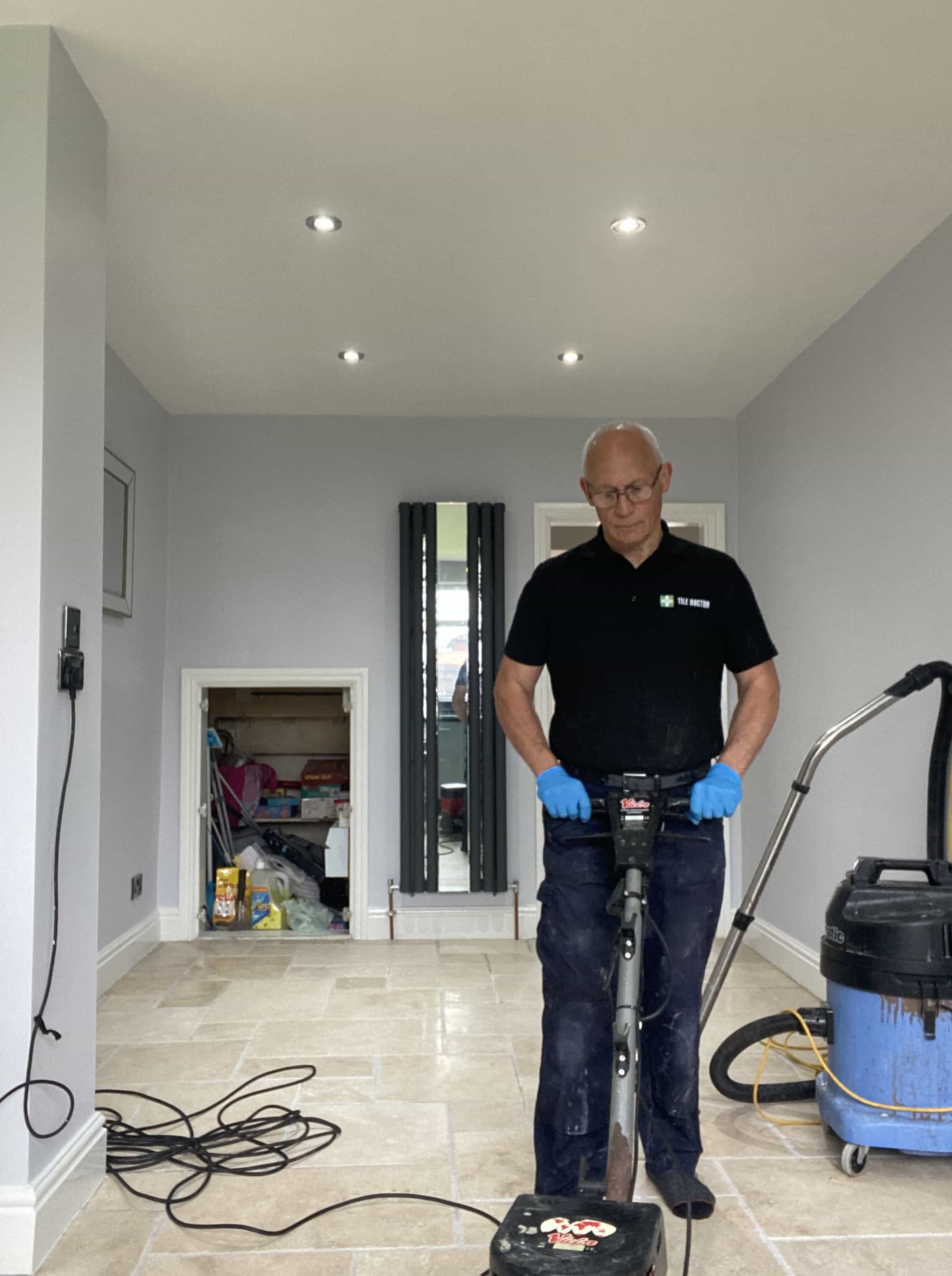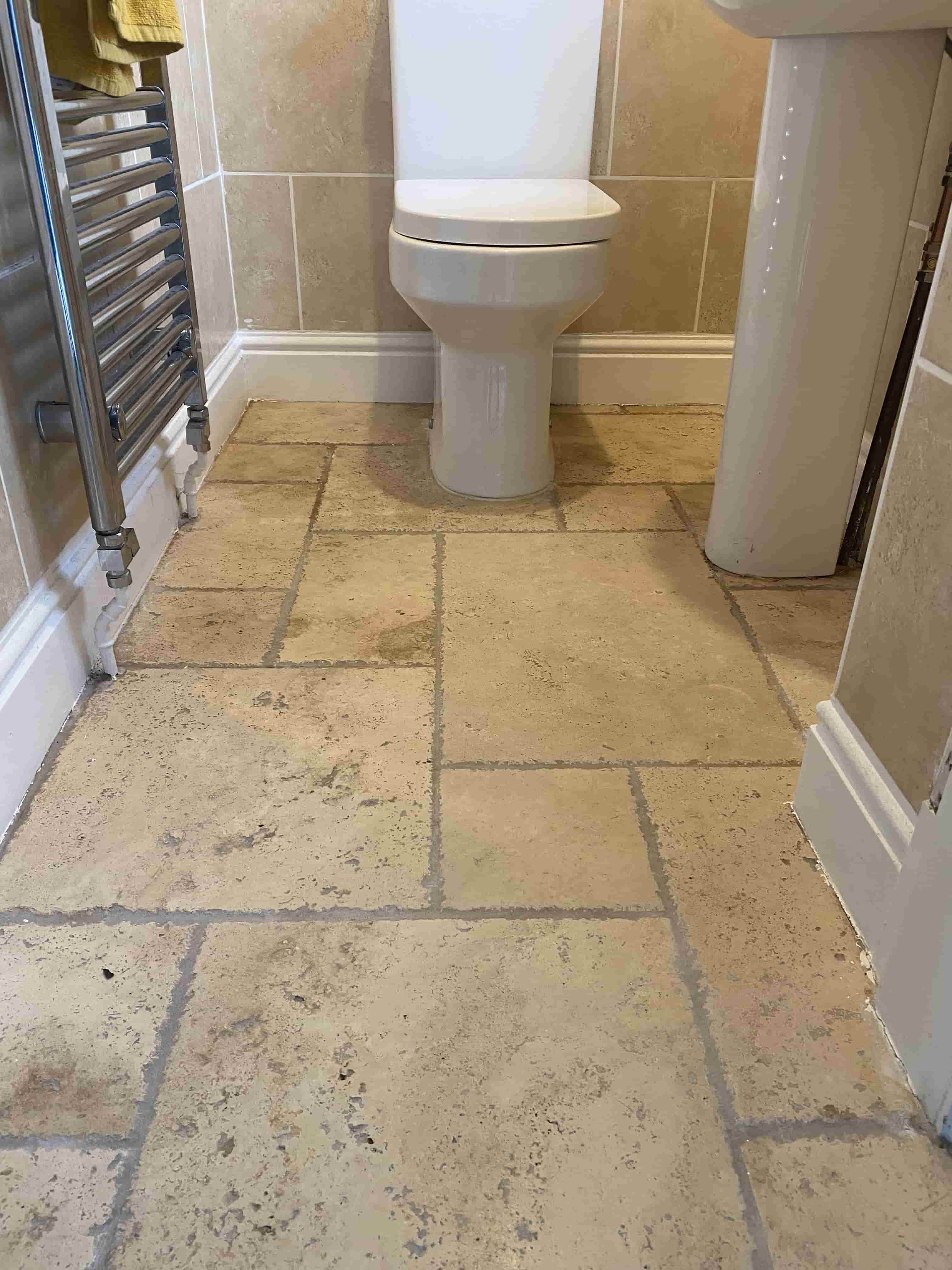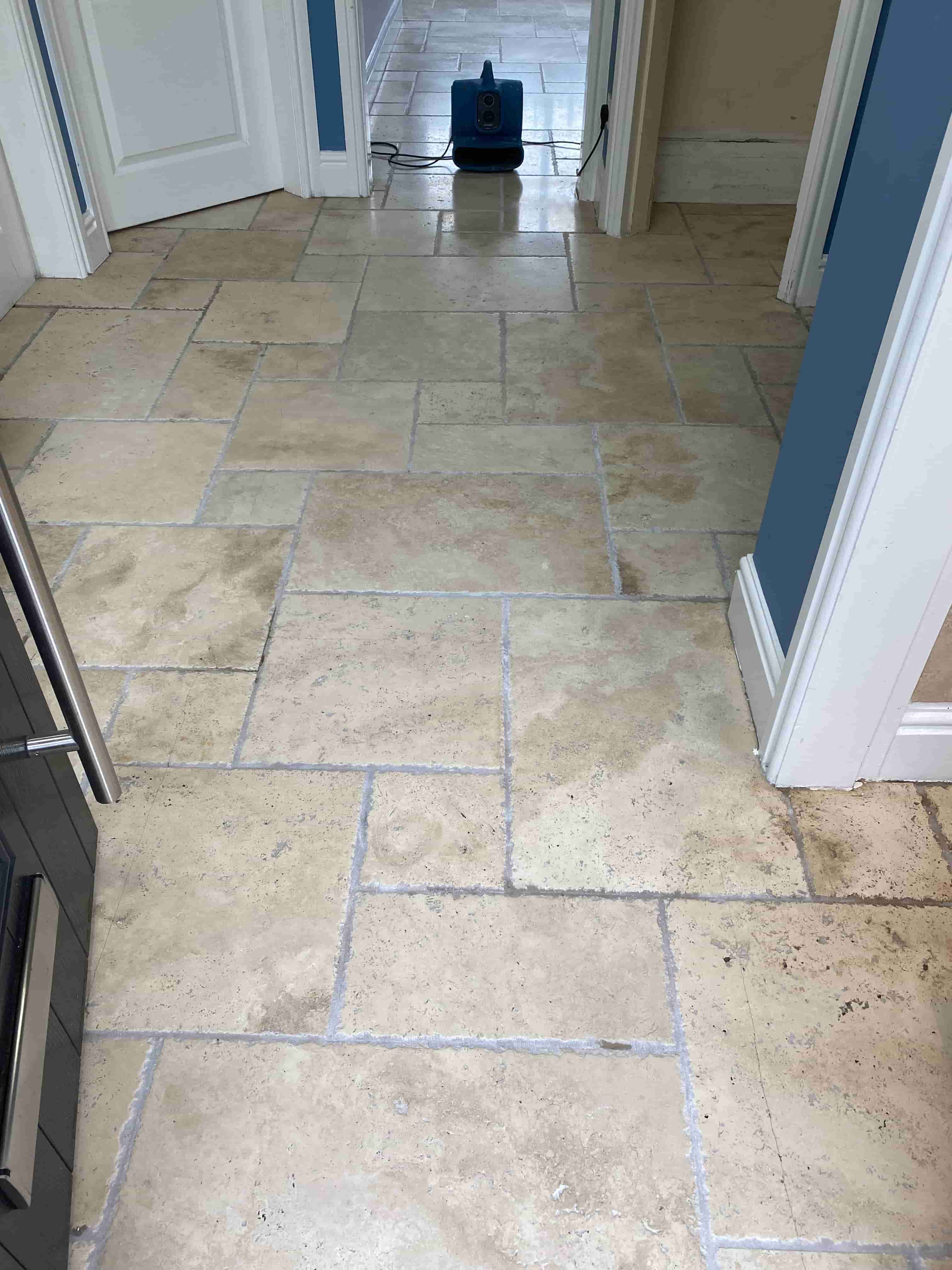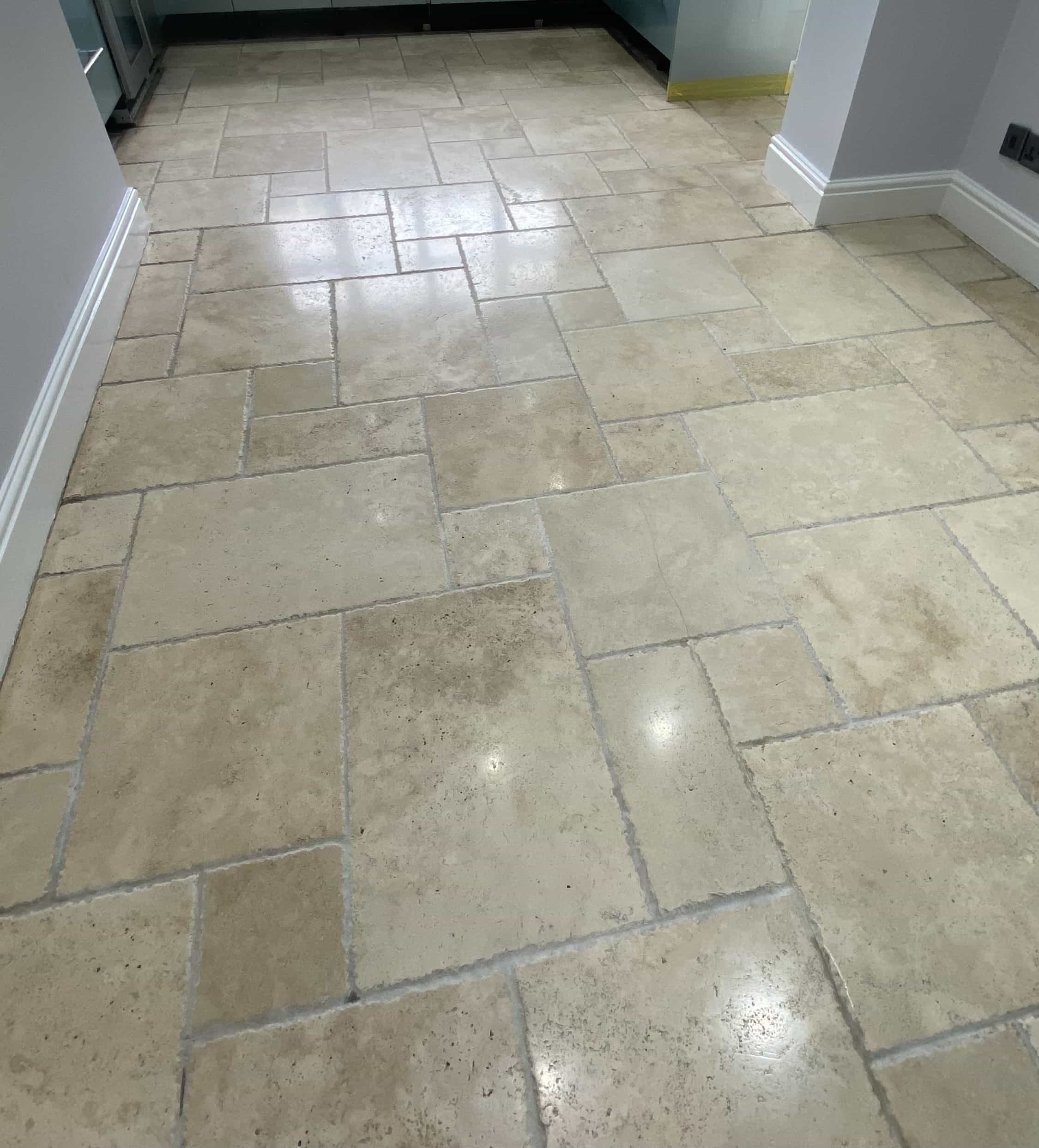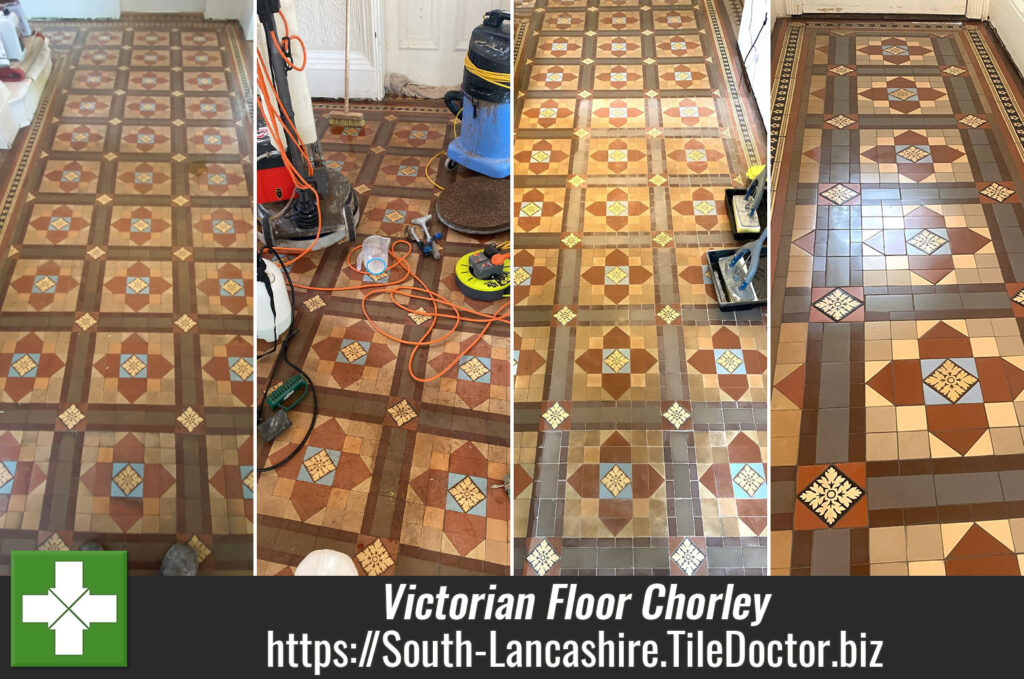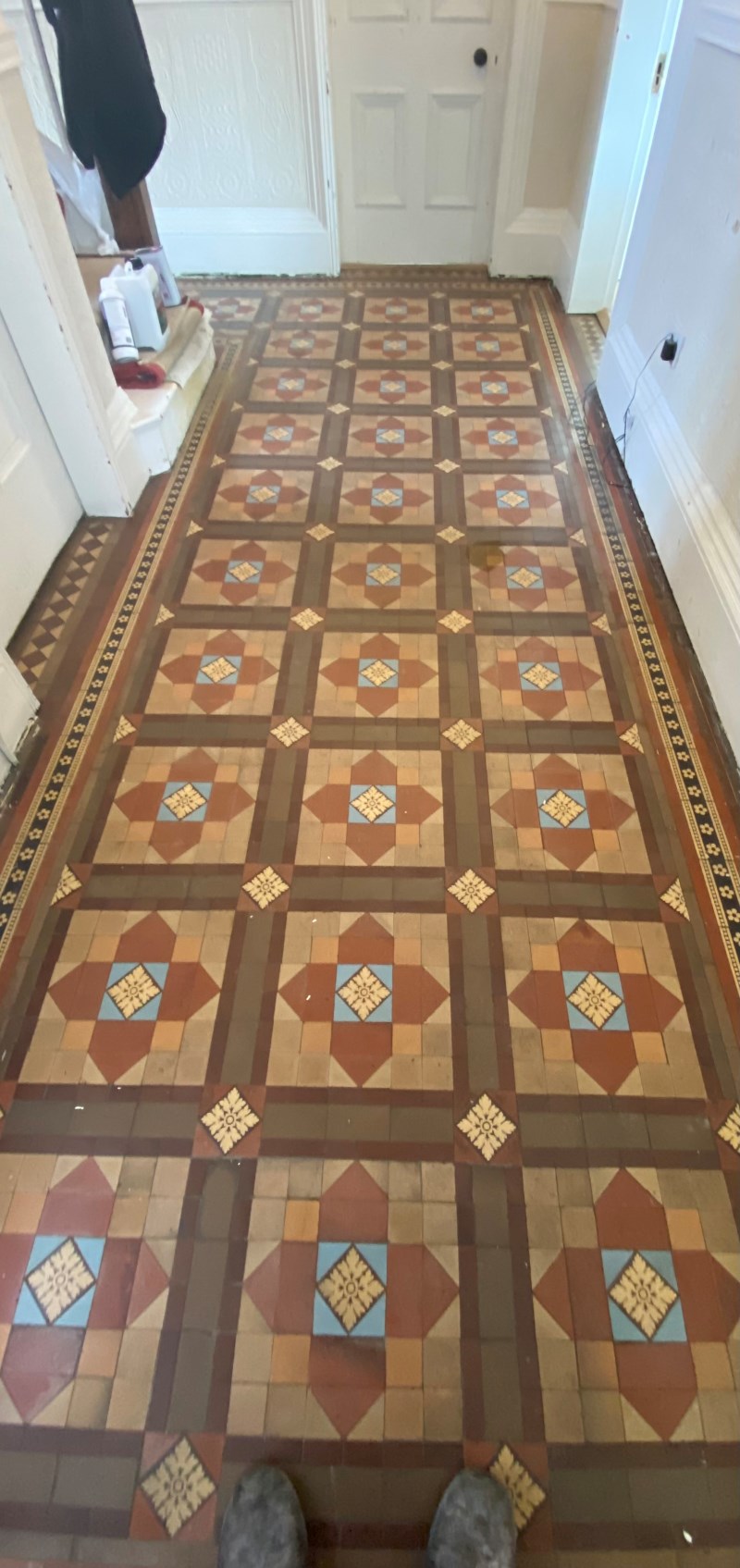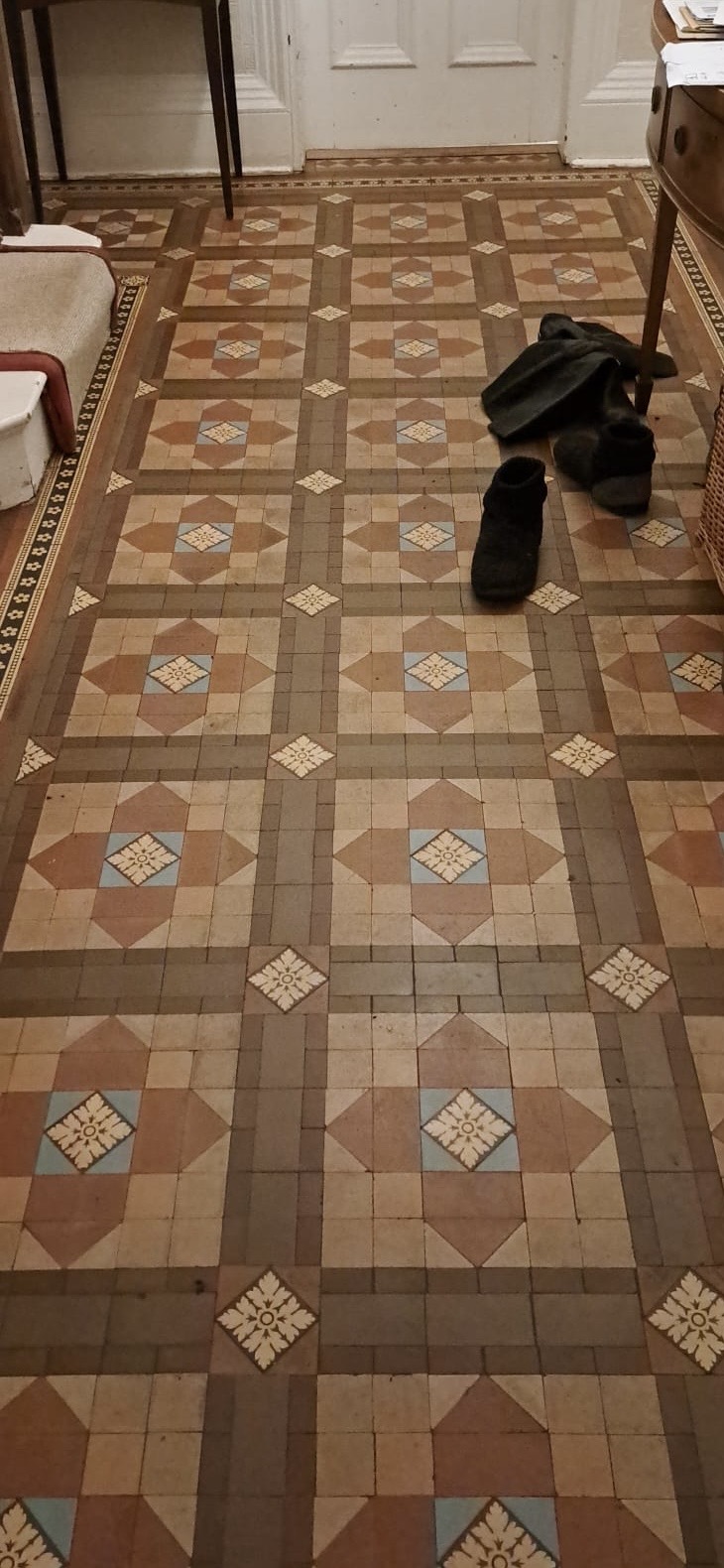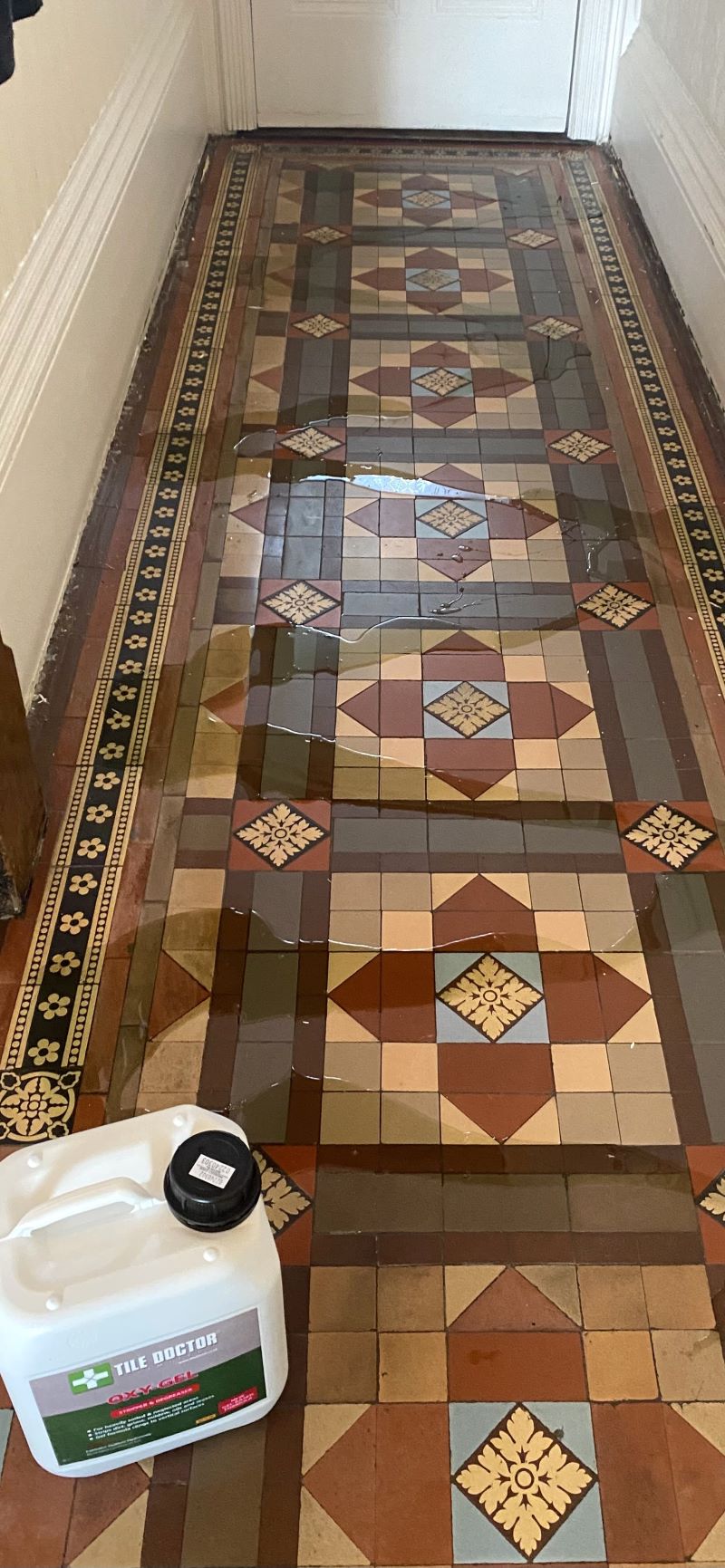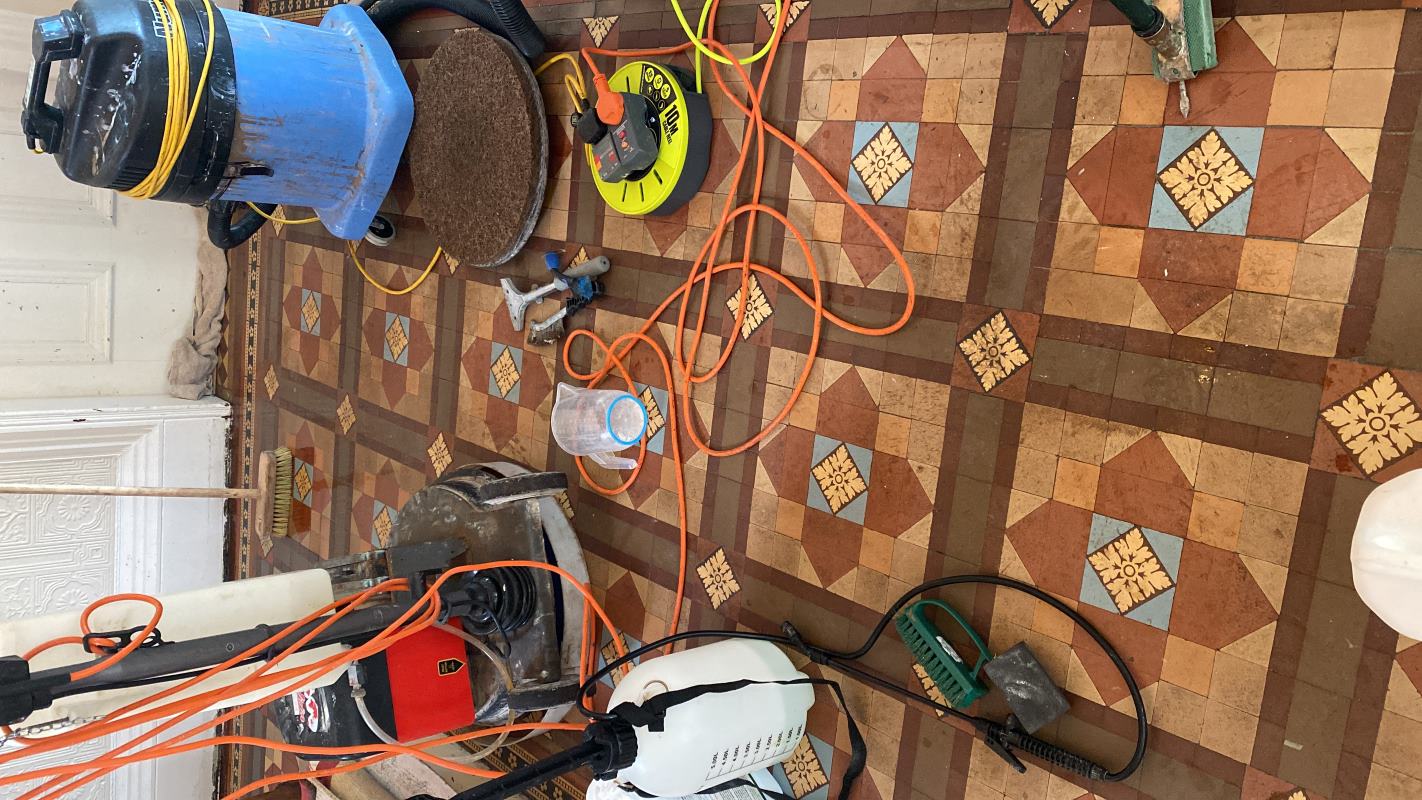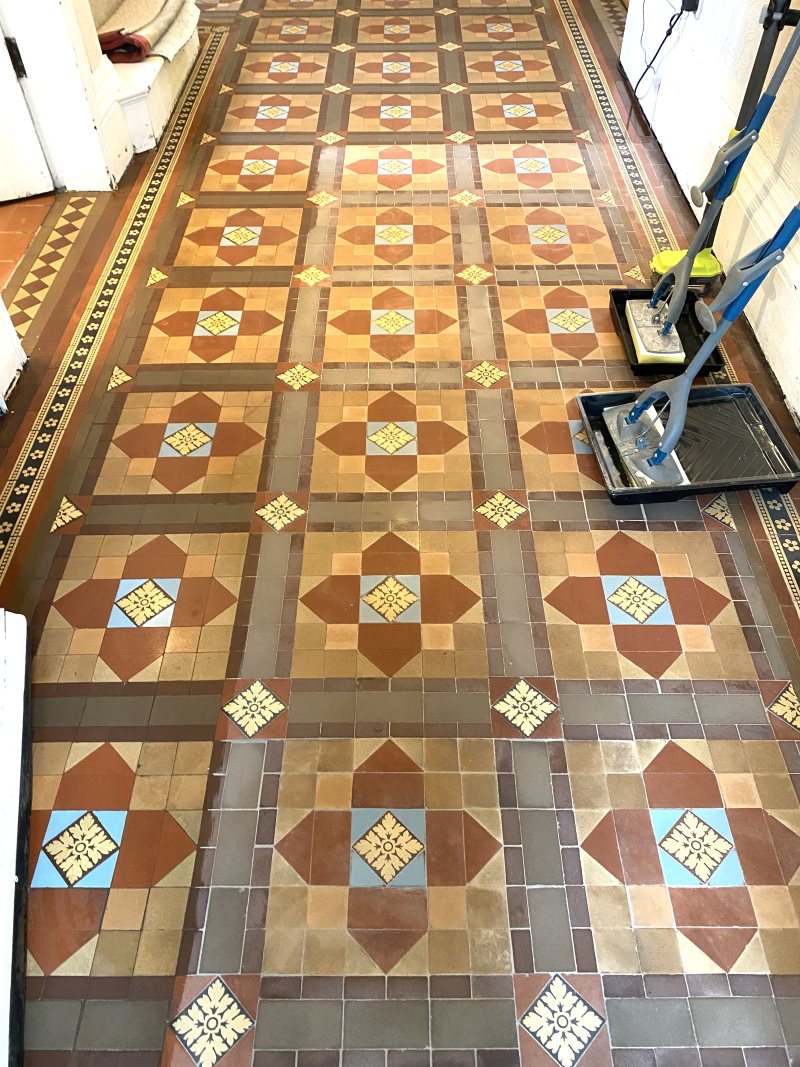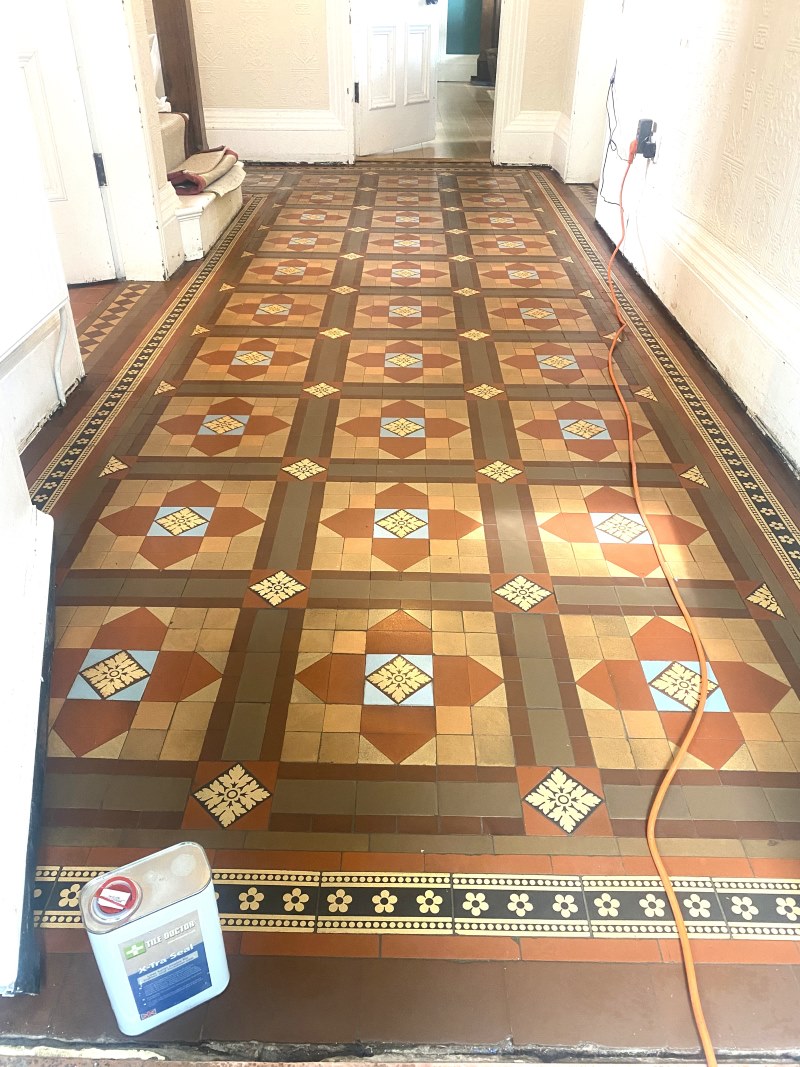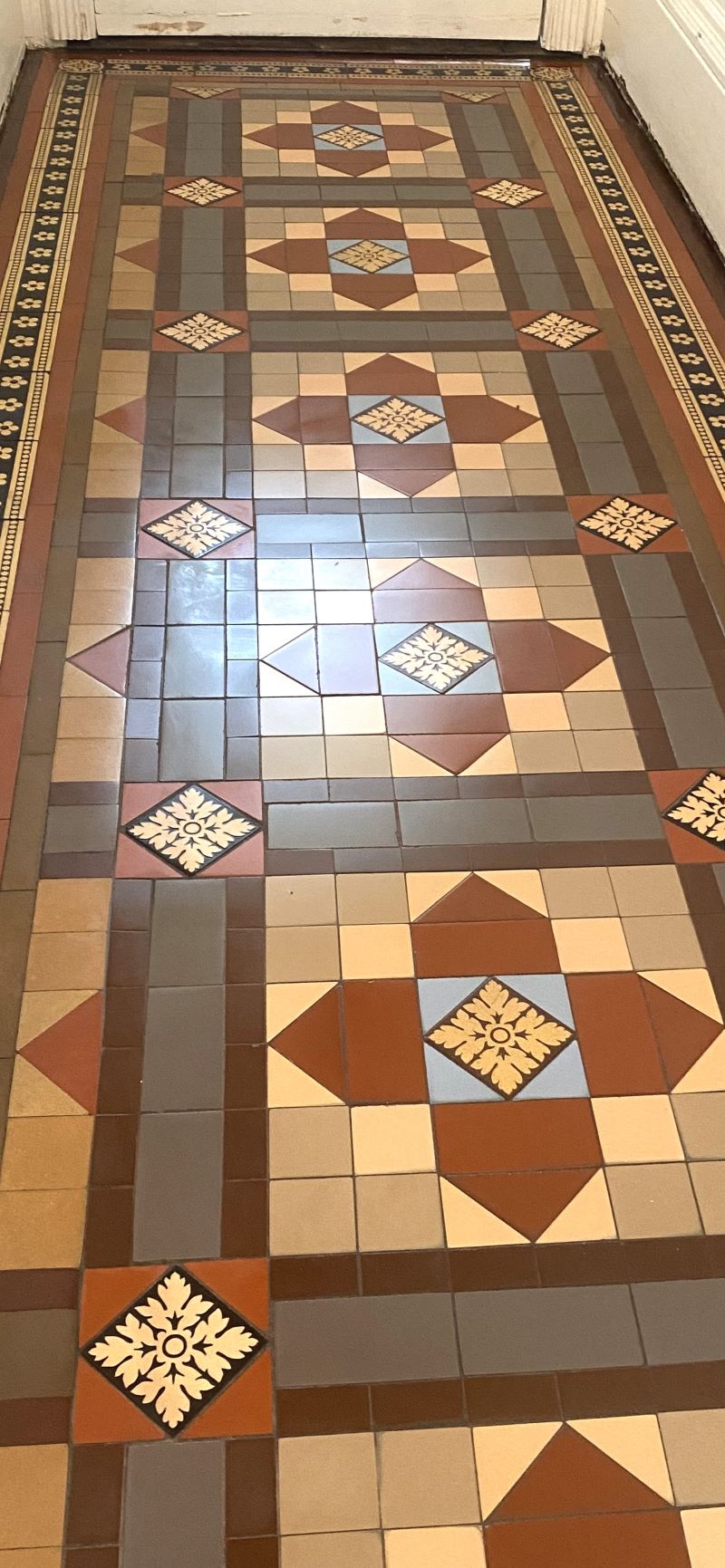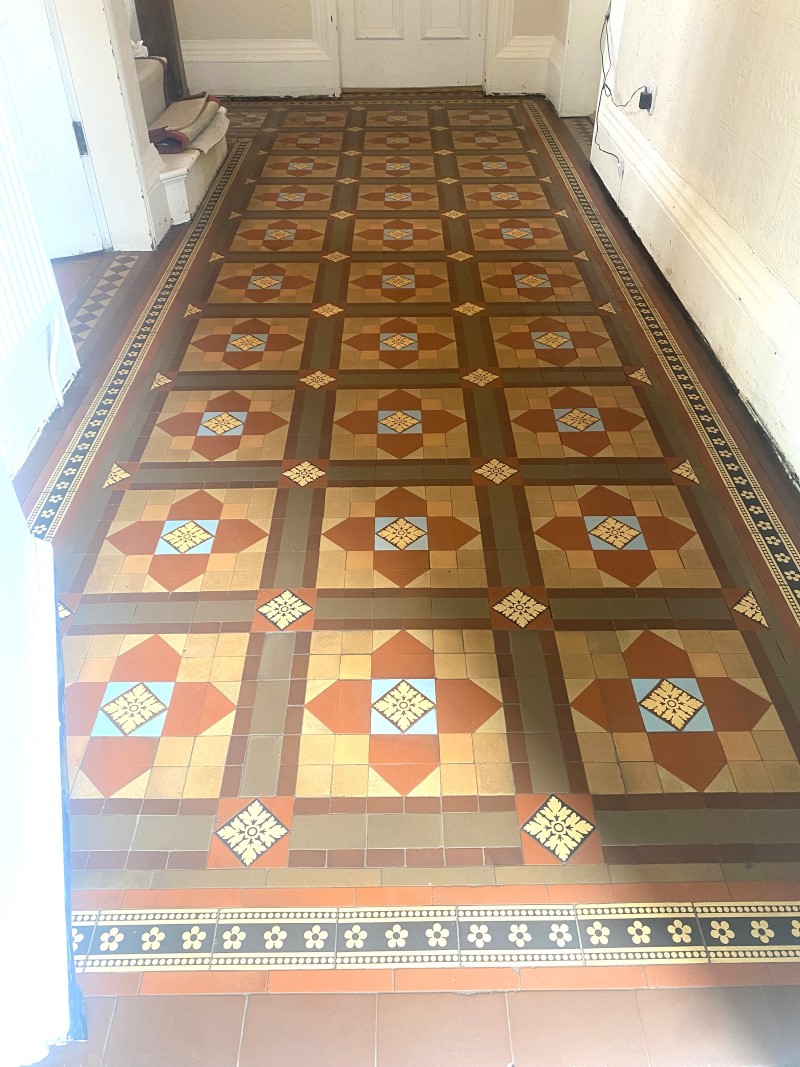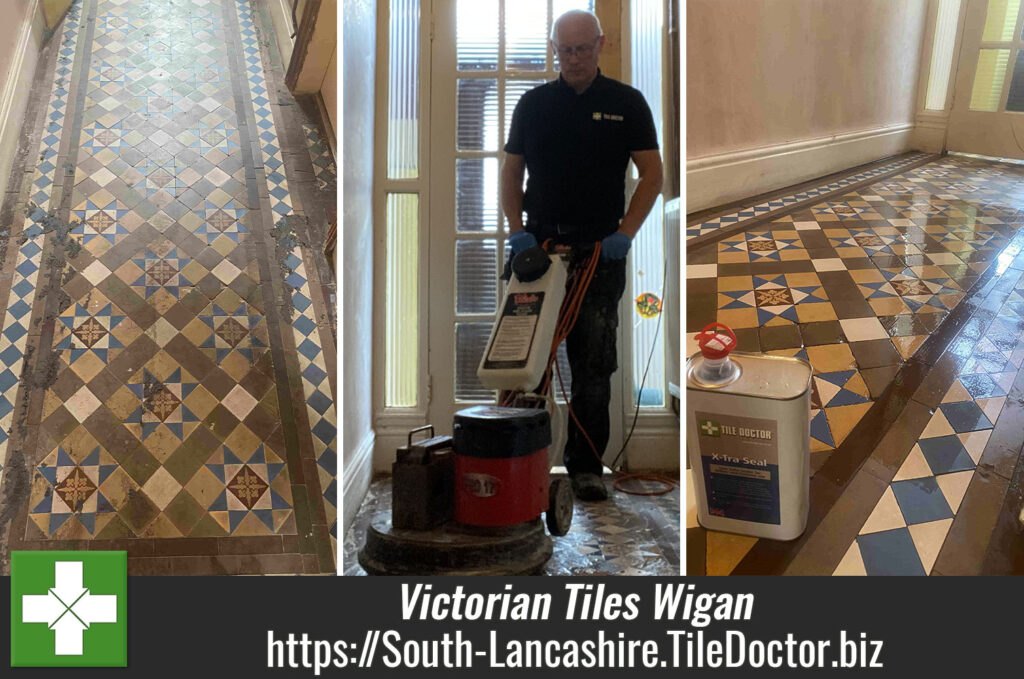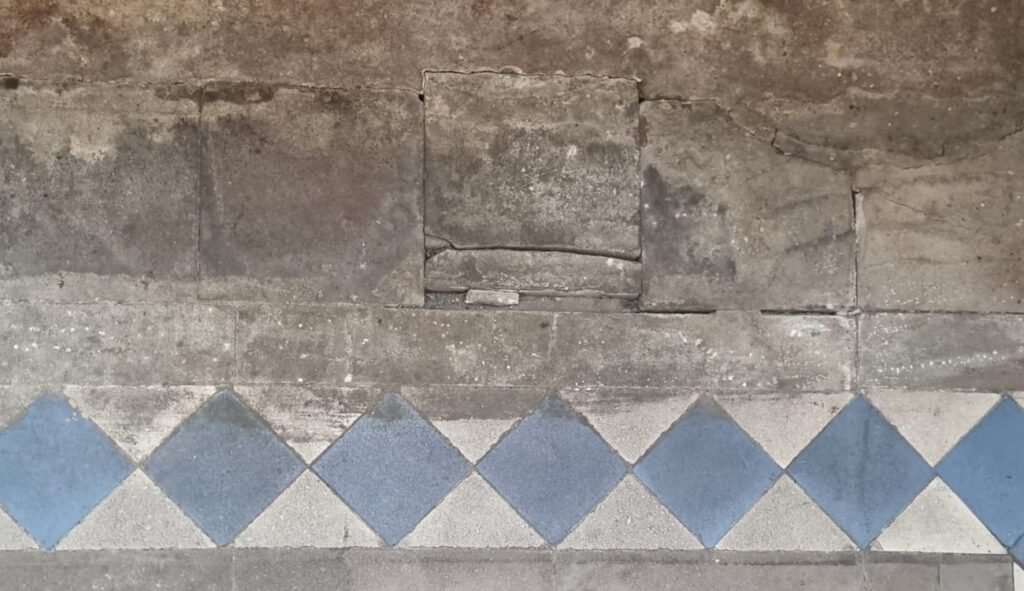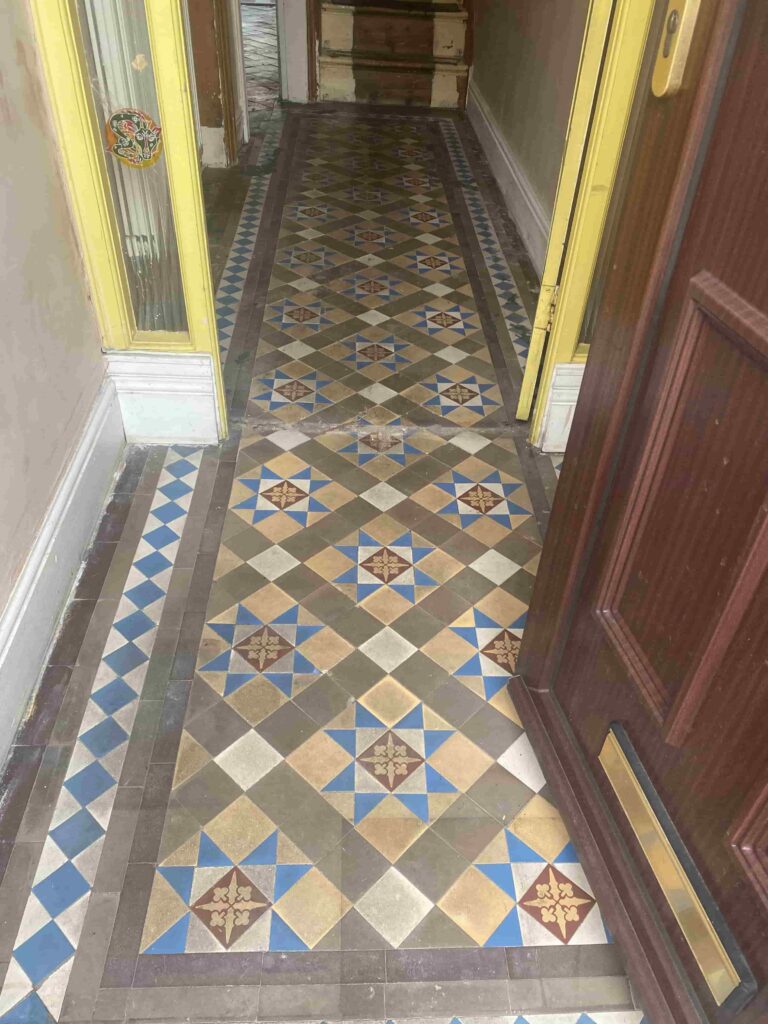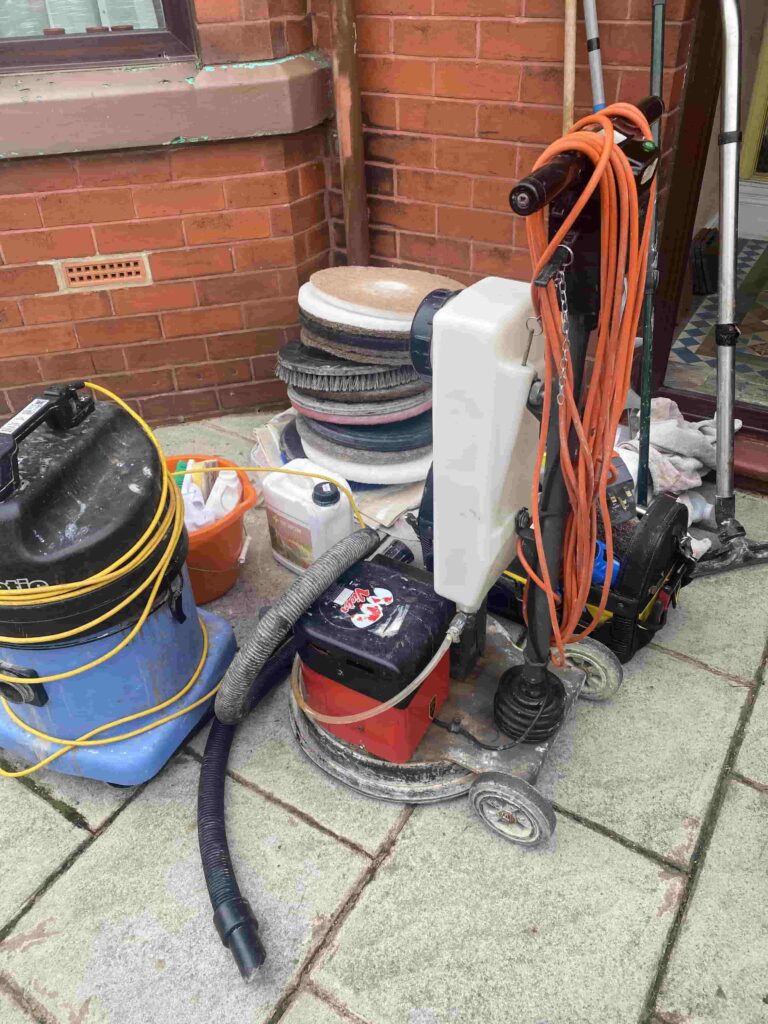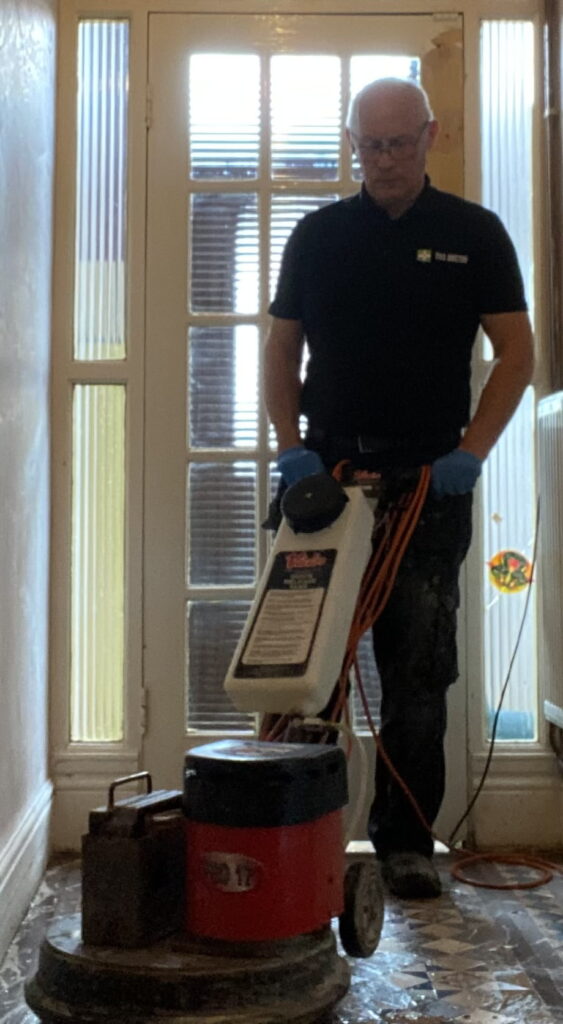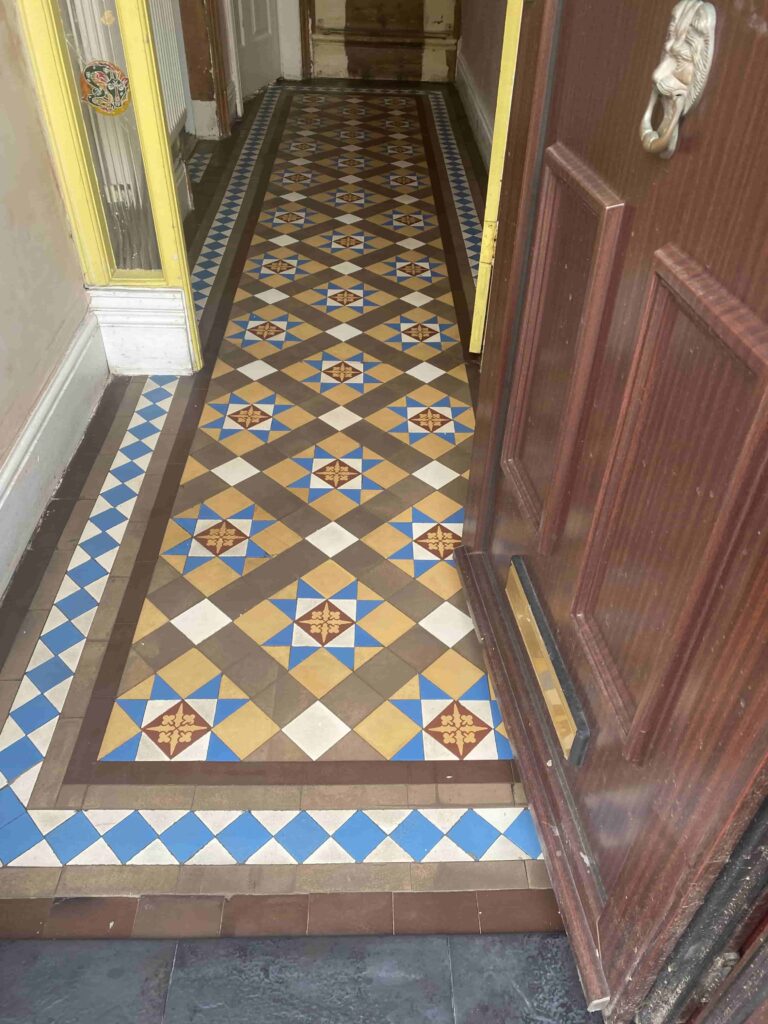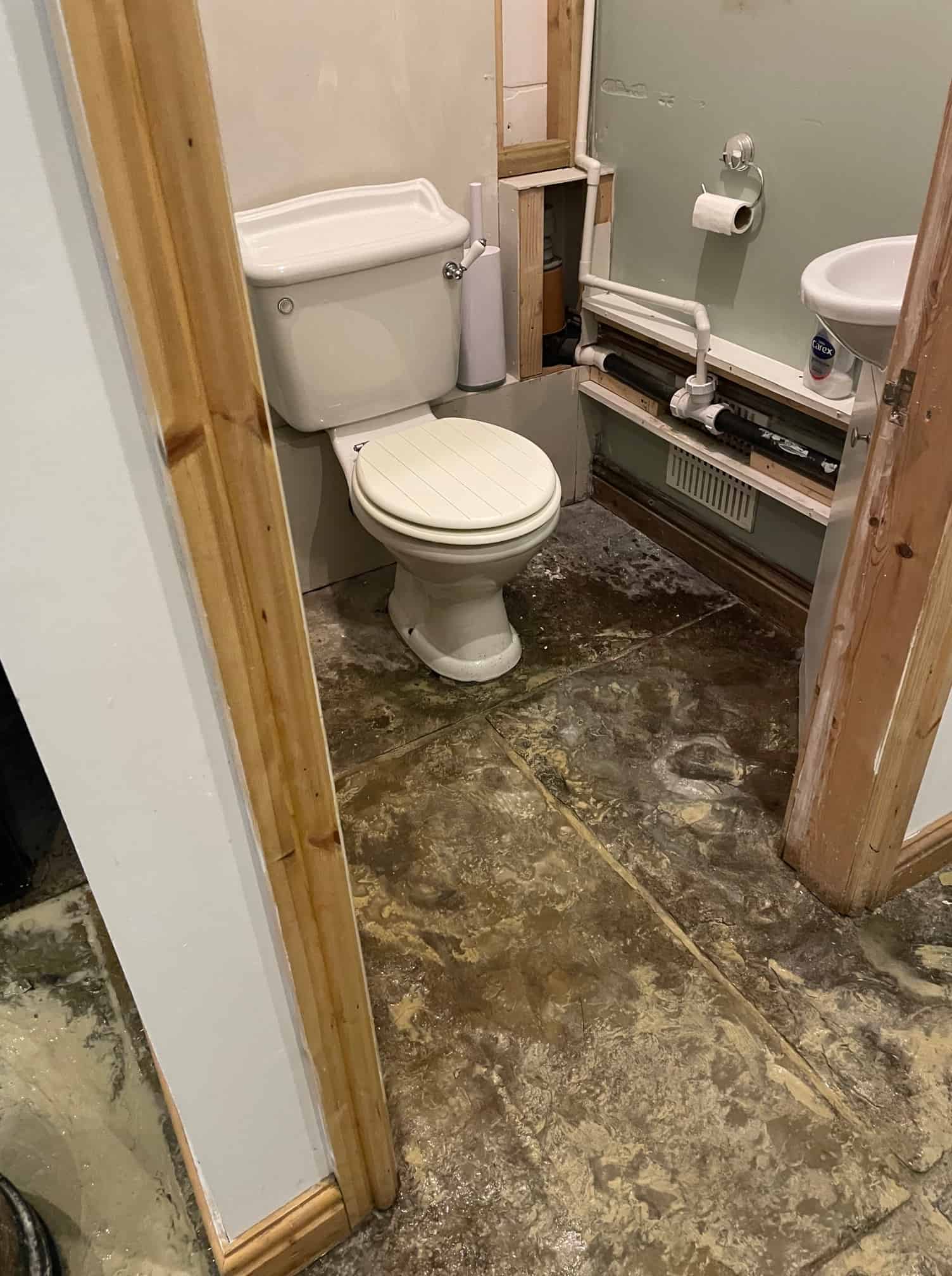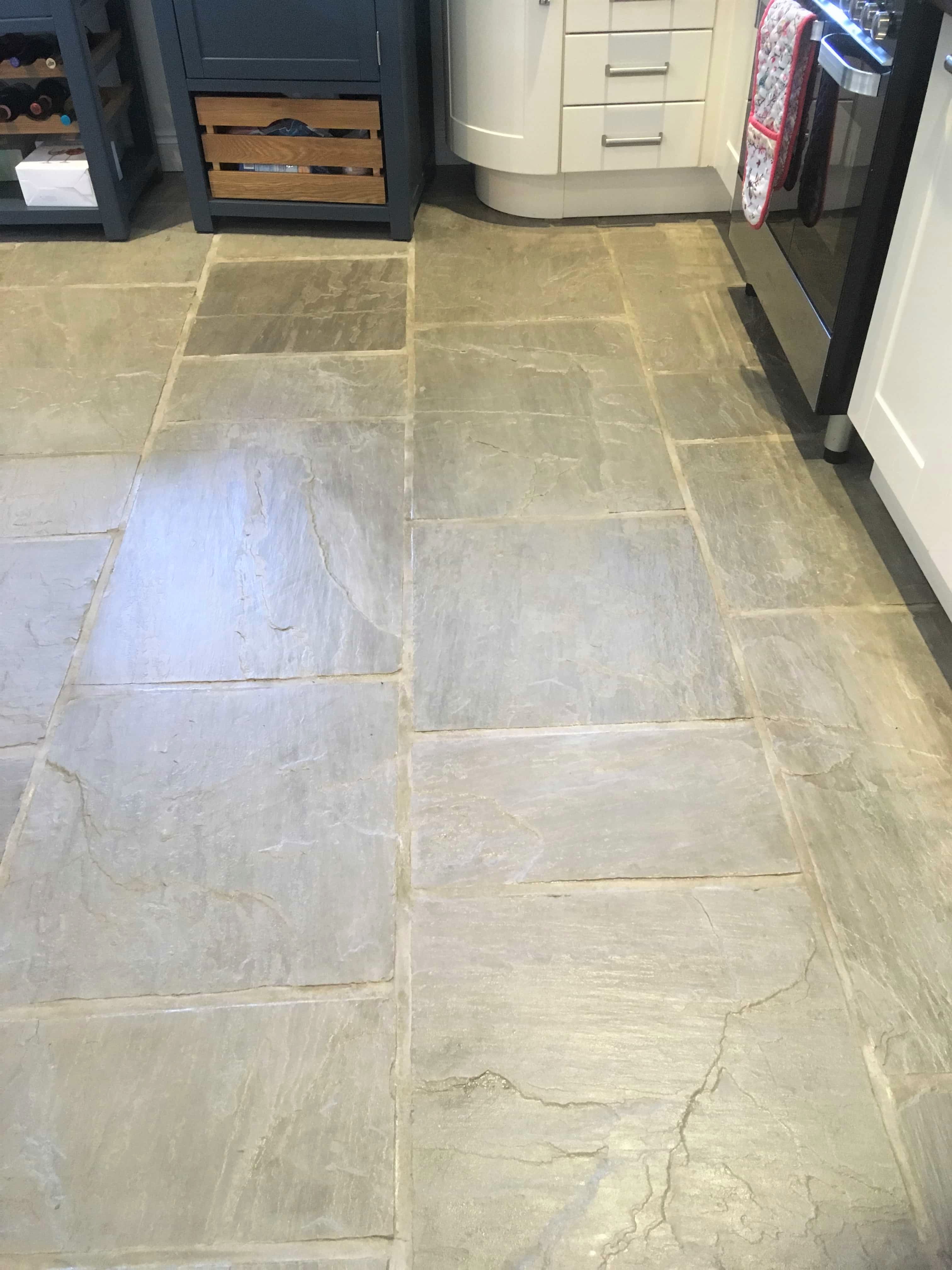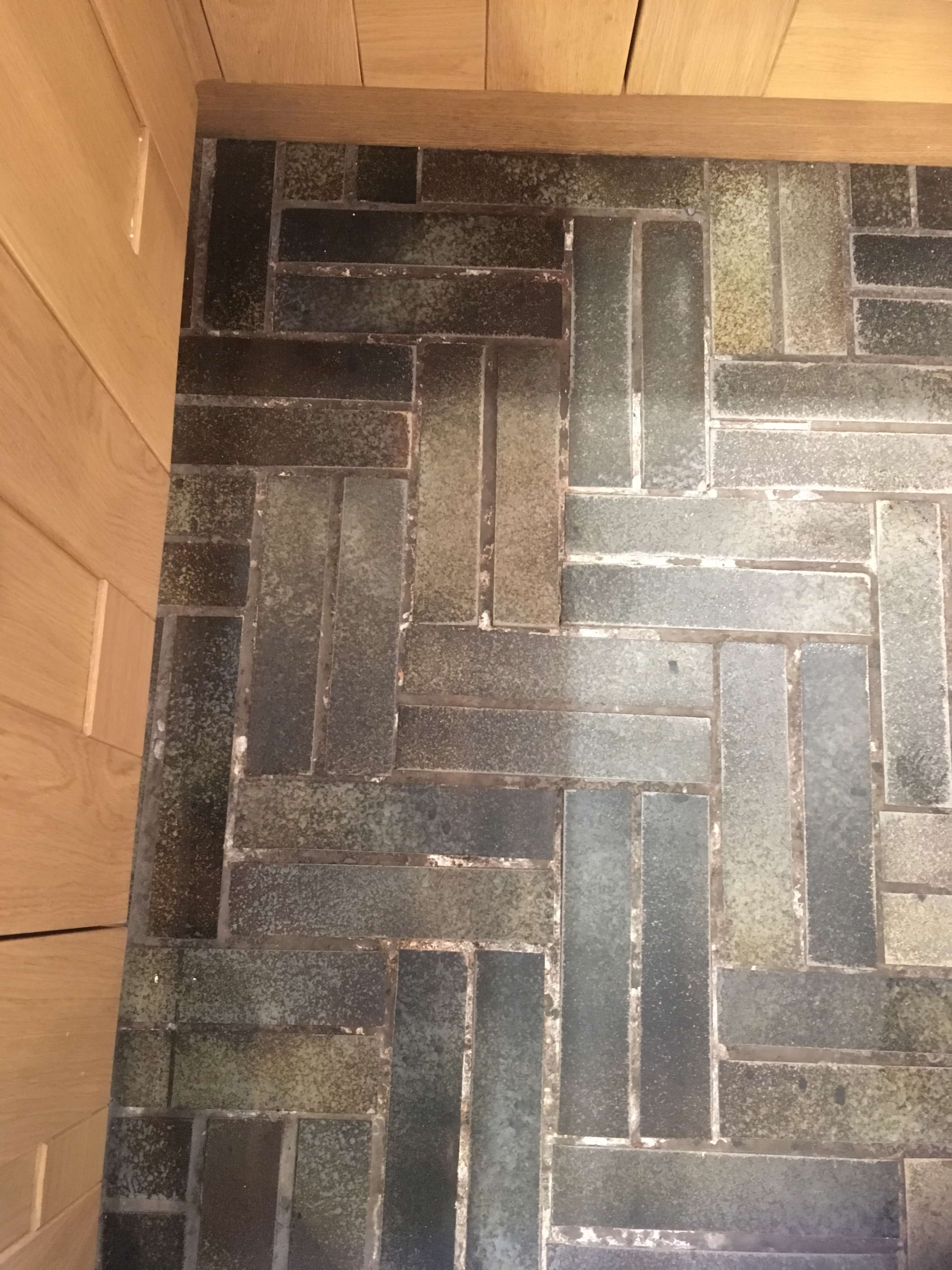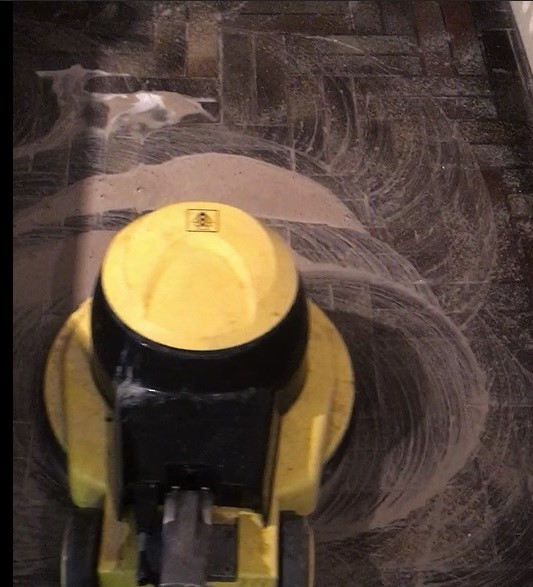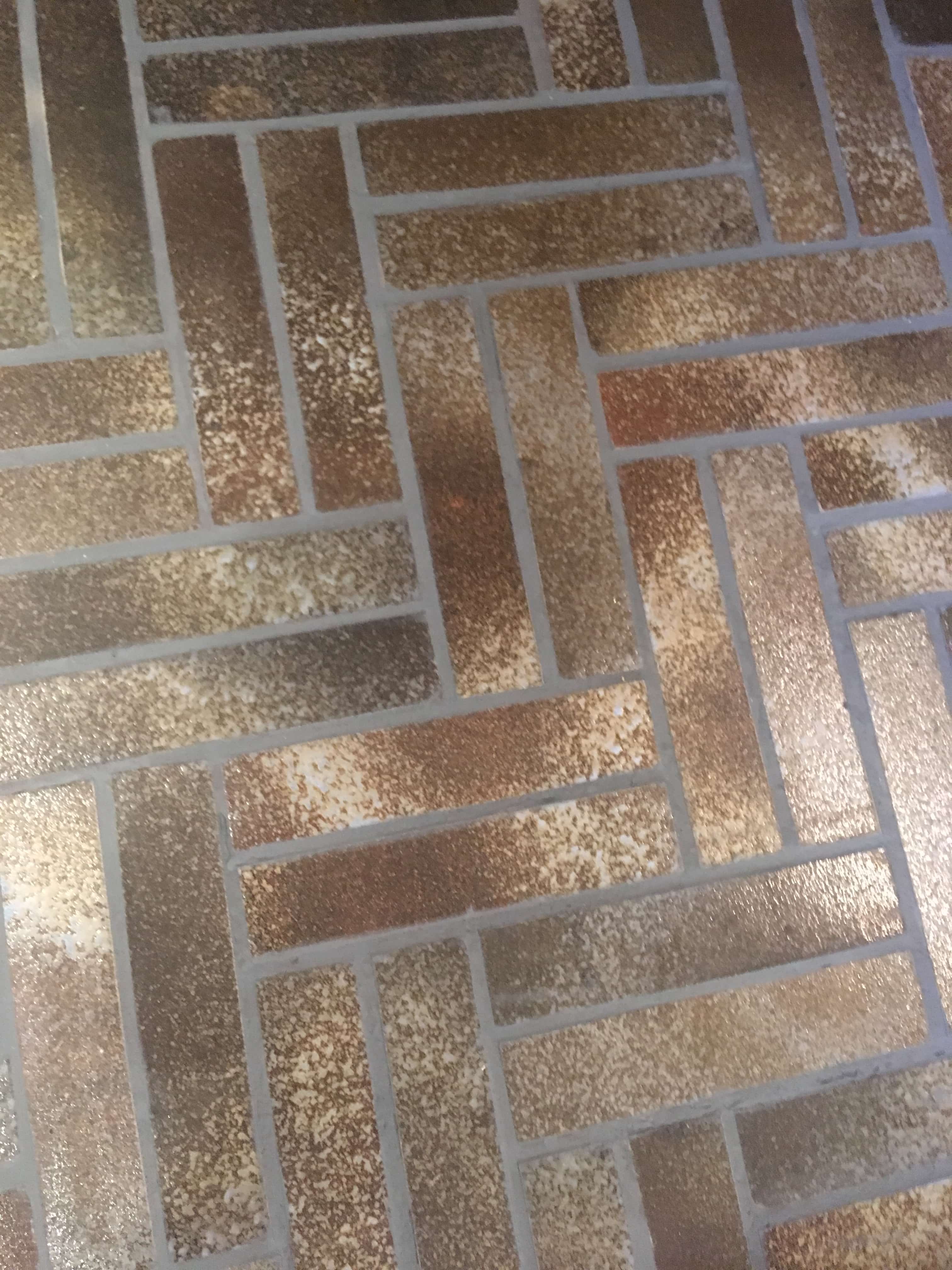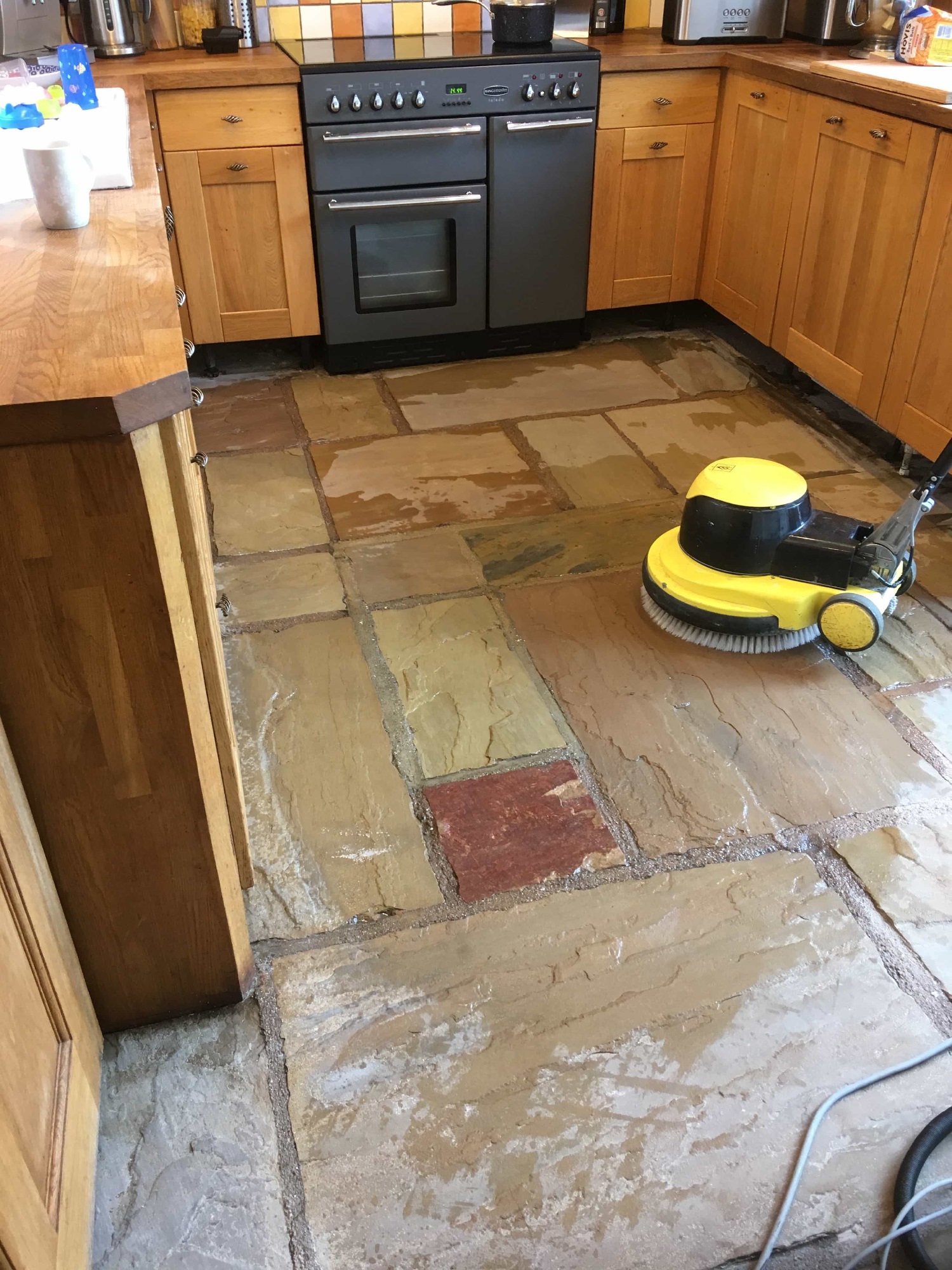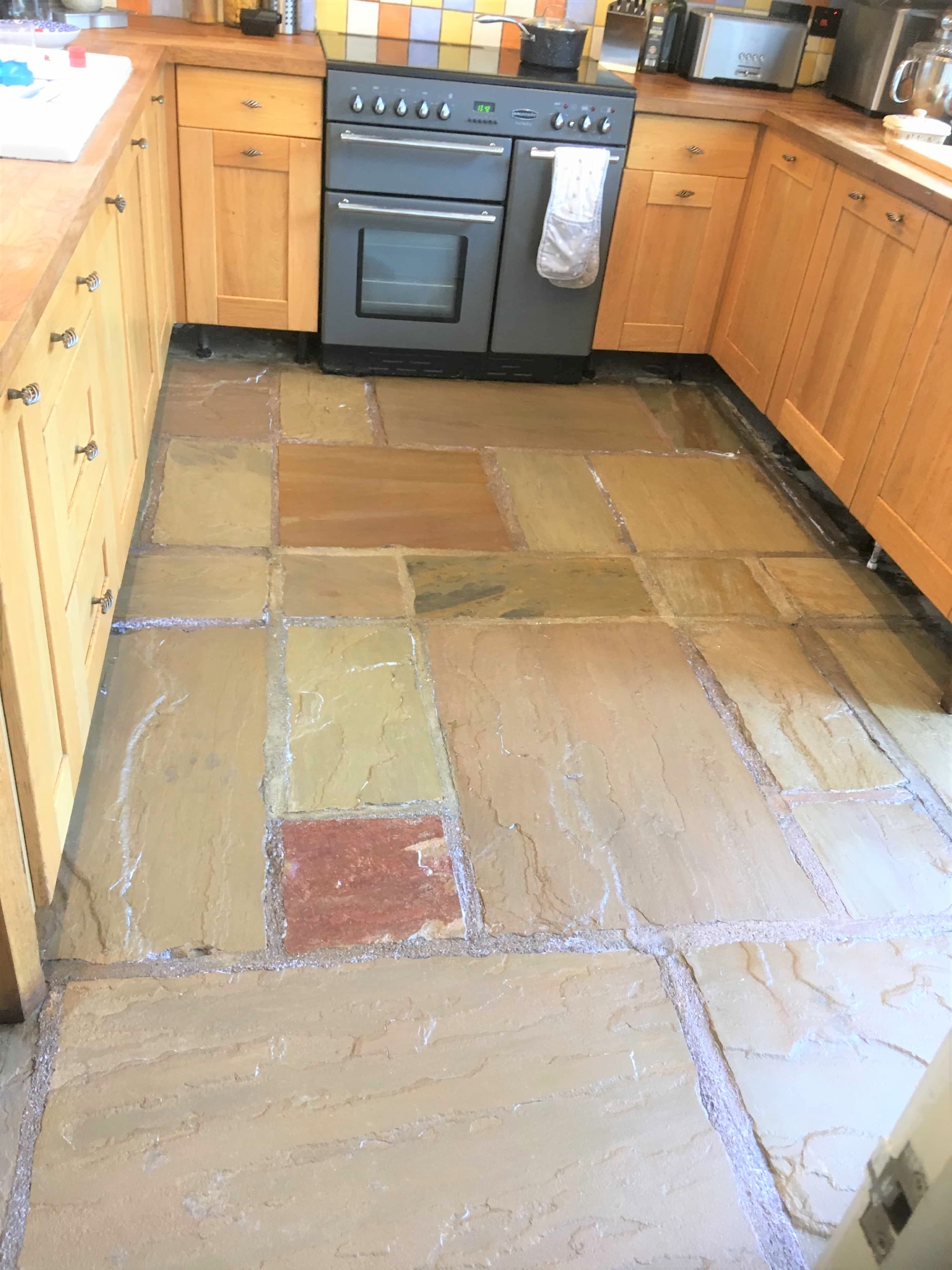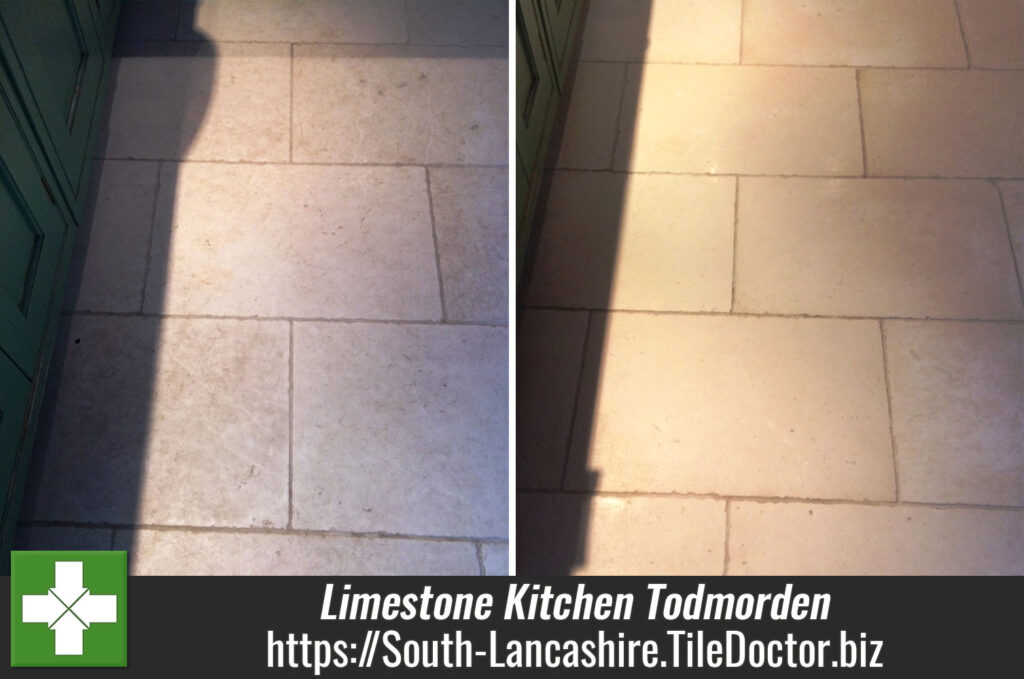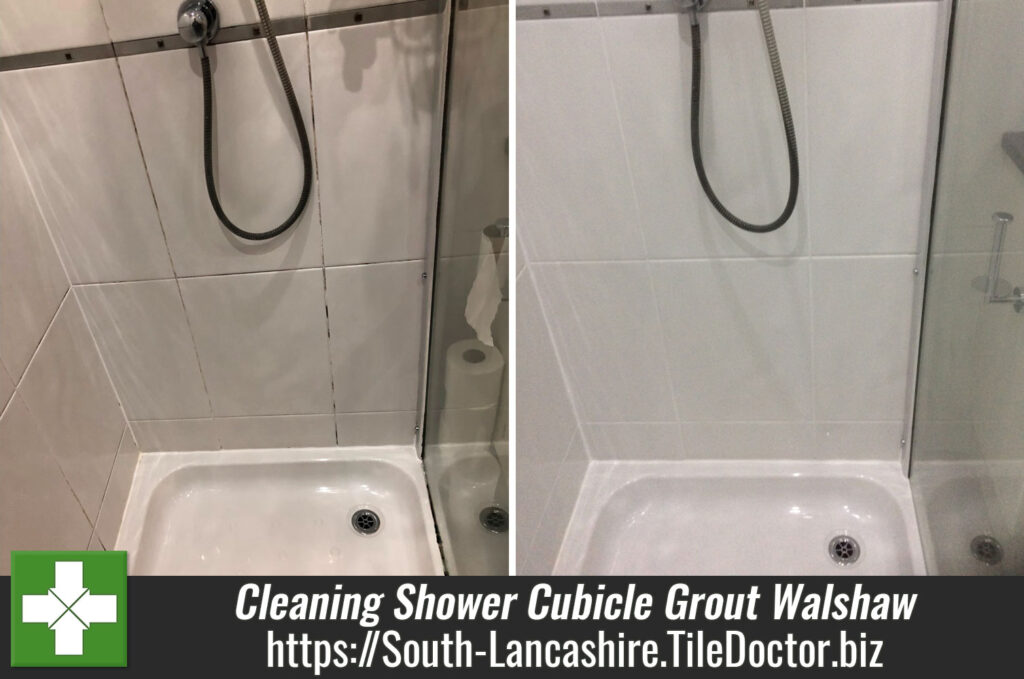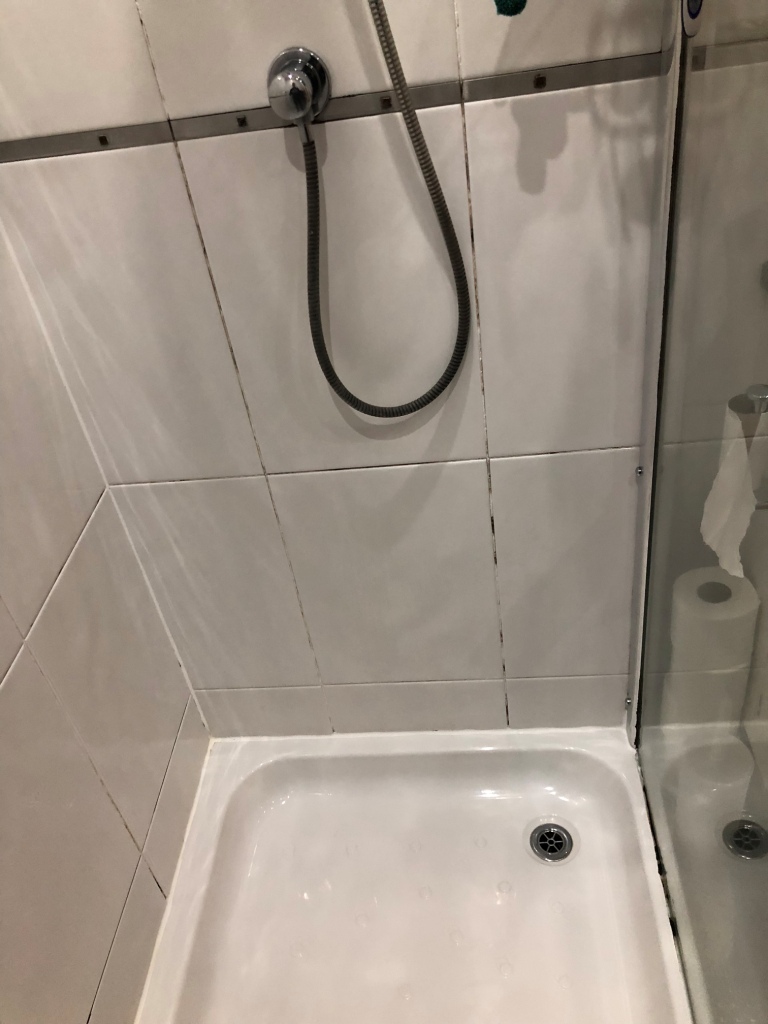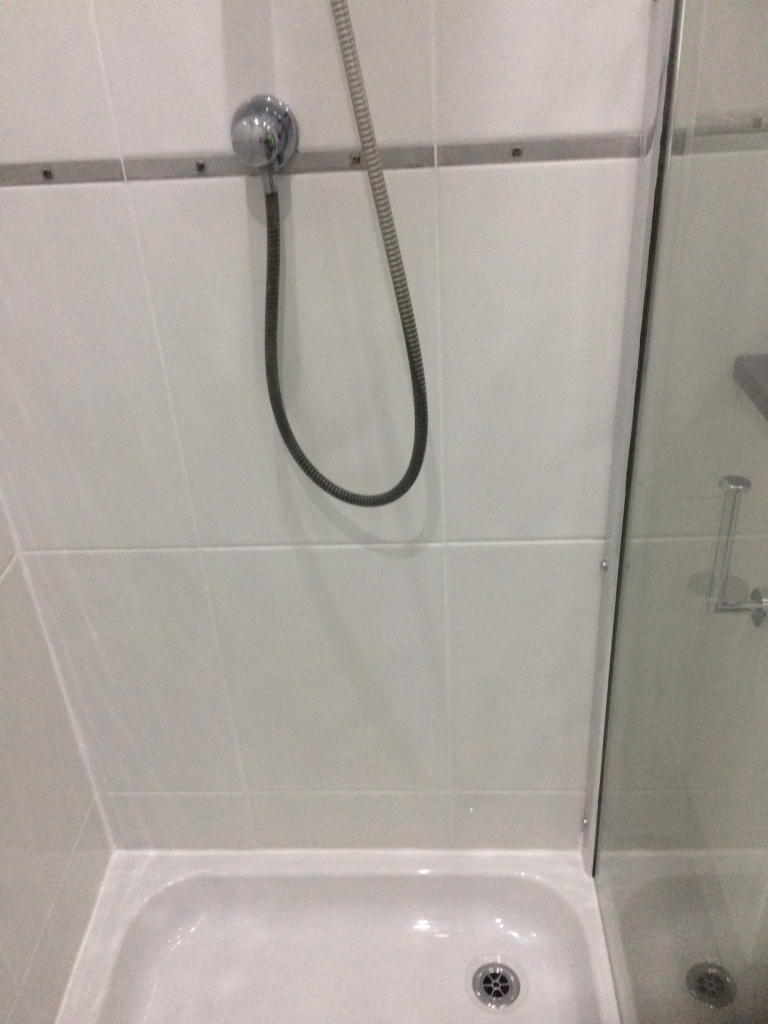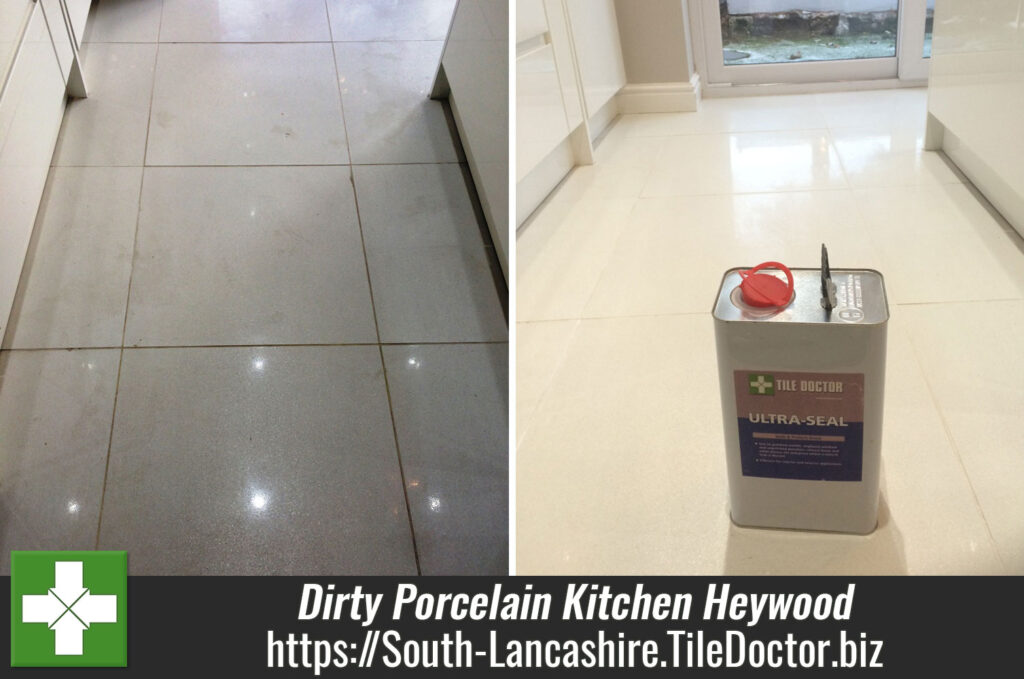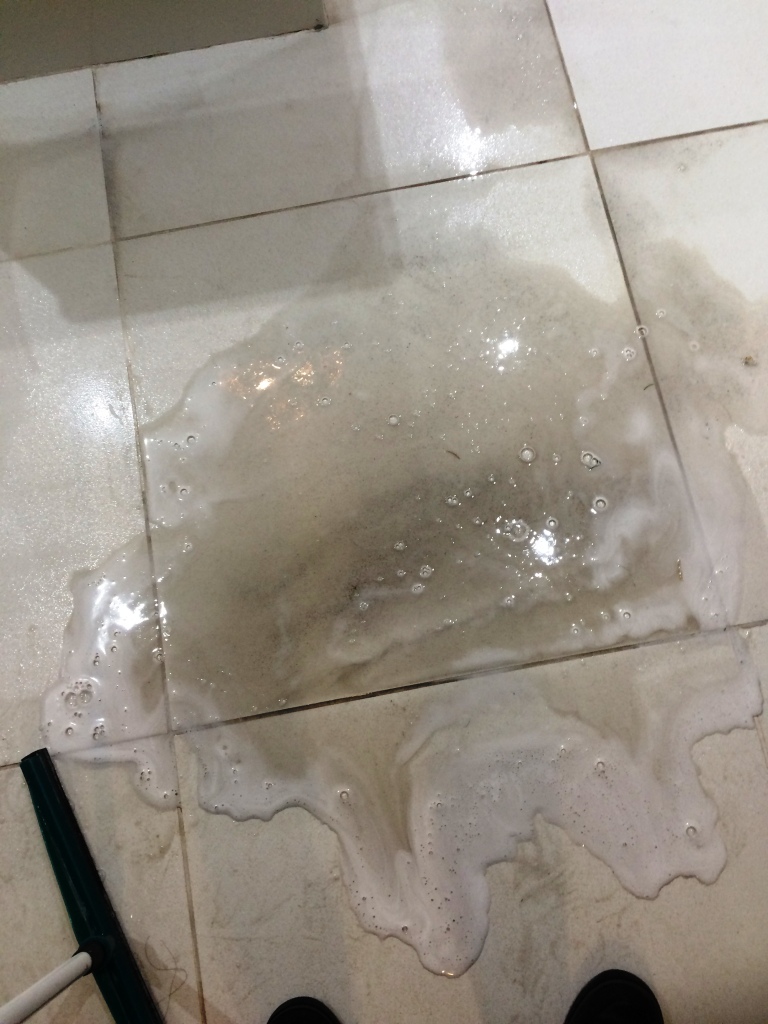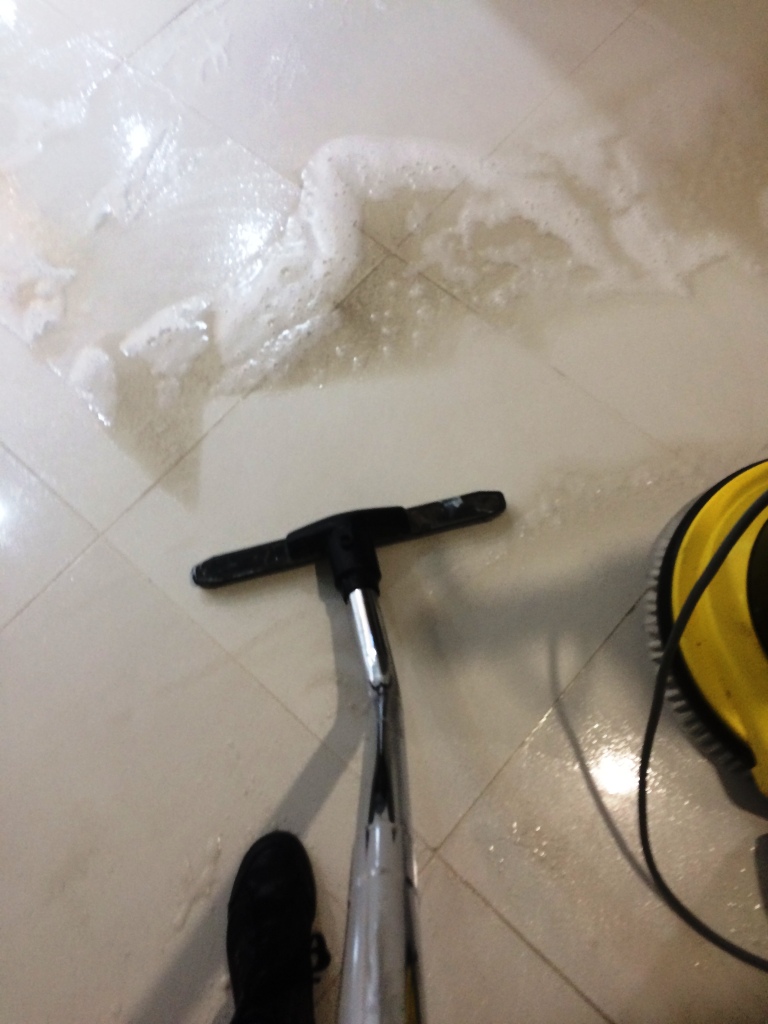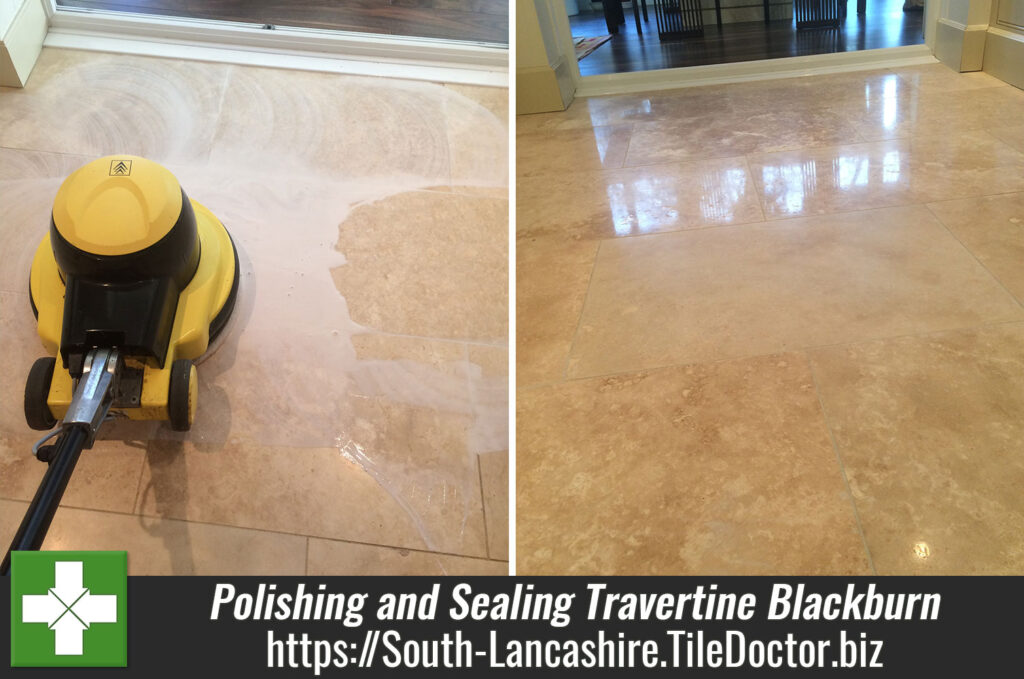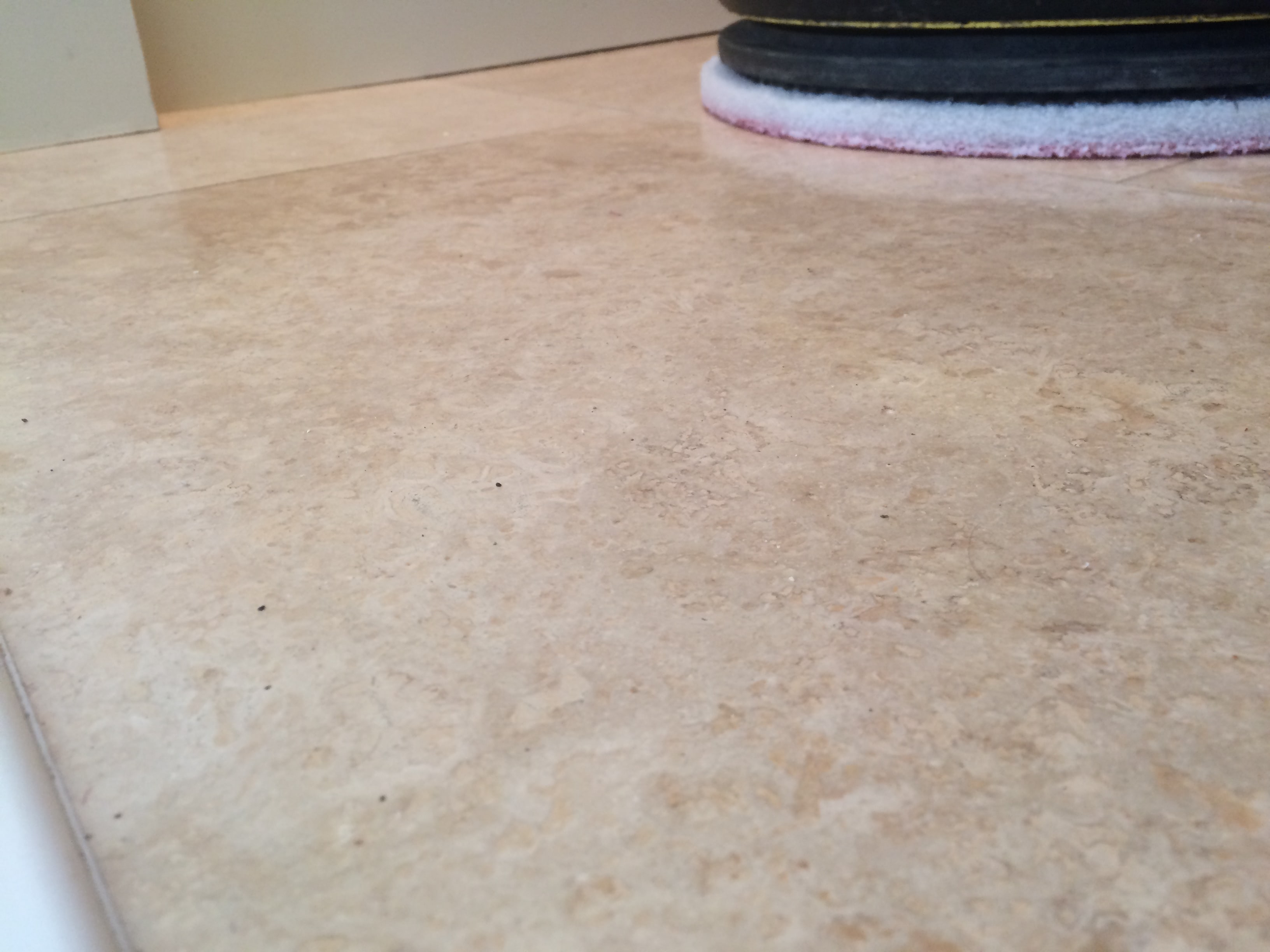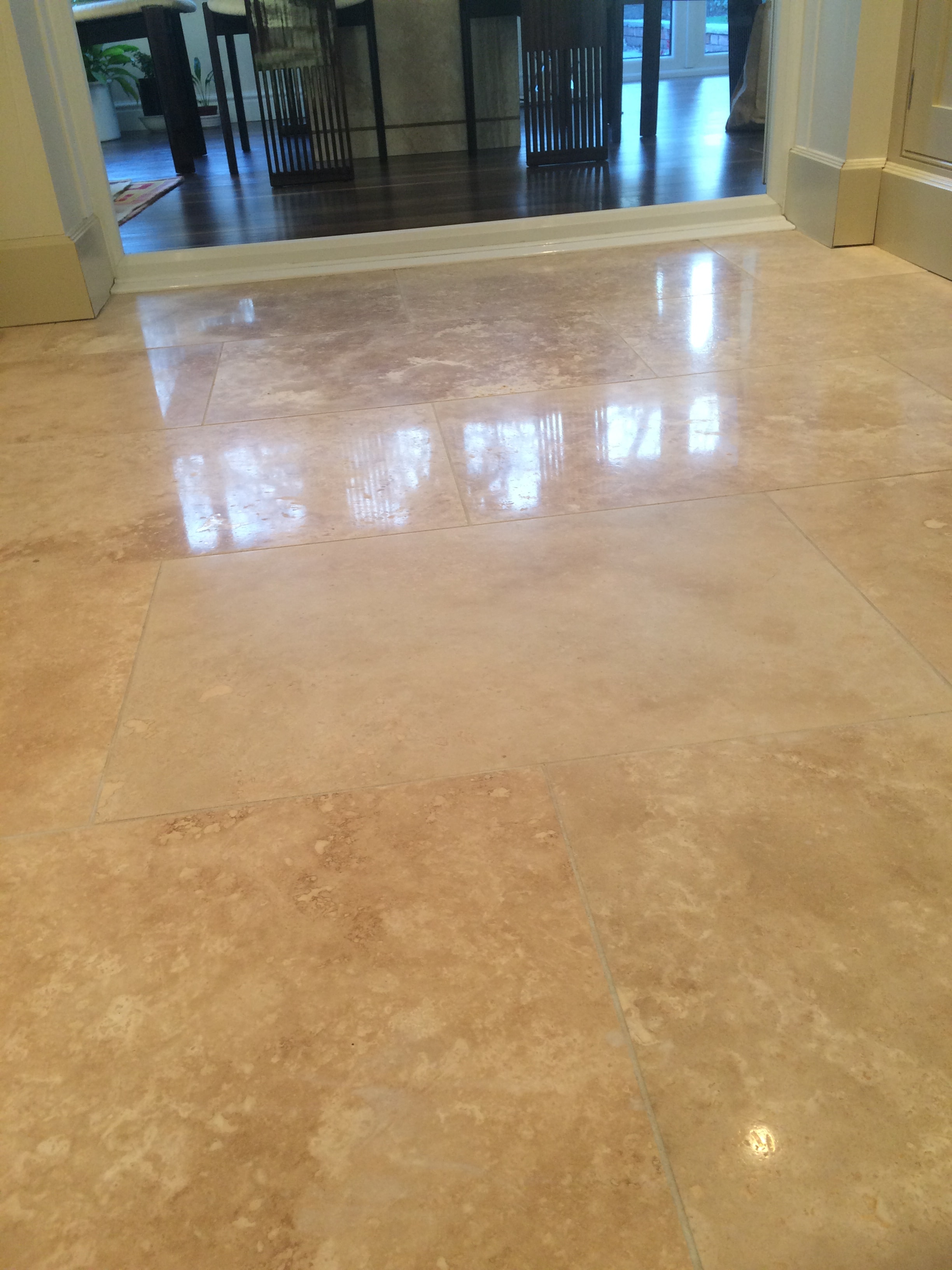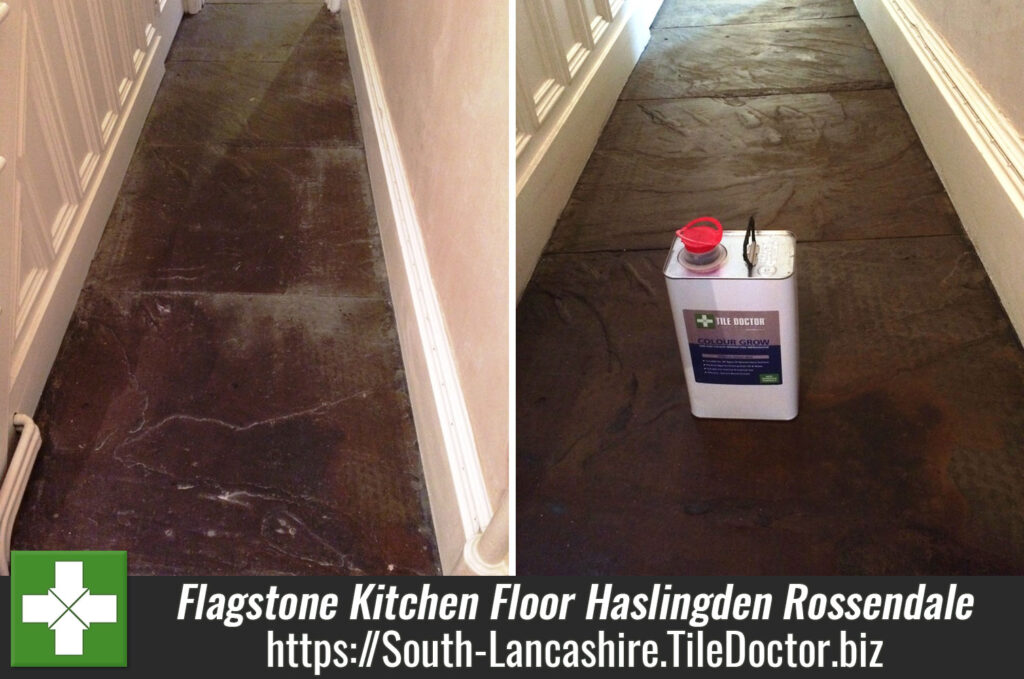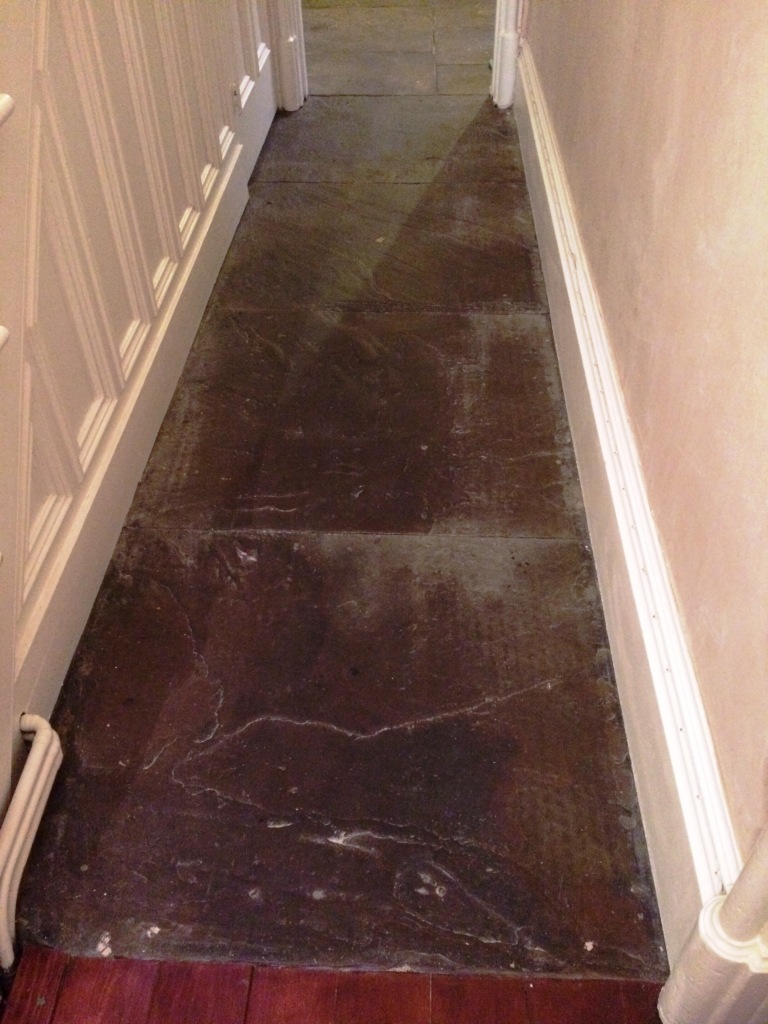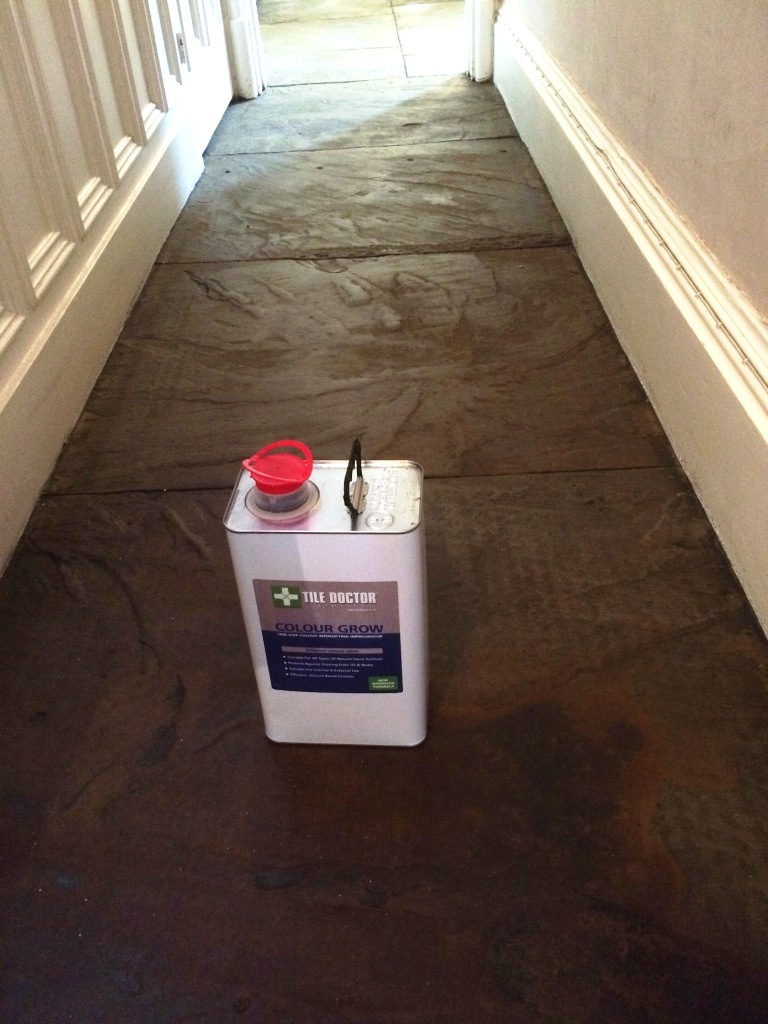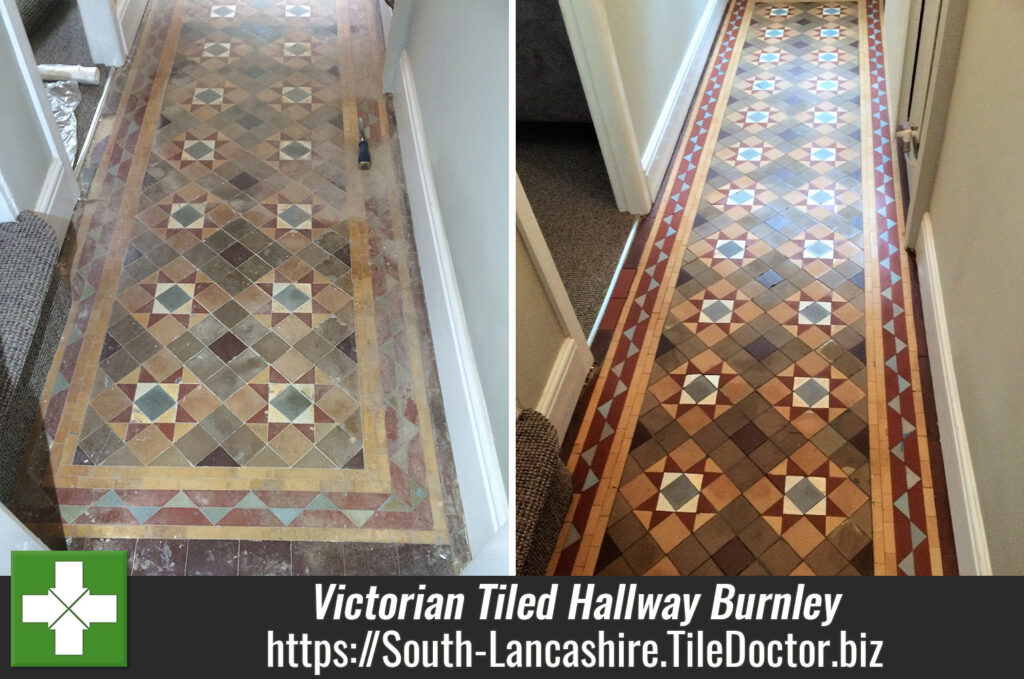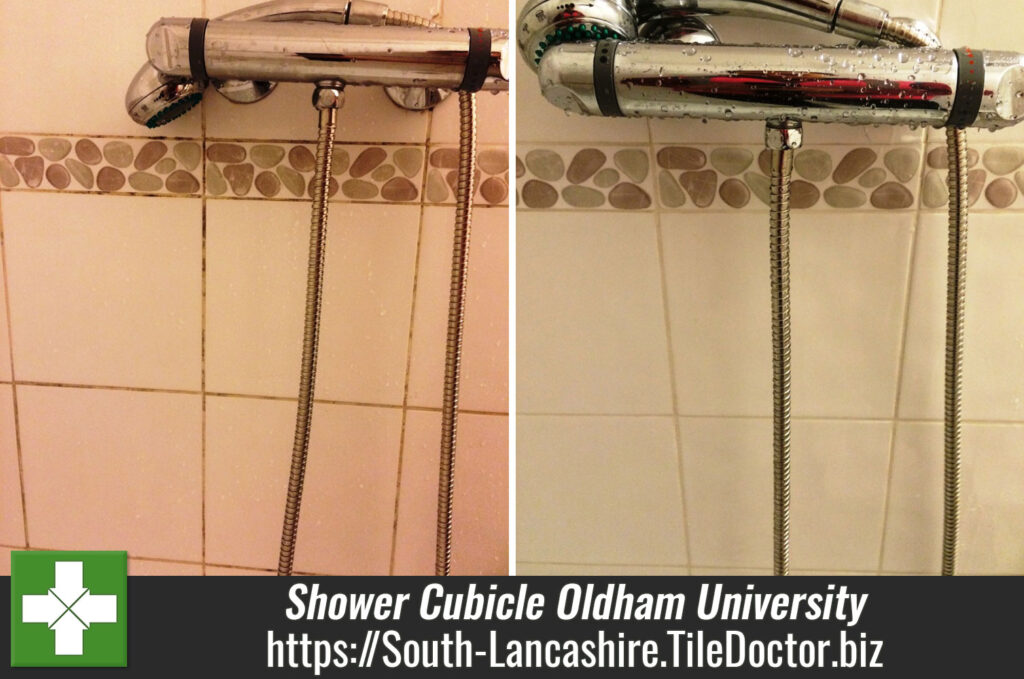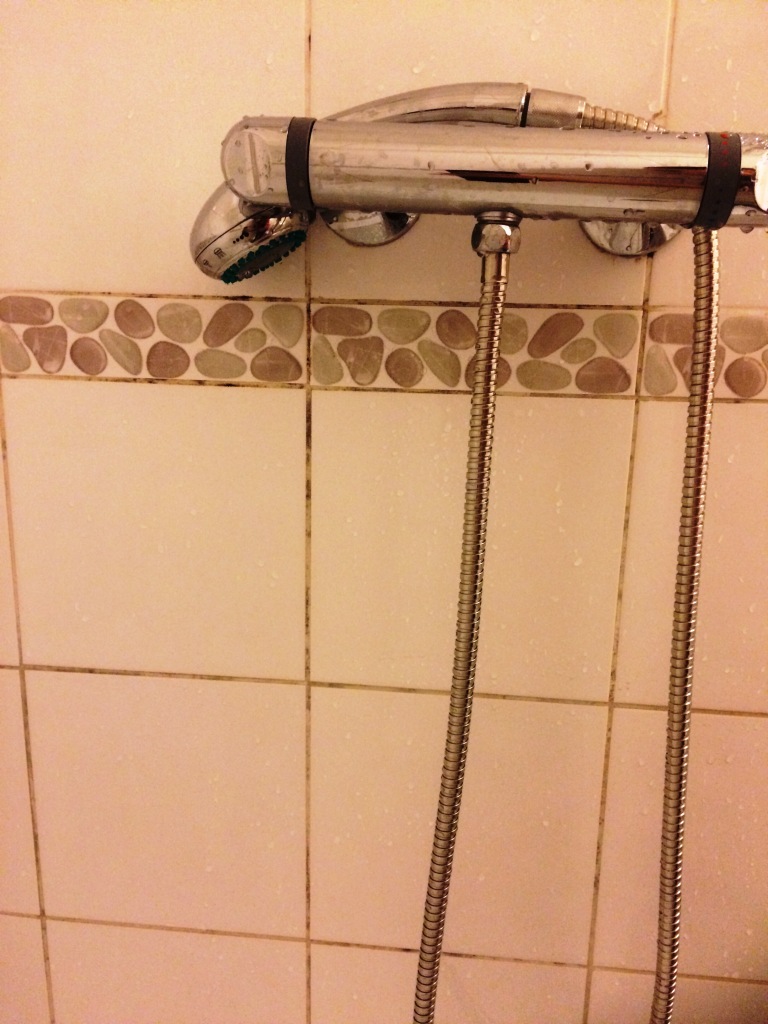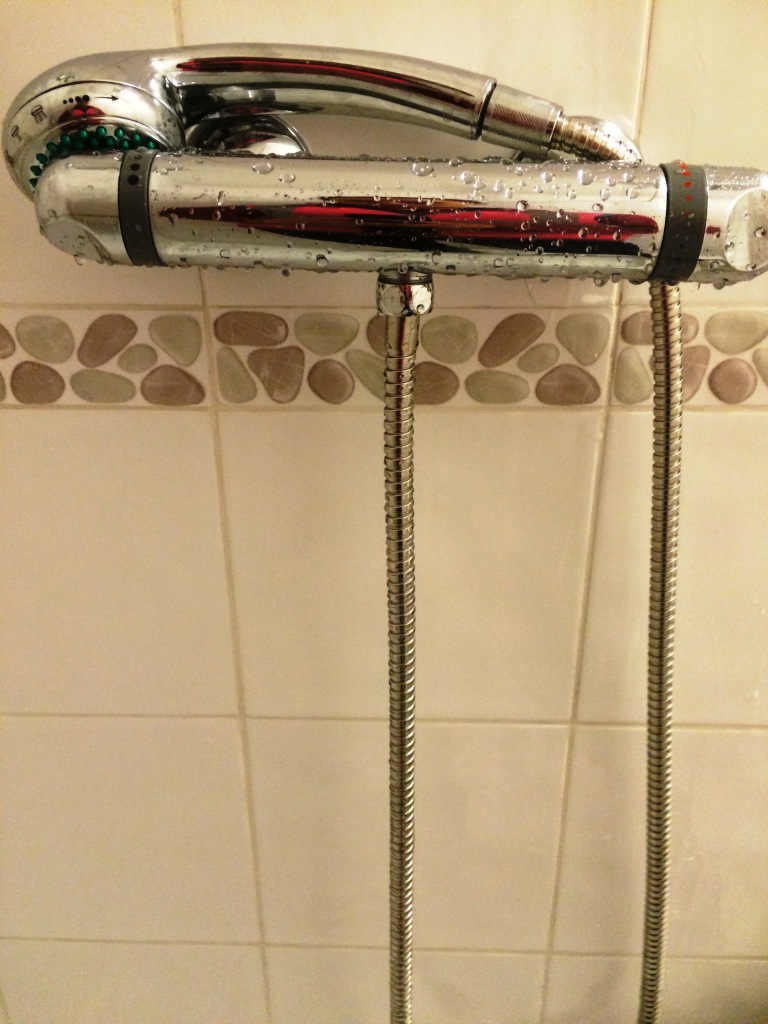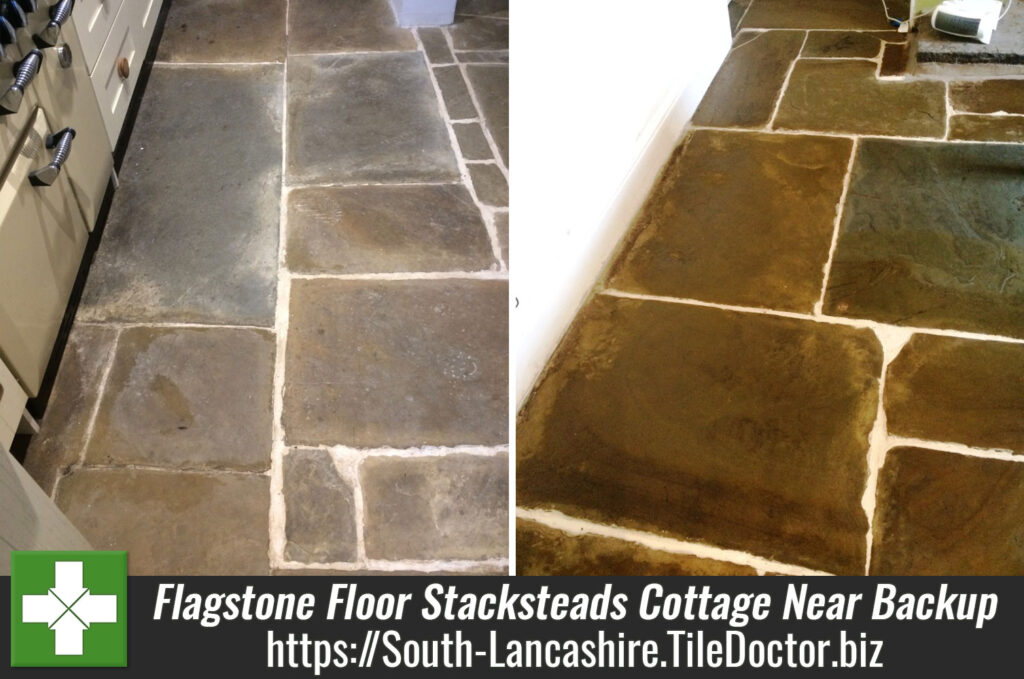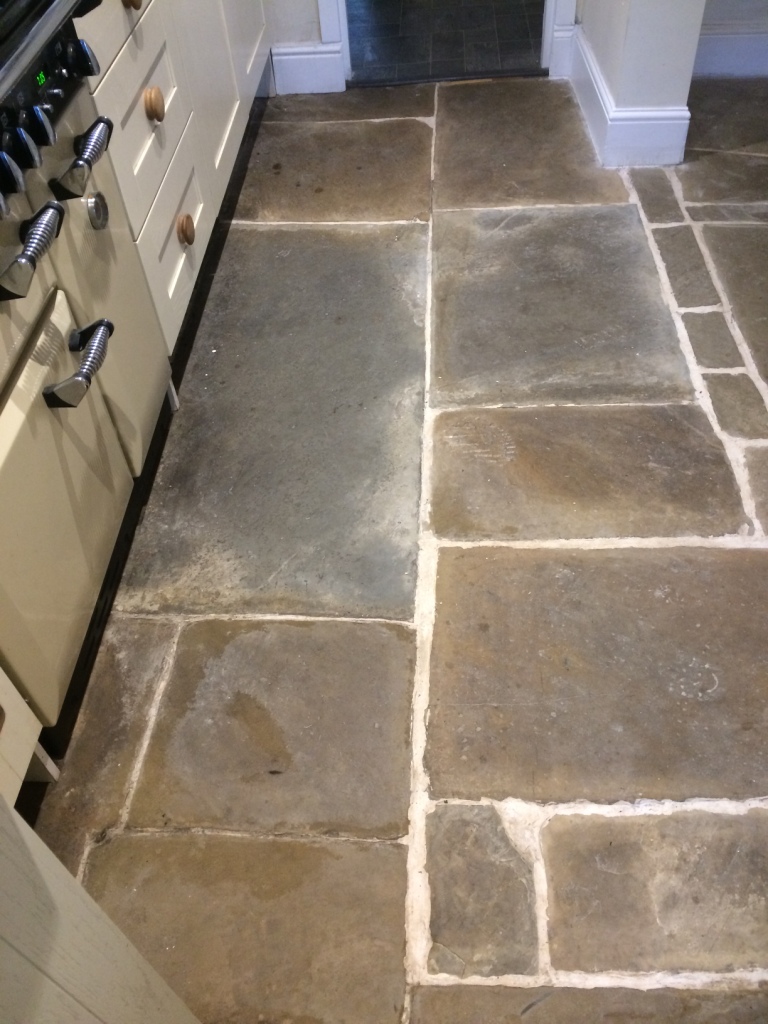Transformation of a Tired and Stained Flagstone Flooring in Ramsbottom
This enquiry about the restoration of a flagstone floor came from a lady in Ramsbottom who had seen a similar floors to hers on our website. The main areas for concern were by the fireplace in the living room and dining room, also by the front door and the foot of stairs where previous coverings that had been glued to the floor and paint splashes had stained the stone. There was also an area that had once been covered in bitumen. The pointing was also in need of attention with gaps and crumbling in several spots.
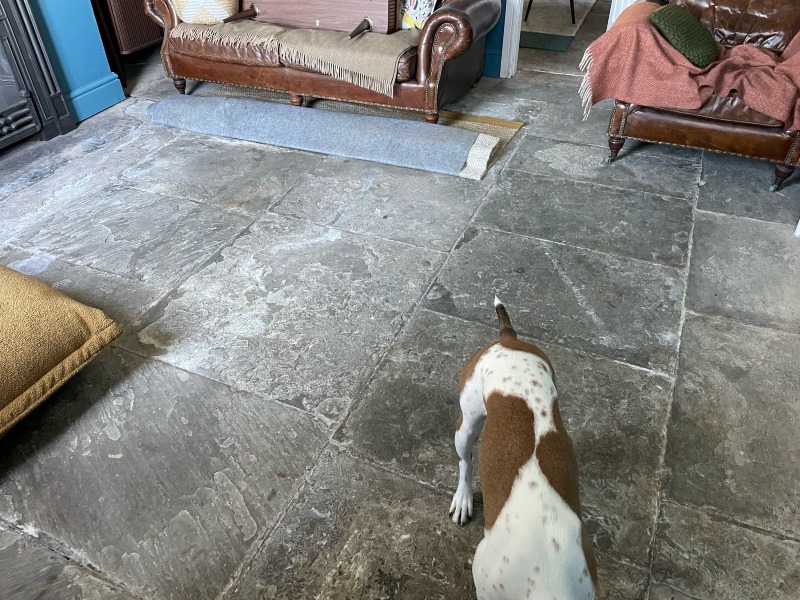
This wasn’t the first time she had investigated having the floors restored and had previously received mixed advice from other professionals which didn’t help. In the meantime, with the floor not a priority in the budget she occasionally spent some time chipping off some of the the old rubbish on the floor.
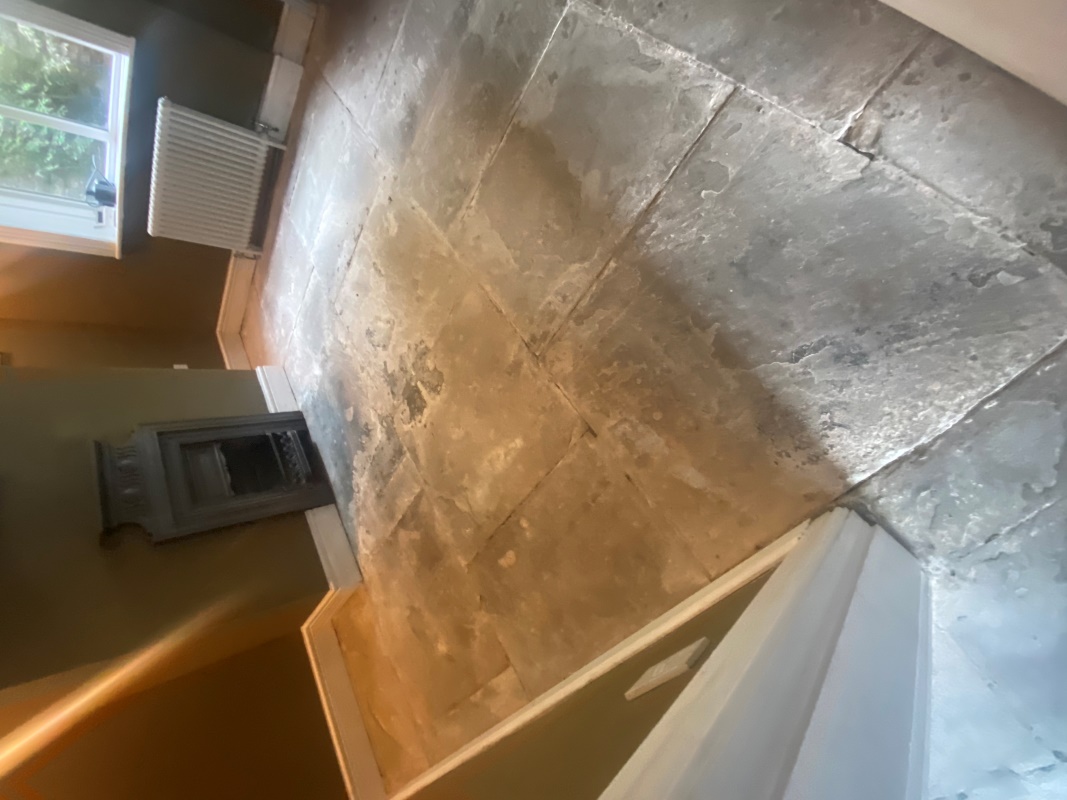 |
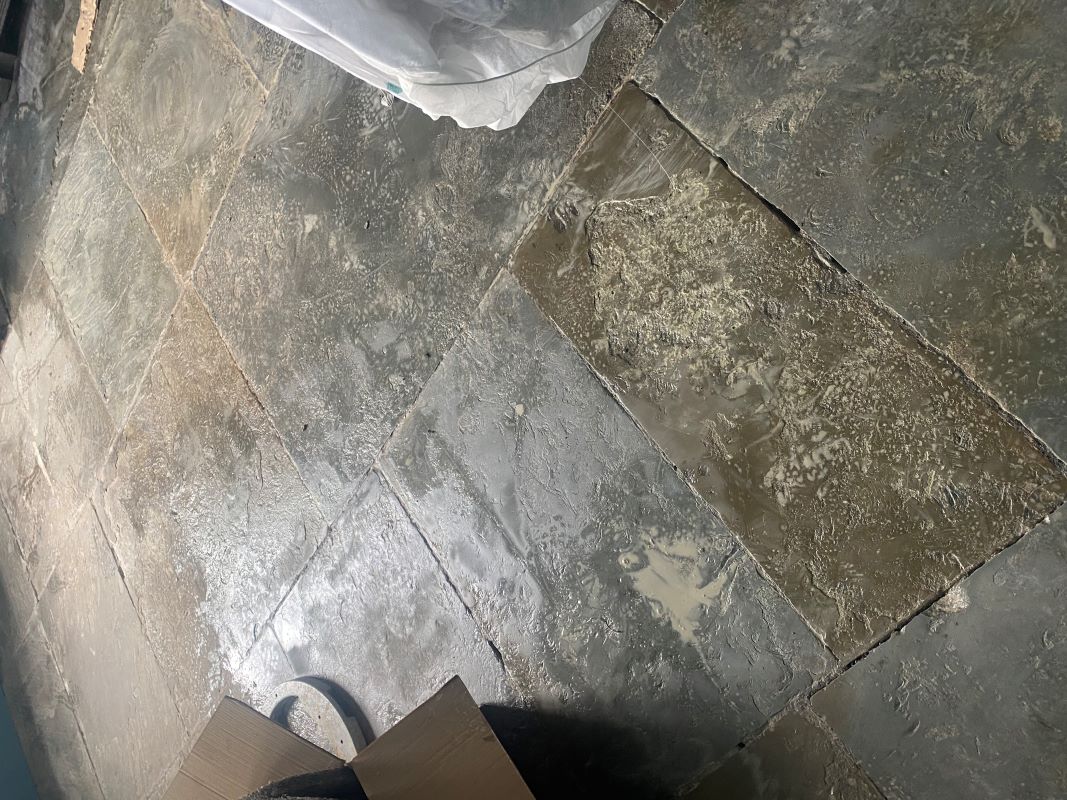 |
Having sent over lots of photographs, I was able to come up with an estimate for the floors restoration so she could consider how to fit the work into the budget before arranging a visit on-site to survey and provide a detailed quotation. We also discussed the financial benefit of completing both rooms together.
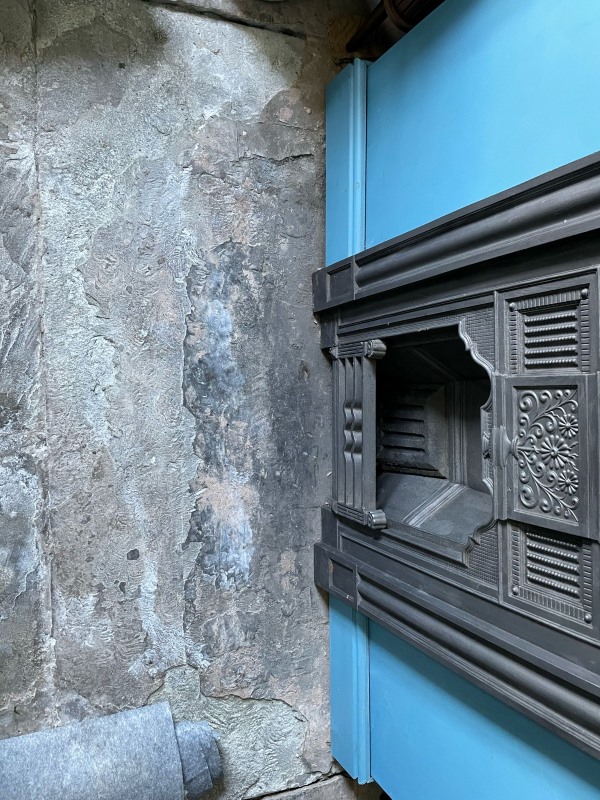
Happy with the estimate I arranged to come to the property, survey the floor and provide a detailed quote which corresponded with our earlier estimate and was accepted.
Cleaning a Flagstone Tiled Floor
Work started with milling the flagstones in the lounge and dining room using a set of Tile Doctor Flexi Diamond Milling pads. These come in 50, 100 and 200-grit and you start with the 50-grit and work up from there using a specialised rotary floor buffer running at slow speed and weighted to increase traction. Water is used to lubricate the process, and the pads are run over each tile several times to cut the surface of the stone back.
Although time consuming, the process is so effective we often find that the pads are all you need to clean the stone so very little cleaning product is needed. Although I did use some Tile Doctor Remove and Go for spot cleaning here and there. The pads generate a lot of slurry though, so it’s necessary to rinse the floor with water after each pad and extract all the waste with a wet vacuum.
With the milling done, the next step was to give the floor an acid rinse using Tile Doctor Grout Clean-up which was applied with a soft 200-grit milling pad. The acidic nature of this product further cleans the tiles after milling to remove any residue and counters any alkaline salts in the stone which can be a problem with old floors.
The last step was to remove loose mortar and then repoint with VDW800 joint mortar and then the flagstones were given a final rinse with water and dried with the wet vacuum.
Sealing a Flagstone Tiled Floor
Once the flagstones were fully dry, I started applying the sealer which for this floor I used Tile Doctor X-Tra Seal mixed with Tile Doctor Colour Grow. These two impregnating sealers work well together to improve colour and enhance the natural characteristics of the stone. Both products are fully breathable which is an important feature for old floors like this that don’t have a damp proof membrane.

Once done the floors looked fantastic and my client said that despite the cost, she felt relieved that the saga of the downstairs floor was finally finished, she also left the following feedback.
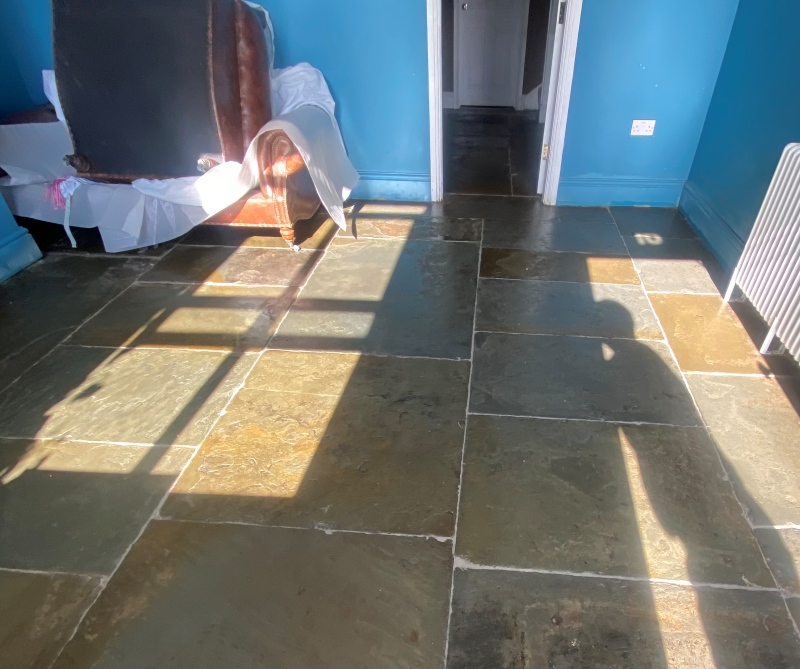
The smoother stone and new sealer will ensure dirt can’t penetrate the pores of the stone keeping dirt on the surface where it can be easily cleaned away; and on the subject of aftercare cleaning I recommended Tile Doctor Neutral Tile Cleaner which is an effective but sealer friendly tile cleaner.
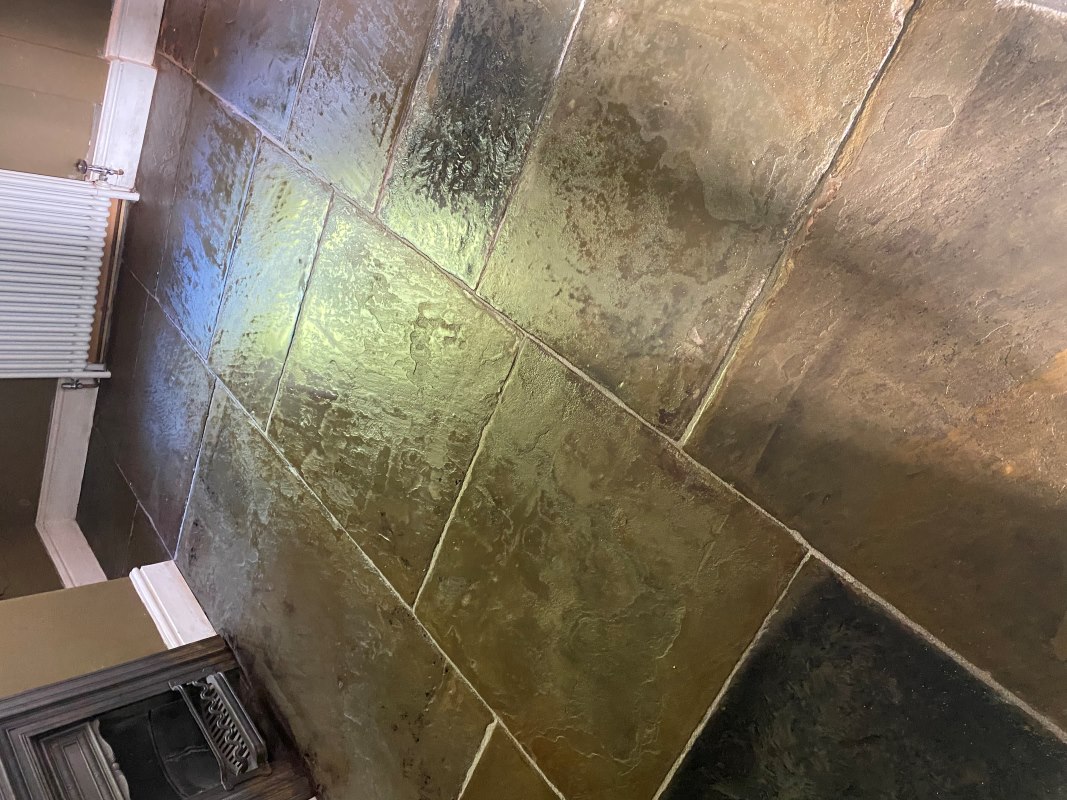 |
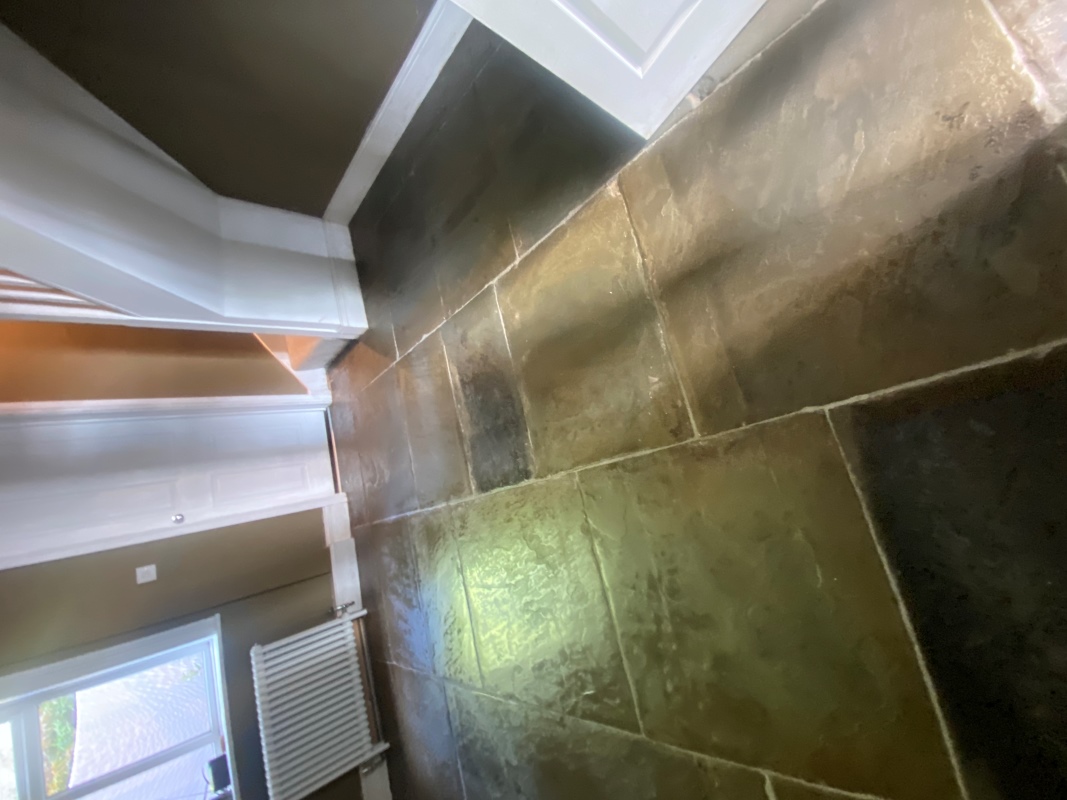 |
Professional Restoration of a Flagstone Tiled Floor in South Lancashire
Transformation of a Tired and Stained Flagstone Flooring in Ramsbottom Read More »

